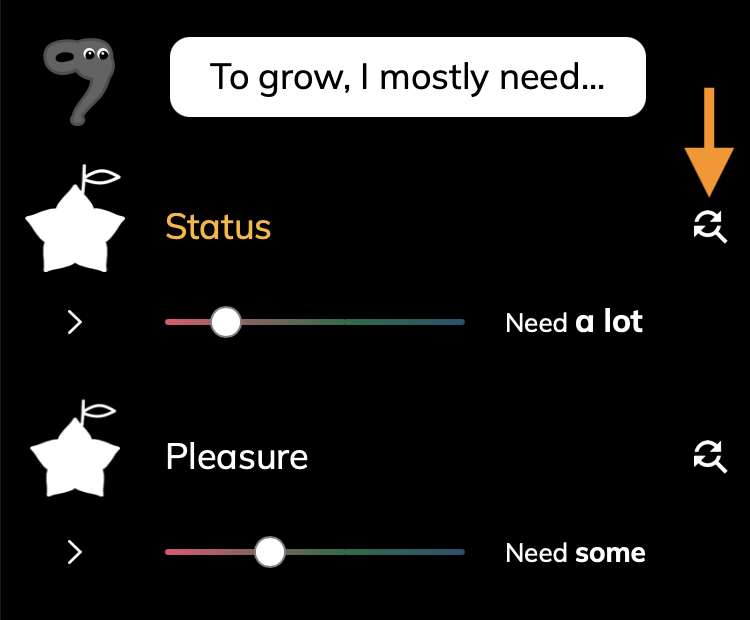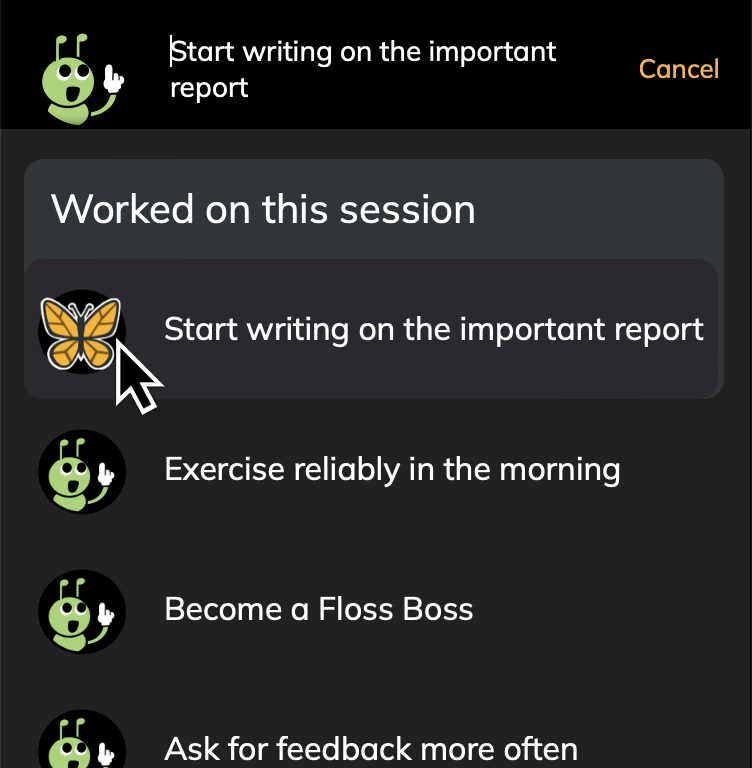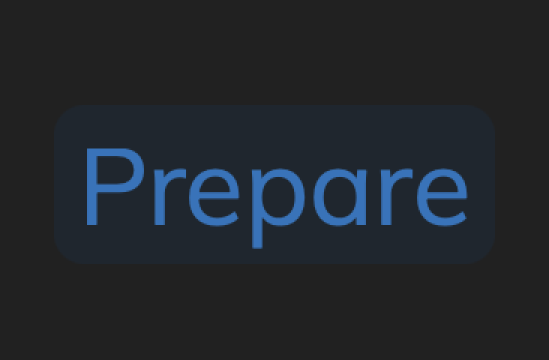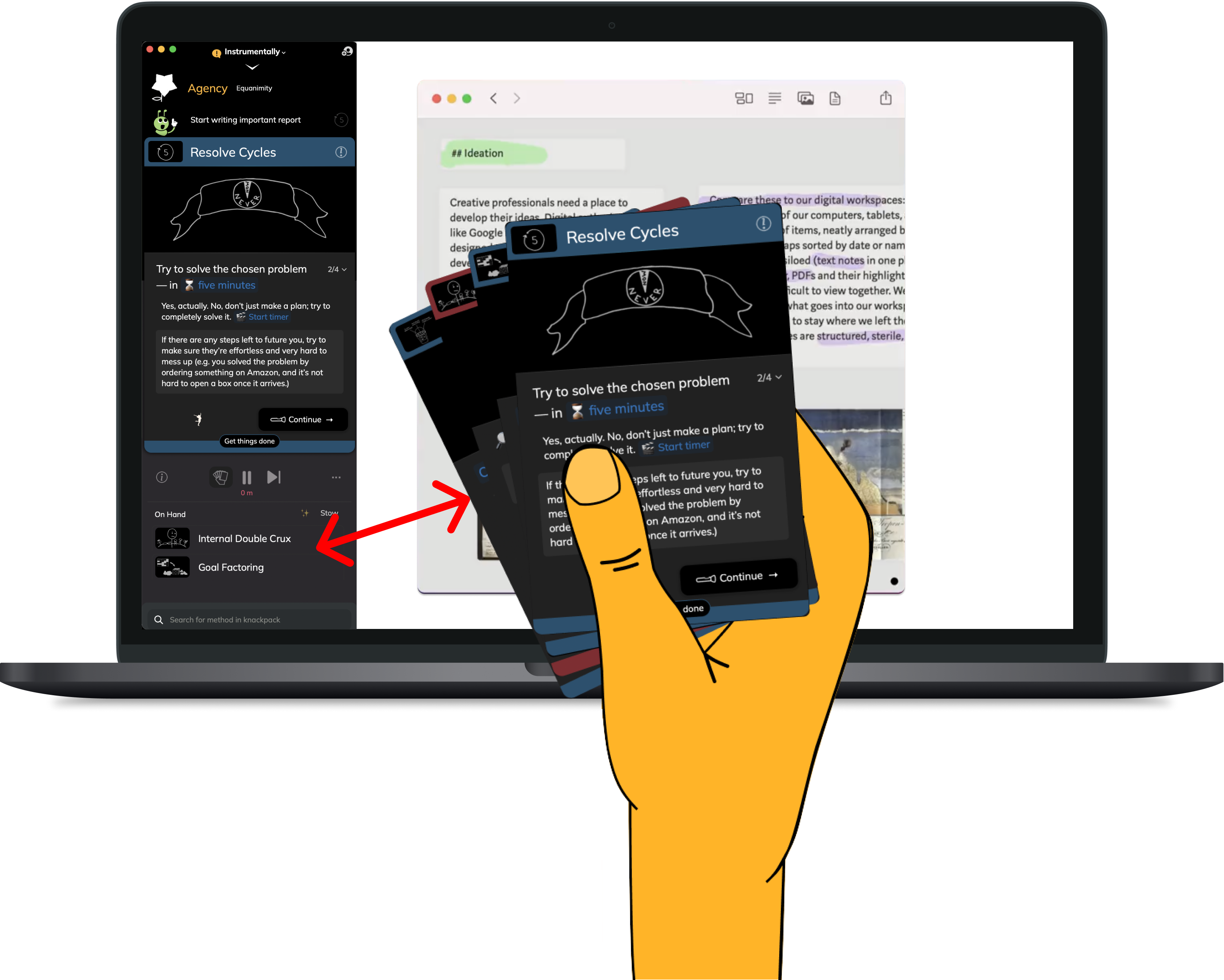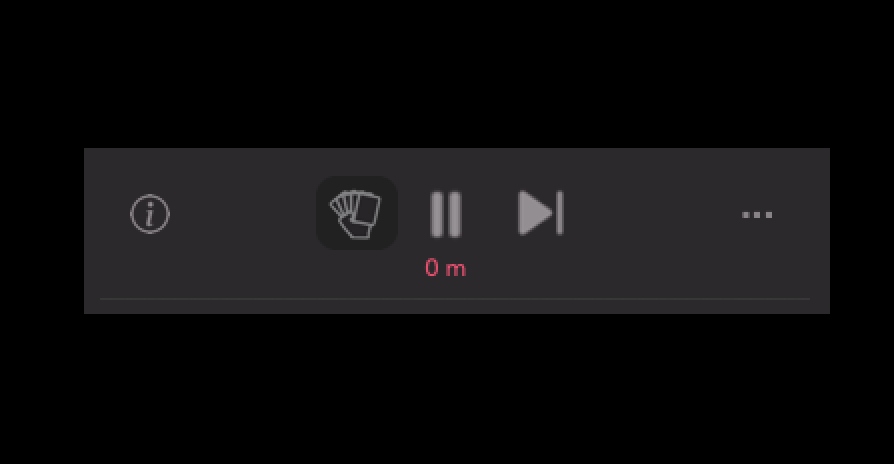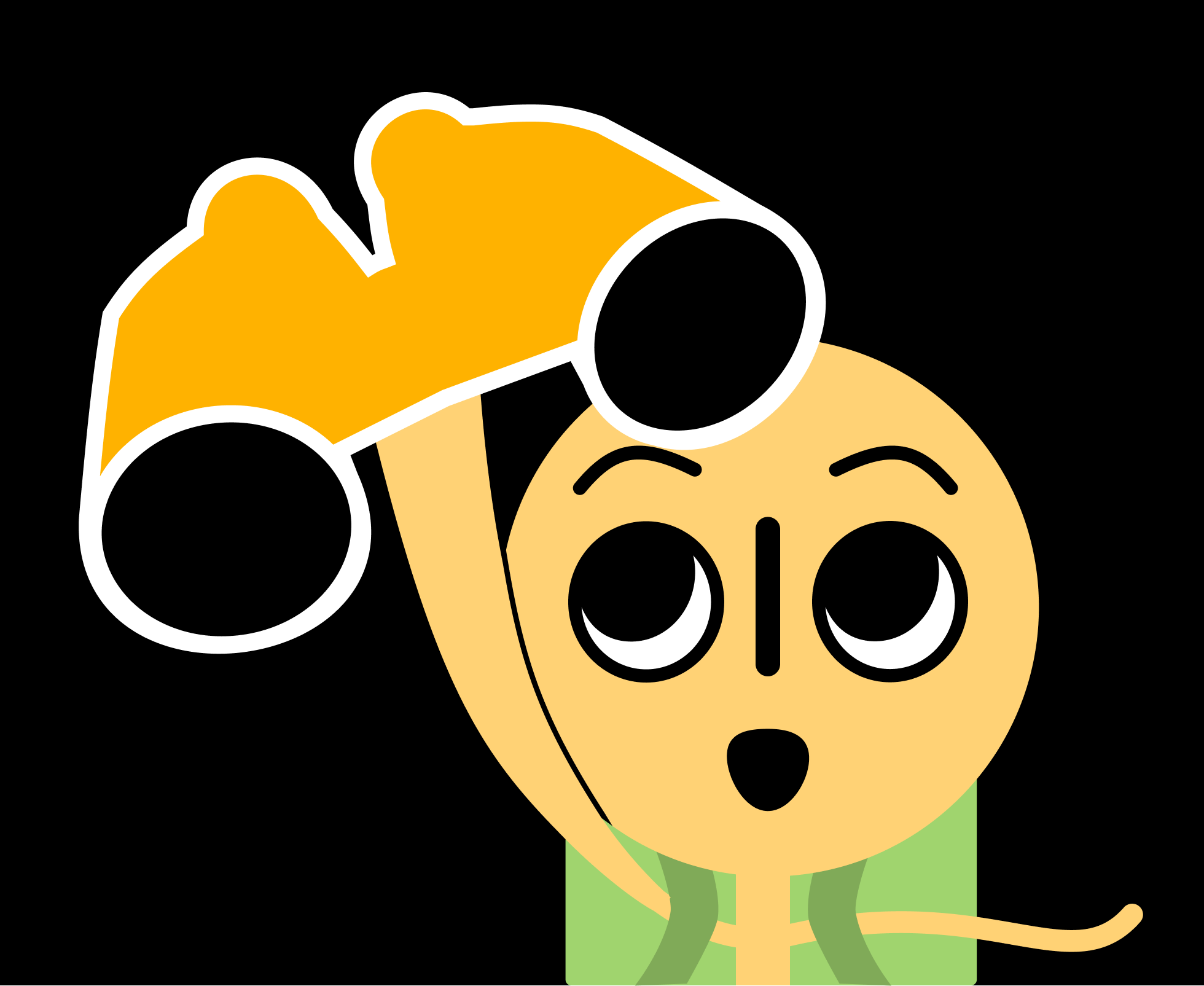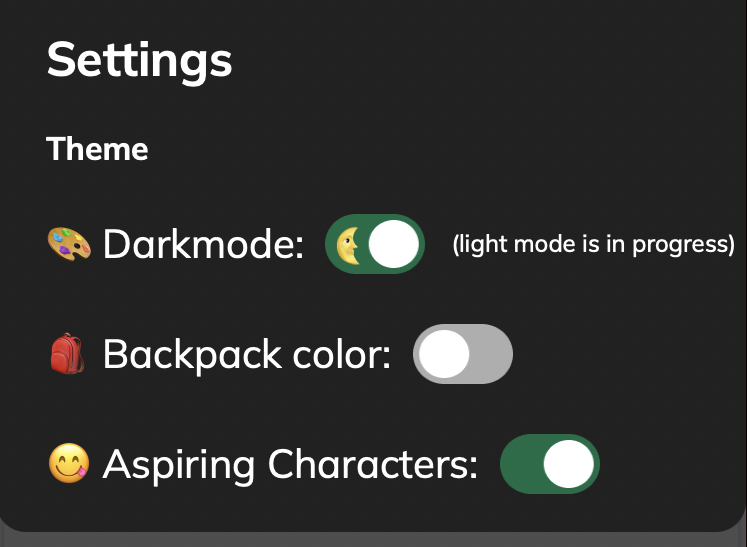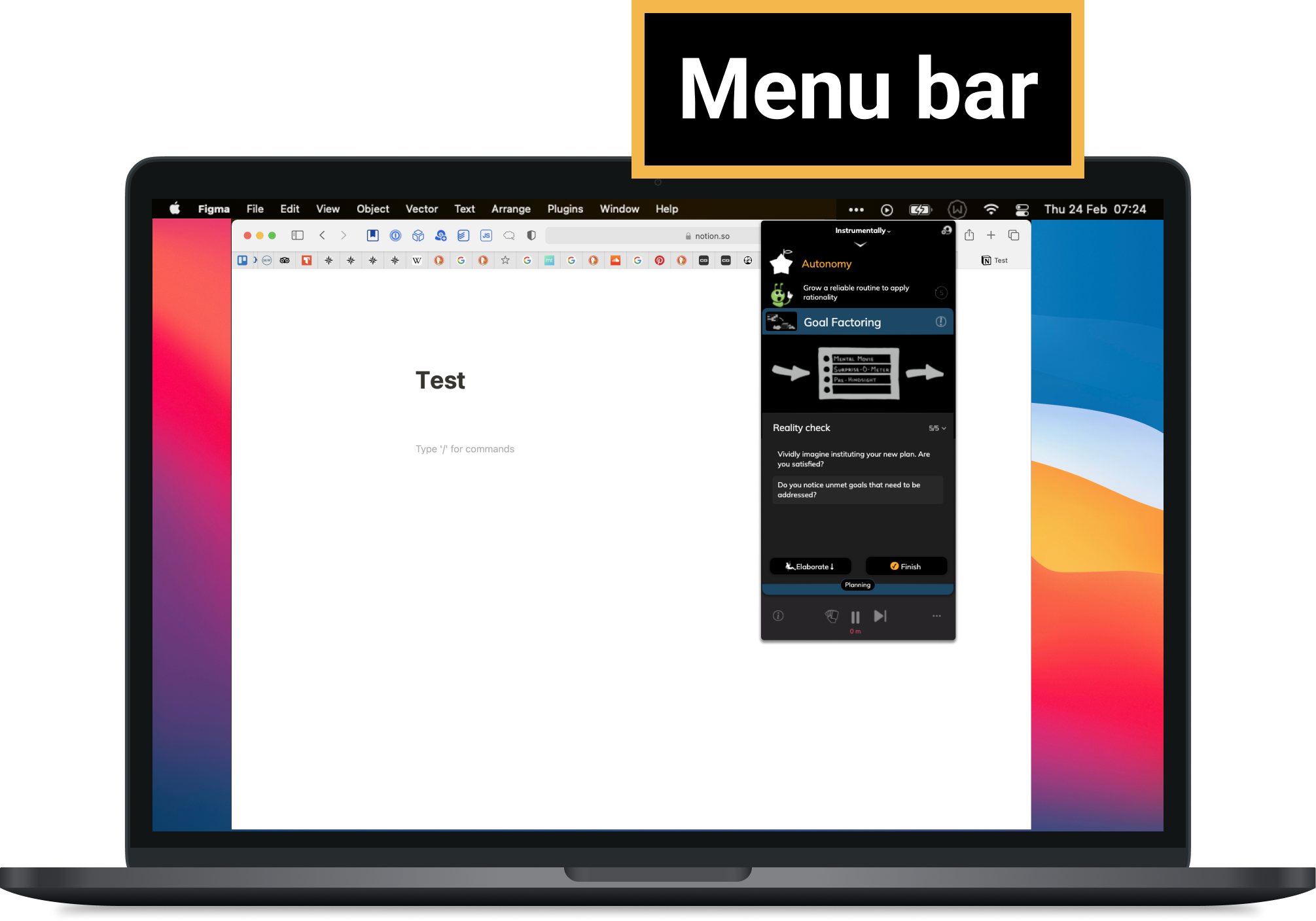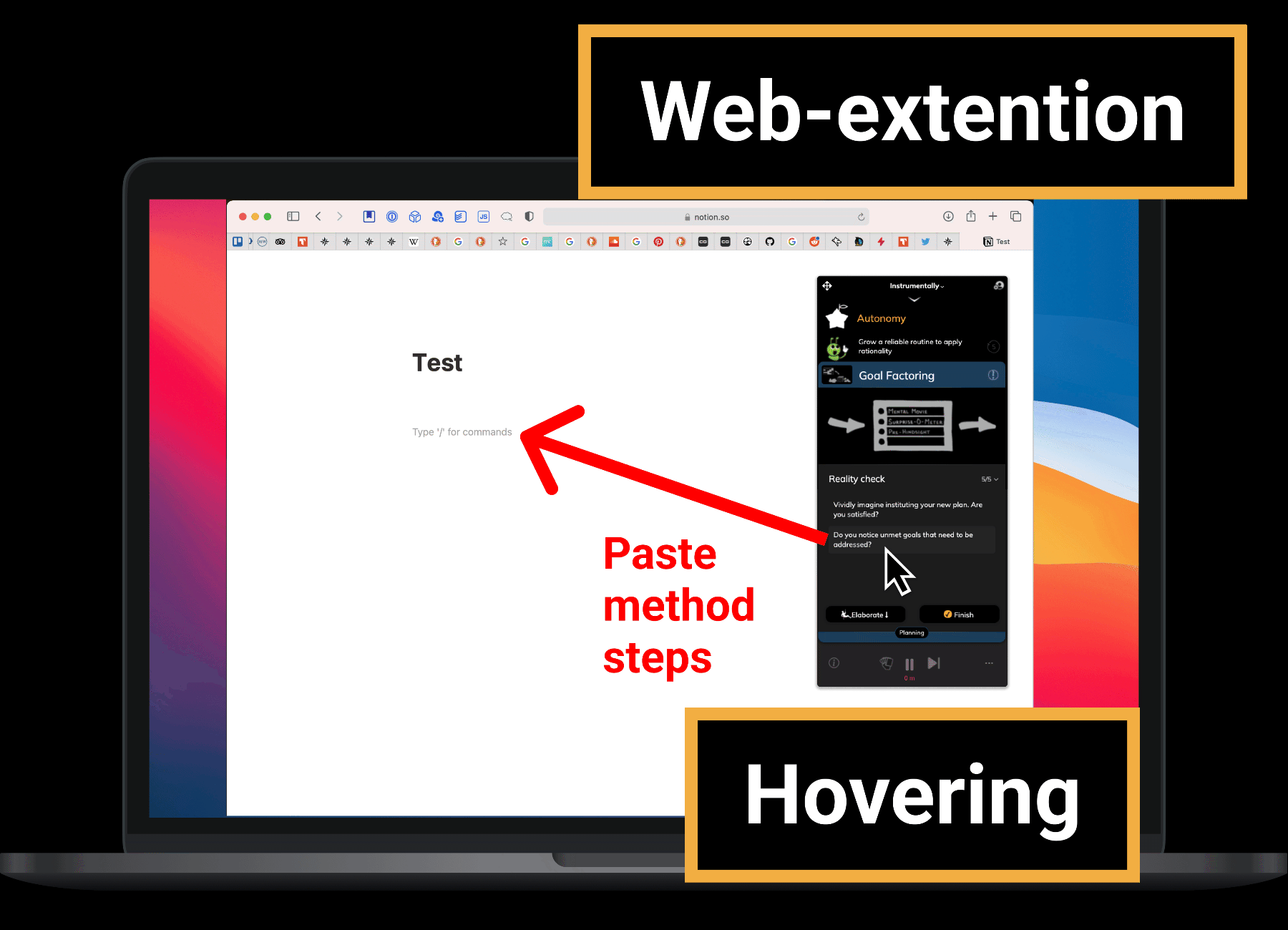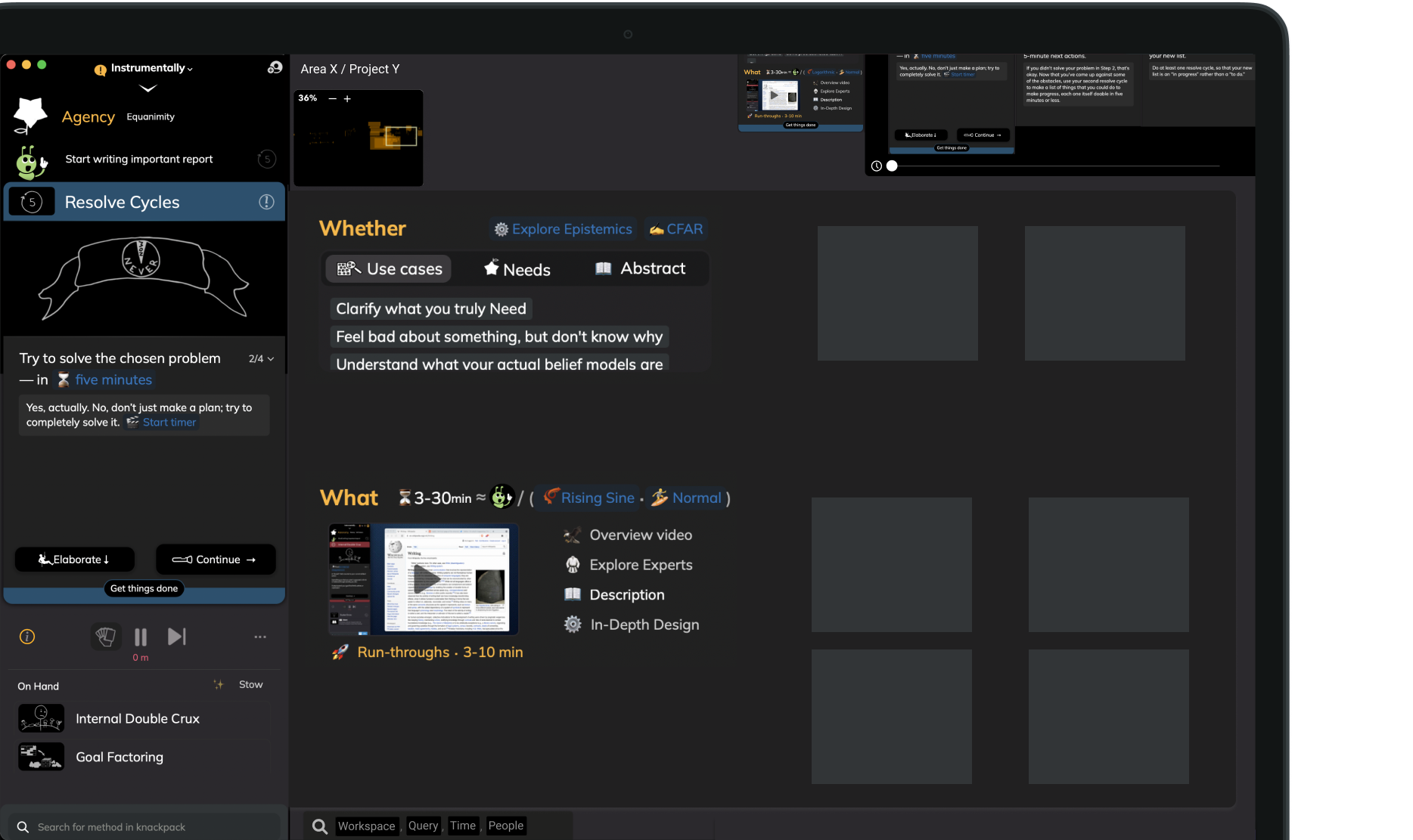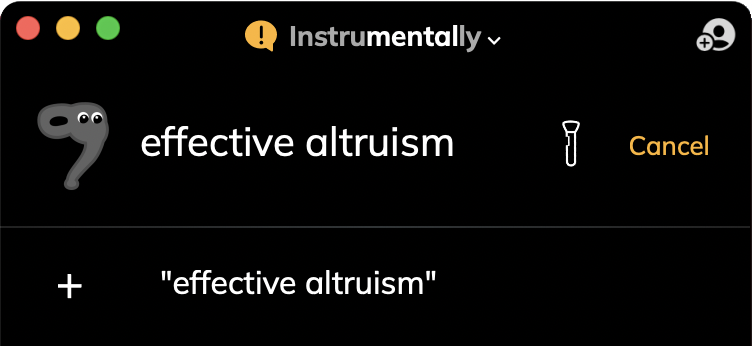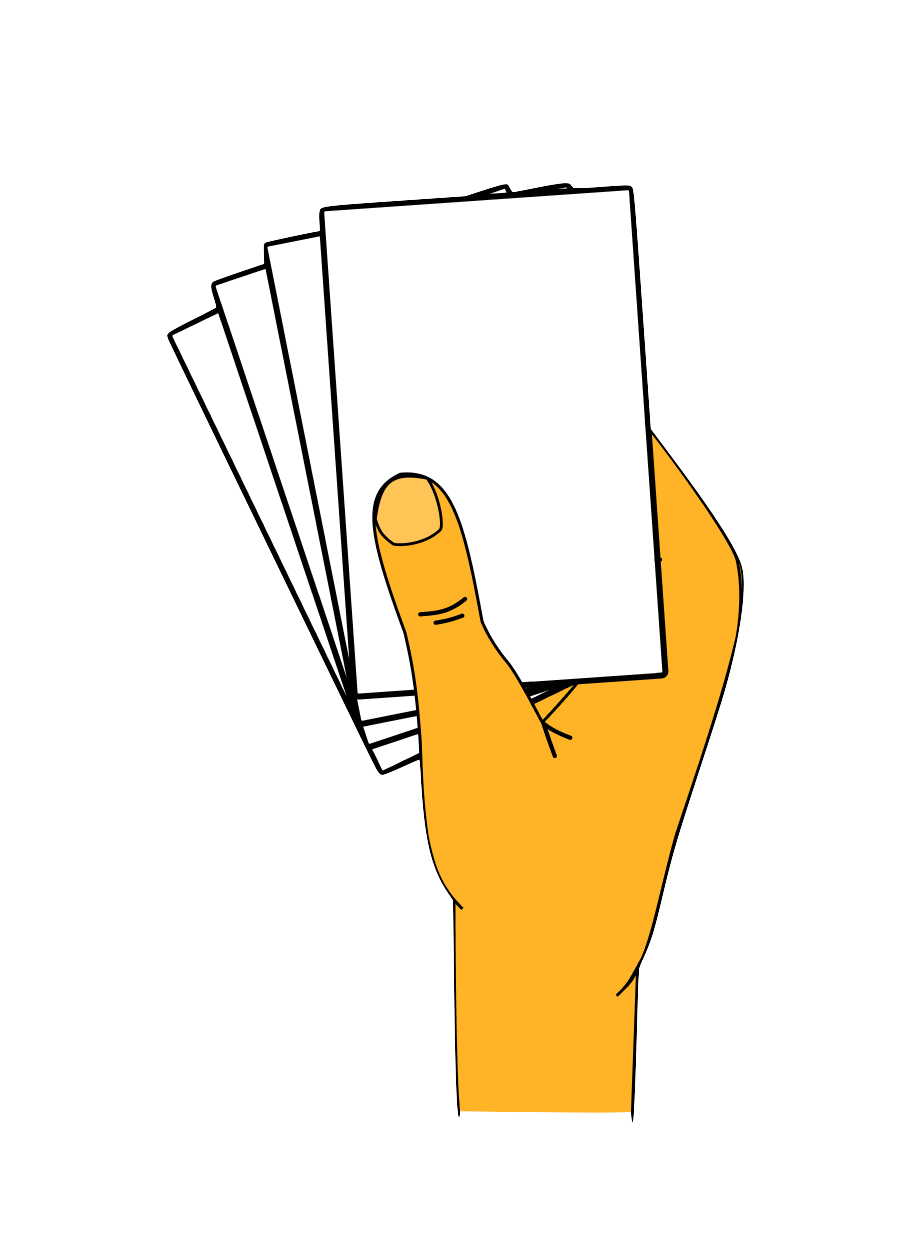Overview of a session
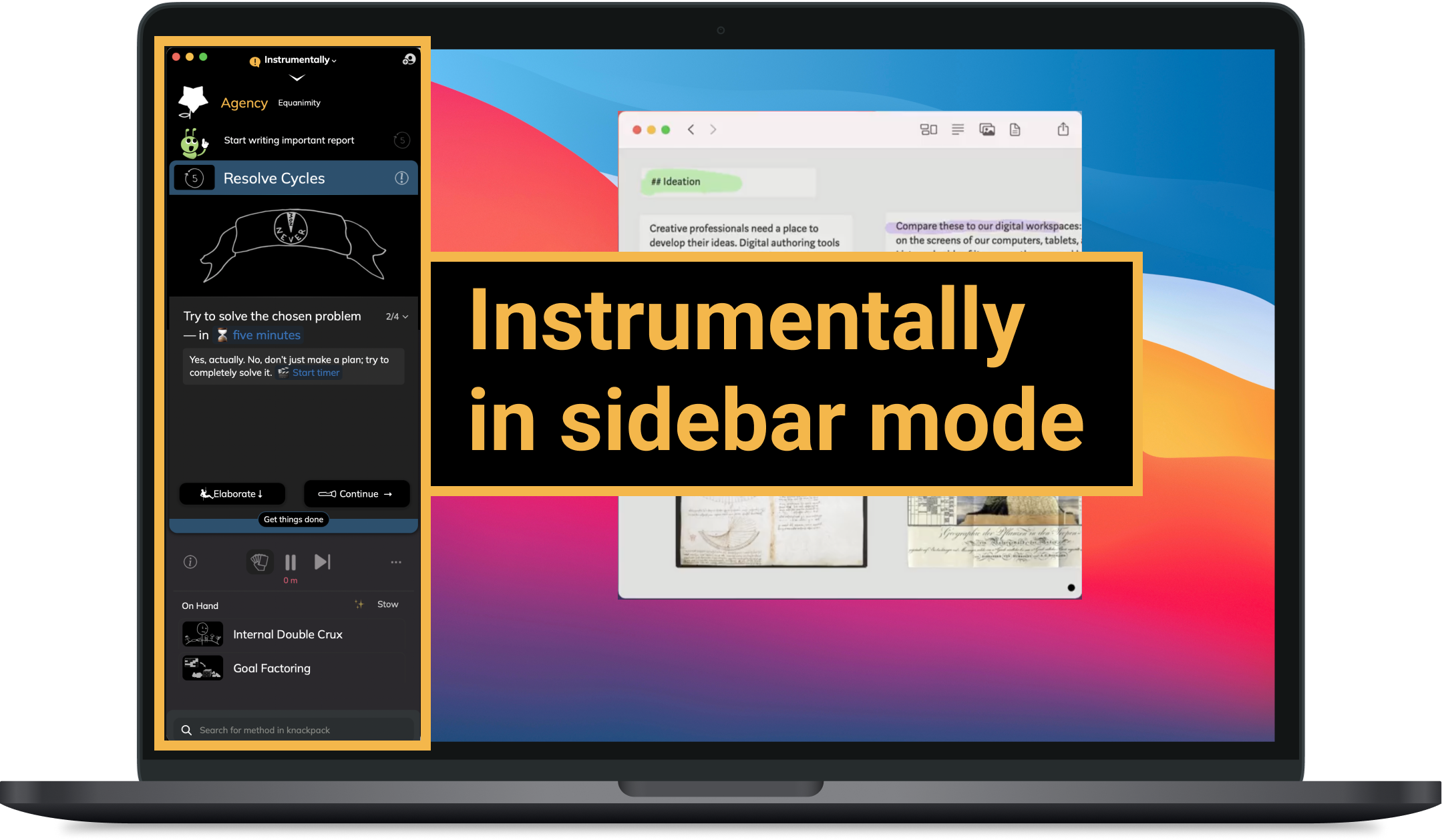
Keep Instrumentally close at hand as your
knackpack
(like an accessible backpack filled with rationality informed knack to apply),
to visually remind you to
self-monitor
during work and life projects and empower your growth & maintenance of reliable
rationality
routines.
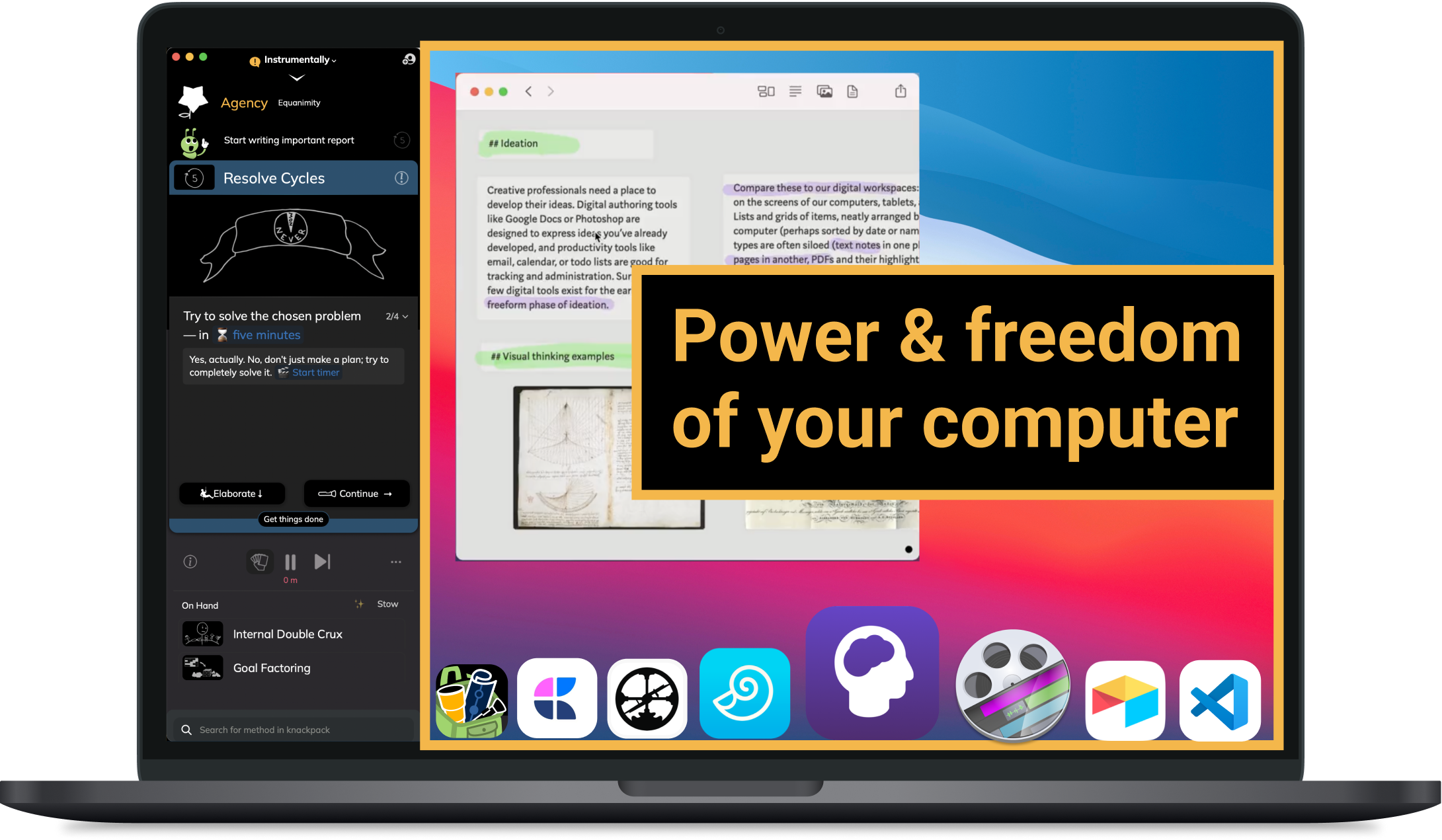
Instead of constraining yourself to a monolith web-app, use the full power of your computer with any
tools for thought
(
instruments for improving
)
to explore and solve problems with. Well-crafted software helps us think, in part by serving as extra working memory we need to think better.
The vision
is to transfer the design principles of Instrumentally to something like
Dynamic Land
(
recent Live Demo
)
for a workspace with even more agency and power.
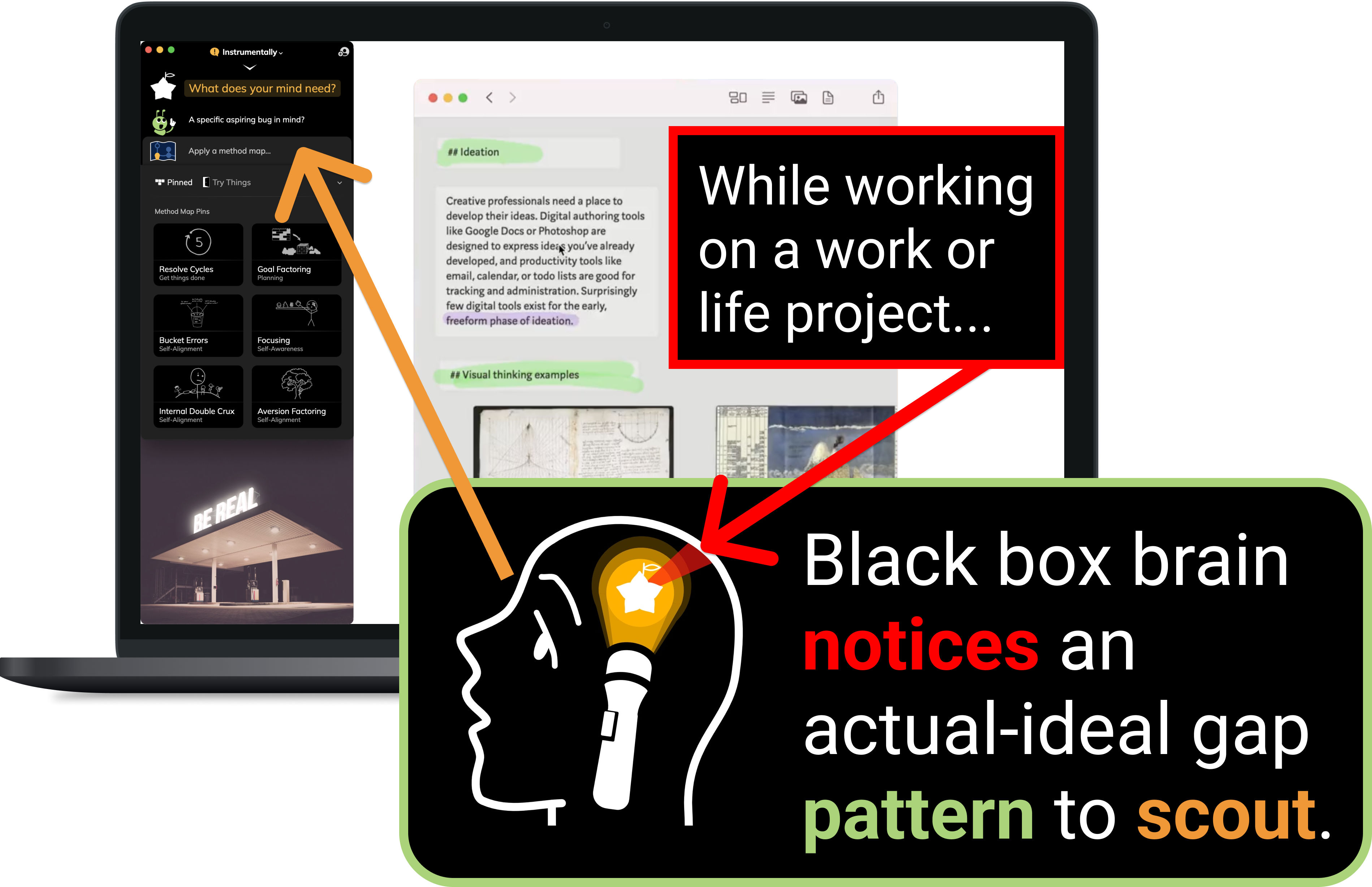
During work or life you notice a trigger, something
bugging
you (e.g. regret something you said), making you e.g. feel like avoiding facing it.
Or a pattern (e.g. got irritated by feedback you asked for) reminding you that you could use a
method
(e.g. identify a
bucket error
).
Instrumentally can stay close at hand to visually remind you to use your
scout mindset
to update your response to these noticed patterns.
The goal is that you'd notice these triggers more as you practice using methods and concepts in-context of your life.
Sometimes you don't need to use Instrumentally and can rely on already formed thinking habits.
Sometimes you want to
investigate whether you could improve your habit
with the aid of Instrumentally.
Sometimes the better habit is to use the tools of Instrumentally to think with, not only keeping it all in your head. Using tools can free up memory to help you think better and can create visual prompts that increase the likelihood that you'll actually use lenses that can notice patterns.
This doesn't mean you have to always use a computer of the traditional sense, as that could limit contexts where you notice triggers and act on your plans.
The vision includes
multiple complementary forms
of Instrumentally (desktop, tablet, phone, AR, VR,
Dynamic Land
in events, gyms, forums, meeting norms, etc), so similar habits may stay
available
in more contexts, which might make them more reliable.
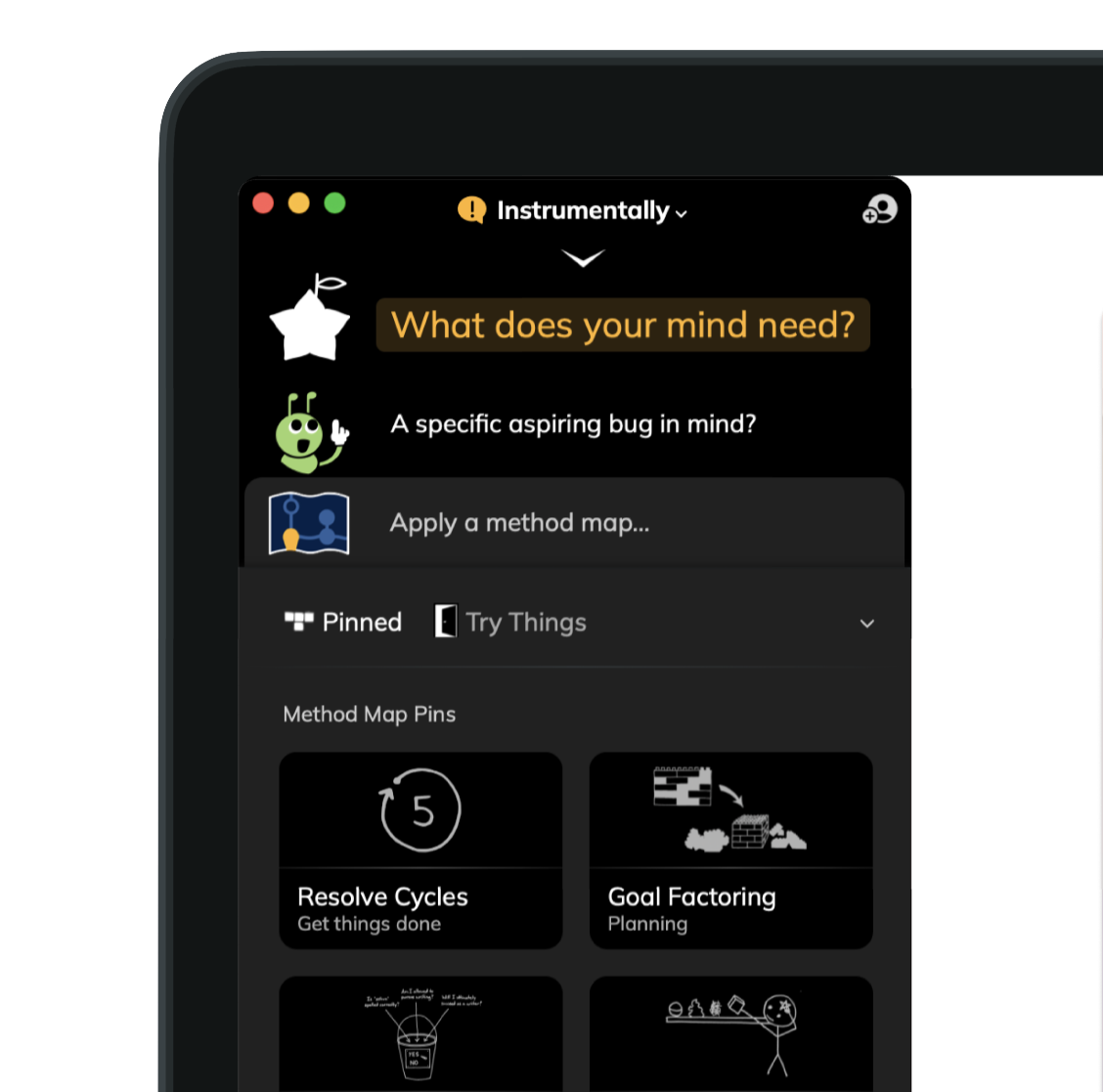
Seize the opportunity to improve your situation by declaring known info/identified
patterns
:
mental needs
(e.g. self-esteem),
aspirations bugging
you (e.g. to write better) or rationality informed
methods
or concepts
(e.g. identify a
bucket error
) that could fit the
trigger pattern
(e.g. feeling a bit stuck in your work).
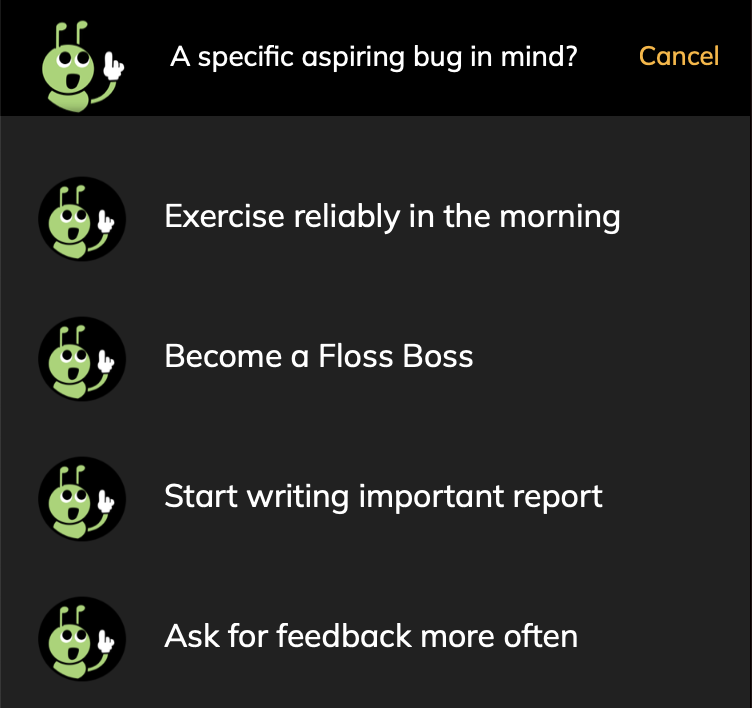
build form by choosing
small problems
to take care of. Bug by bug, work yourself out of your comfort zone at your pace, one
Δtiny healthy step
at a time (integrating into bigger improvements over time).
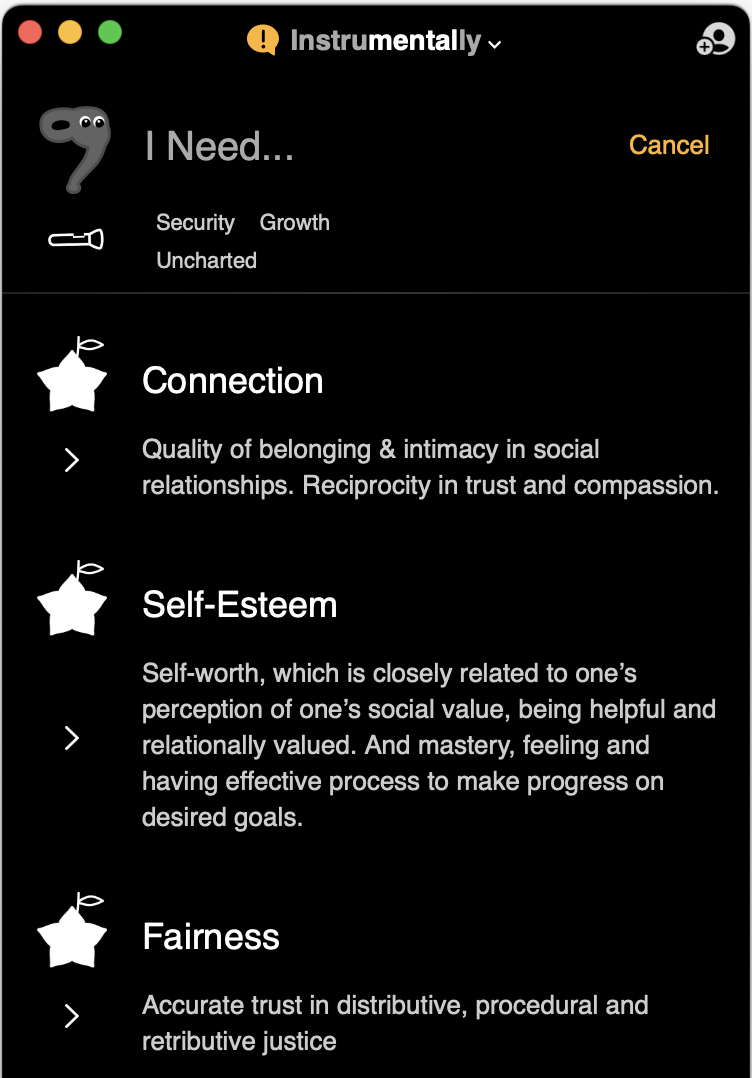
explore for roots of what you
truly need
by interacting with visual, dynamic and evidence-based models of
mental needs metrics
. Like browsing lego parts spread out on the floor (a metaphor used by Bret Victor in his essay
Learnable Programming
).
Crucially, the vision of the system is to allow for
adding your own models
or community-recommended modules of models, welcoming diversity and possibility to update as you and science learns more.
To overlap the lenses of multiple models can make our understanding come closer to truth.
Example of an additional categorization
.
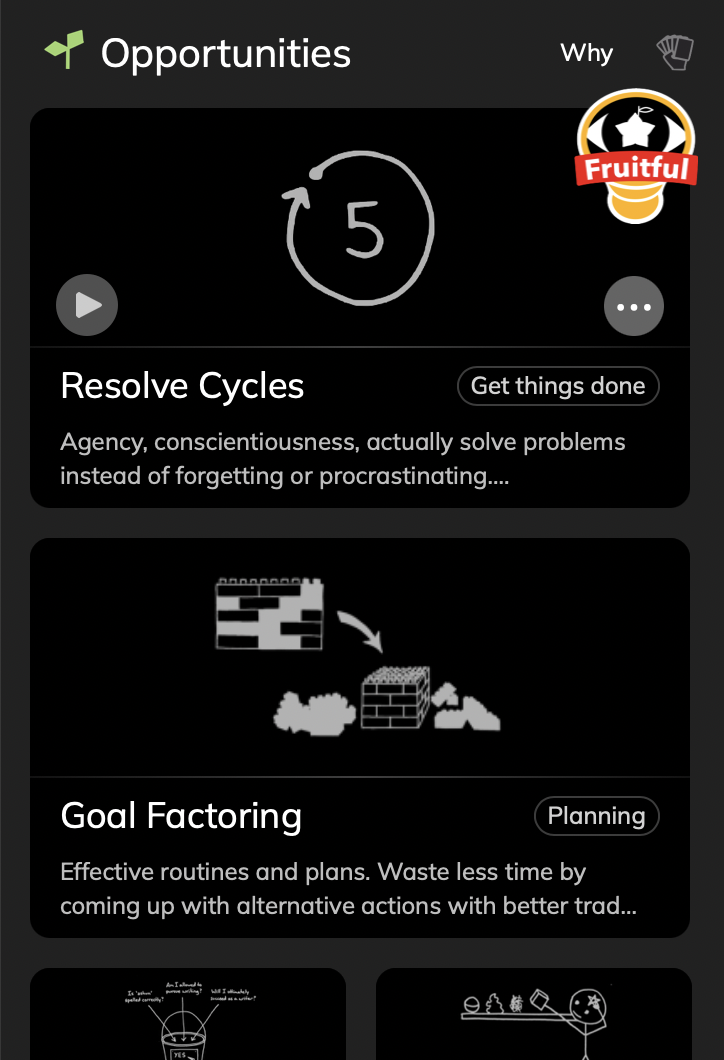
find
methods of rationality
by exploring your
knackpack
to recognize fitting options. With
practice
, gain tacit knowledge to choose better faster. Start experimenting with the method your initial hunch hints may be useful and then
flexibly adjust course
as you gain more information.
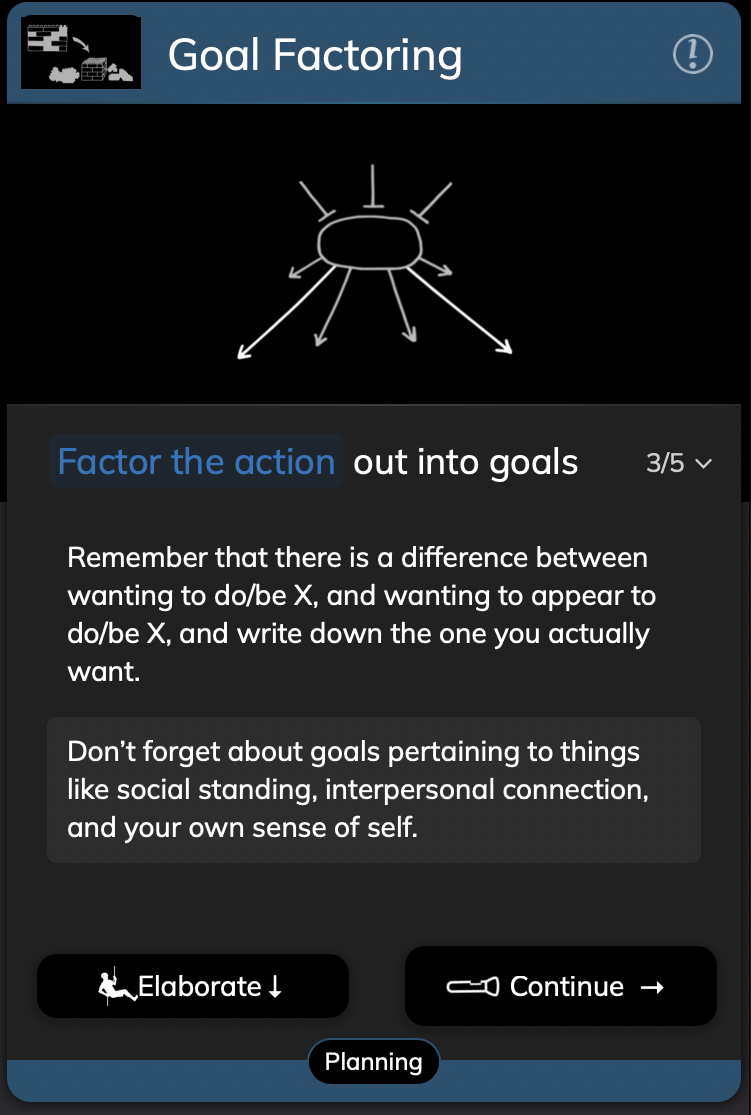
shows a
plot spot
of a
method map
. Think of it as a compass in your
debugging
, which includes prompts to inspire you to orient effectively as you explore and problem solve in the knowledge world. Elaborate on the interactive prompts as thoroughly as your context needs.
Currently the method mini-map is designed to look like playing cards in card games, since playing cards show affordance that they are supposed to be played/used in a procedure.
The vision is that users adjust and compose method maps which include
interactive components
tailored to embody rationality methods and principles, not just
smart text
.
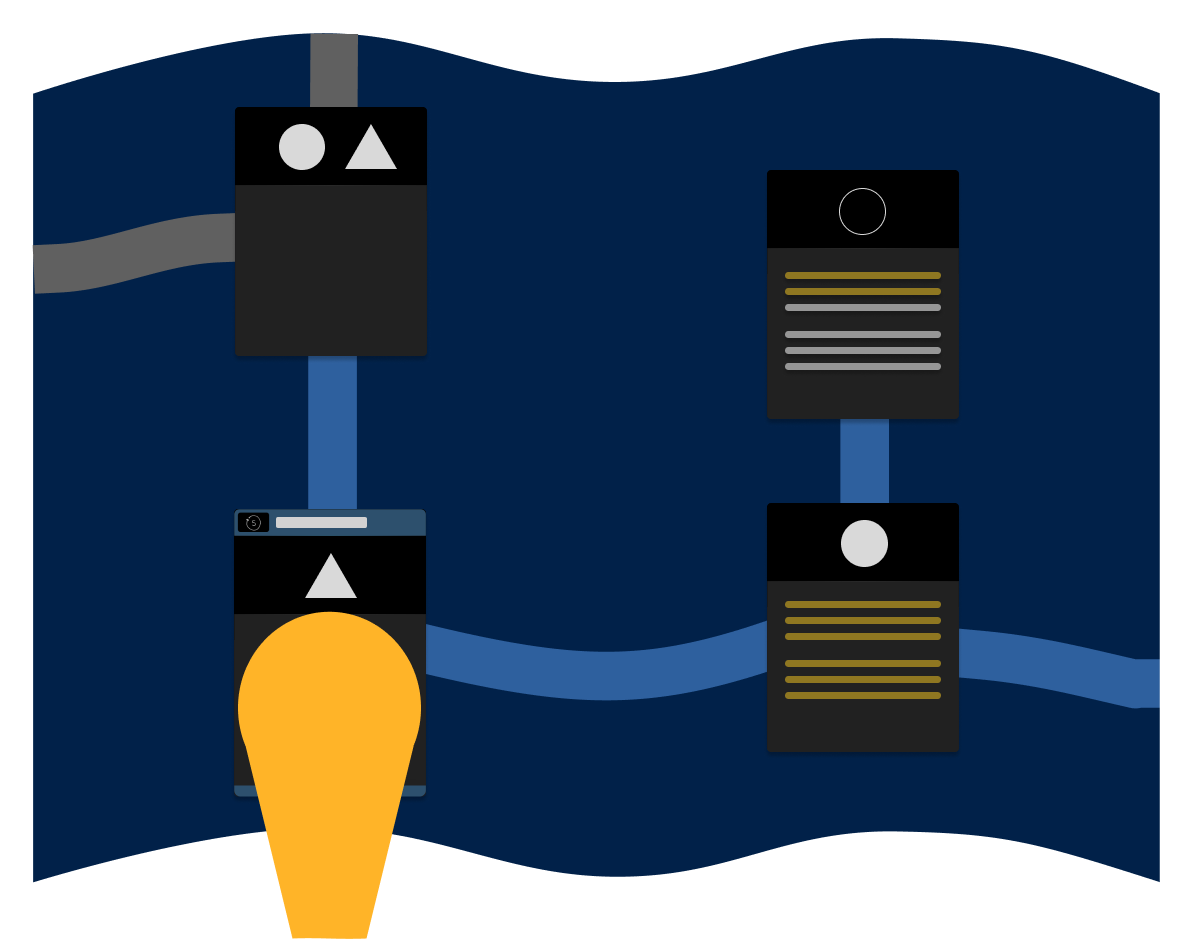
a practical representation of a
method of rationality
. A frame, as starting point, for your thinking and problem-solving explorations.
Compose with
building blocks (e.g.
plot spots
) to modify and make up a method map on the fly
; then play and perform with it, both directed by tracks and undirected off the beaten track.
Method maps are less like tutorials and more like
software libraries
: flexible frameworks including components to compose with that are designed to help you model certain things (in this case more rational cognitive processes) easily and quickly enough to be practical.
One analogy is real-time strategy games like Starcraft 2, where you inhabit the map with buildings providing functionality to use during a play session.
The vision
is to make a powerful fullscreen overview map to navigate a method too, not just the
method mini-map
.
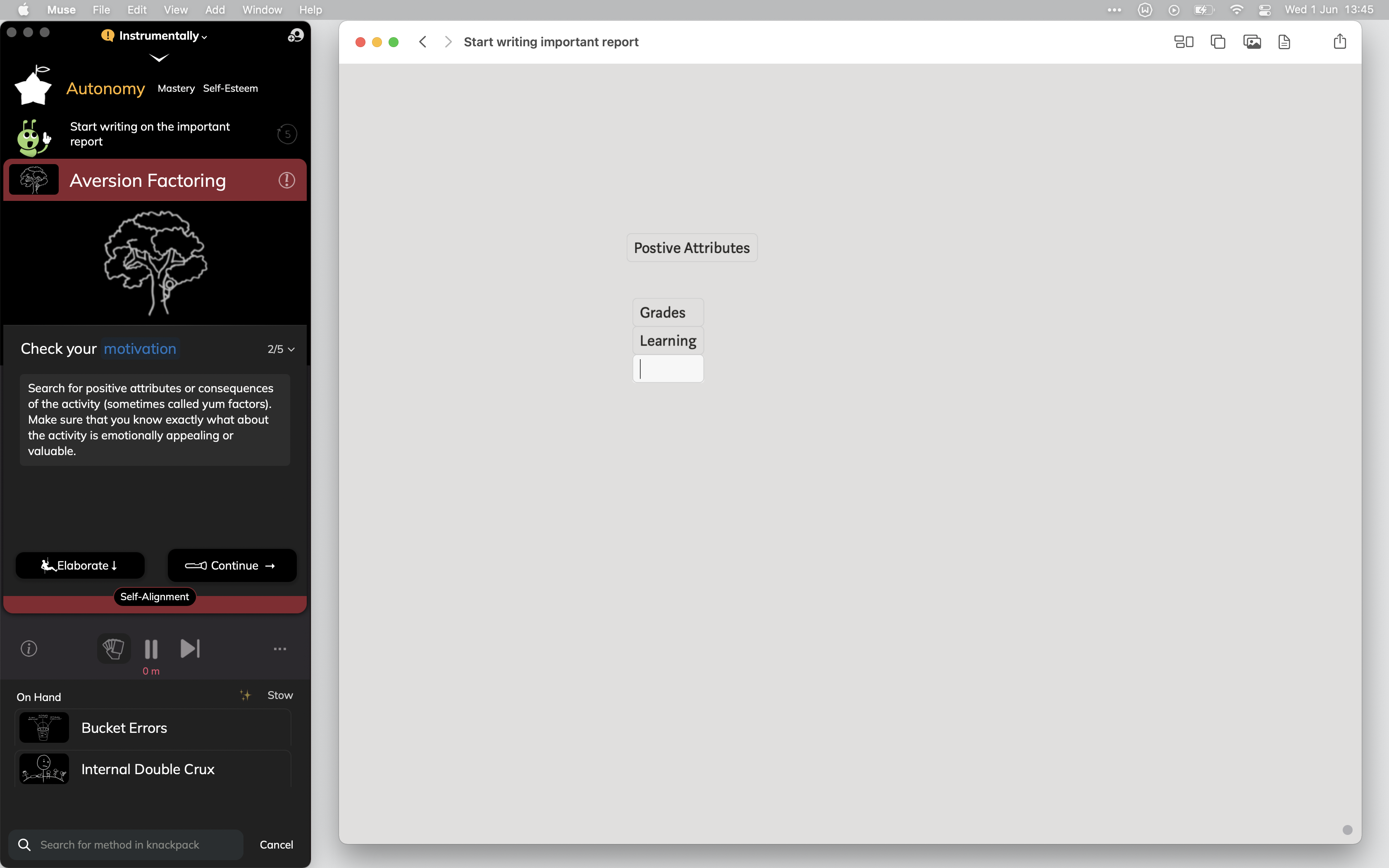
inspired by (1)
prompts
in
method maps
, (2)
feedback
from
allies
and (3)
concepts
used as constraints
;
deliberately perform
by applying your knack
in the
workspace
to make progress on improvement opportunities bugging you in your work and life projects.
Use
methods
in-context
of your preferred
tools for thought
.
One analogy is cooking recipes; method maps in Instrumentally aid you in performing the recipe with the tools in your kitchen (the
workspace
).
Knowledge work is of course in many ways much more complex and less linear than cooking, which requires more
flexible and powerful tools
to help us practice and implement better habits.
The vision also includes Instrumentally-made or community-made
instruments tailored
to embody methods of rationality like e.g.
goal factoring
.
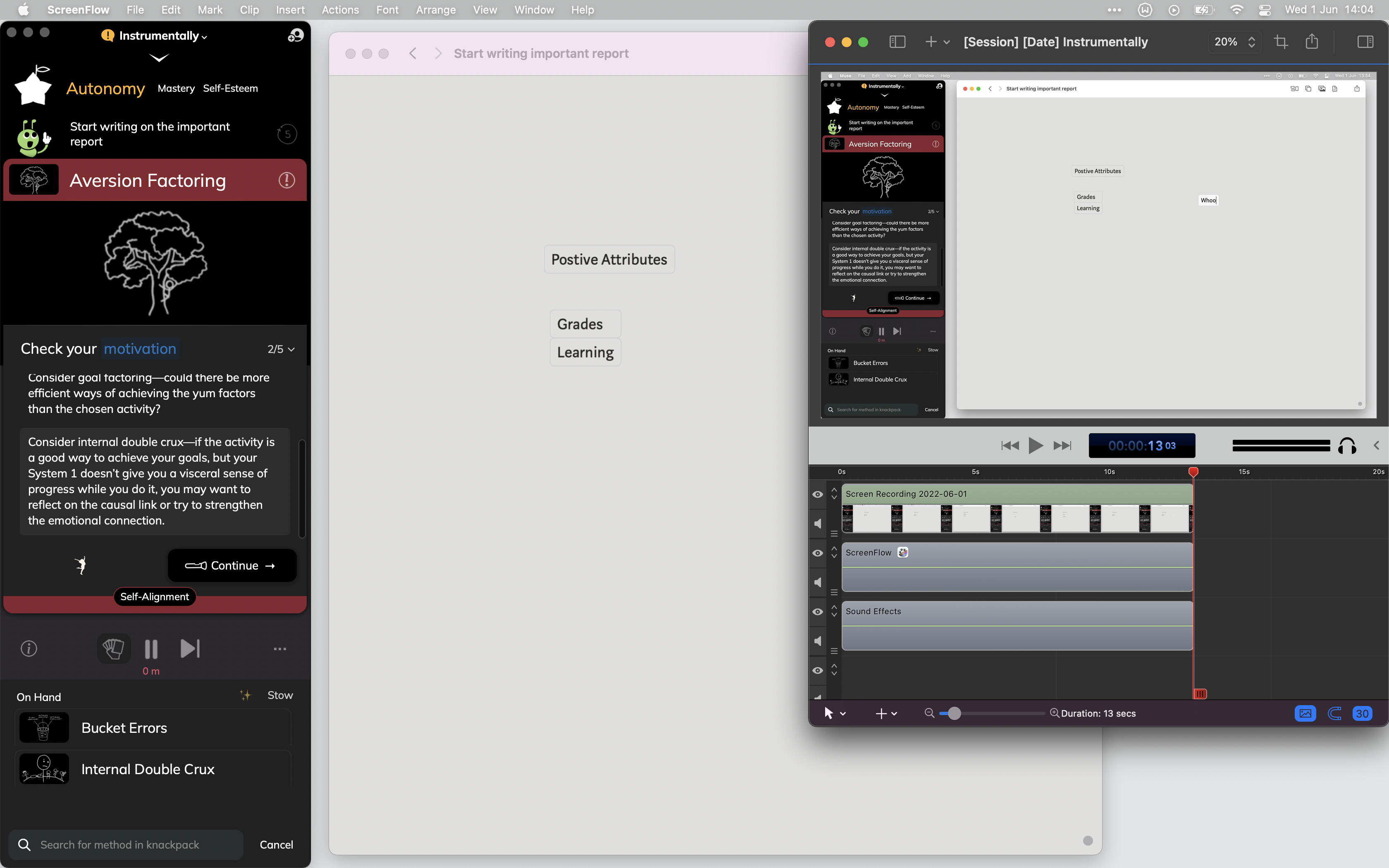
do specific skill drills slowly, attending to
deliberate practice
, slightly outside of your comfort zone, to learn effectively.
Practice is an effective way for people to implement new behaviors & habits.
Optionally
record yourself
for short feedback-loops of less compressed information about your process, which is valuable as it can help you understand and improve your process.
Balance mental needs
to more consistently be motivated to grow & maintain a reliable practice.
Playfully trying things is important too since interest is developed incrementally, yet at some point you'd want to align your motivation and systems to increase the amount of more effortful deliberate practice so you can learn and gain mastery more efficiently.
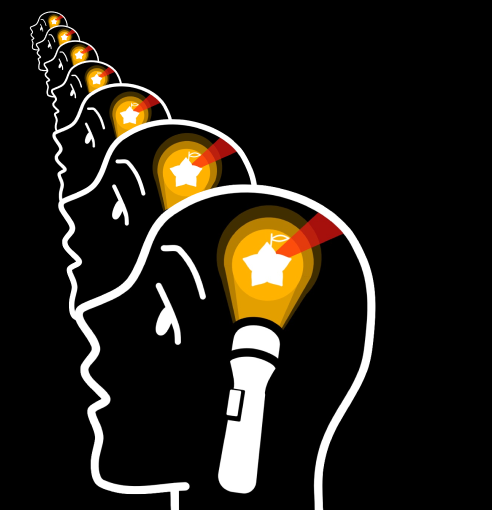
similar to how you gain perspective on your thoughts by getting them out of your head when writing in your
journal
, but instead
composing
with
epistemically robust
and interactive conceptual tools and methods alongside the expressive freedom of natural language.
The point isn't to make complete models, but to gain insight-through-making, iterating and finding approximate/simplified but useful perpectives aiding you to see points of high leverage.
Accurately modeling a problem is a big step towards improving the design (mind and environment) that manages it.
Gain insight into your process, across time and across possibilities.
Truth-calibrated & reliable motivation/agency can be better sustained with effective motivation modeling, to more clearly see and understand the many models/perspectives of the components related to these mental systems. Deep understanding allows you to see what effective actions to take to satisfy more of your needs and desired values and virtues/principles.
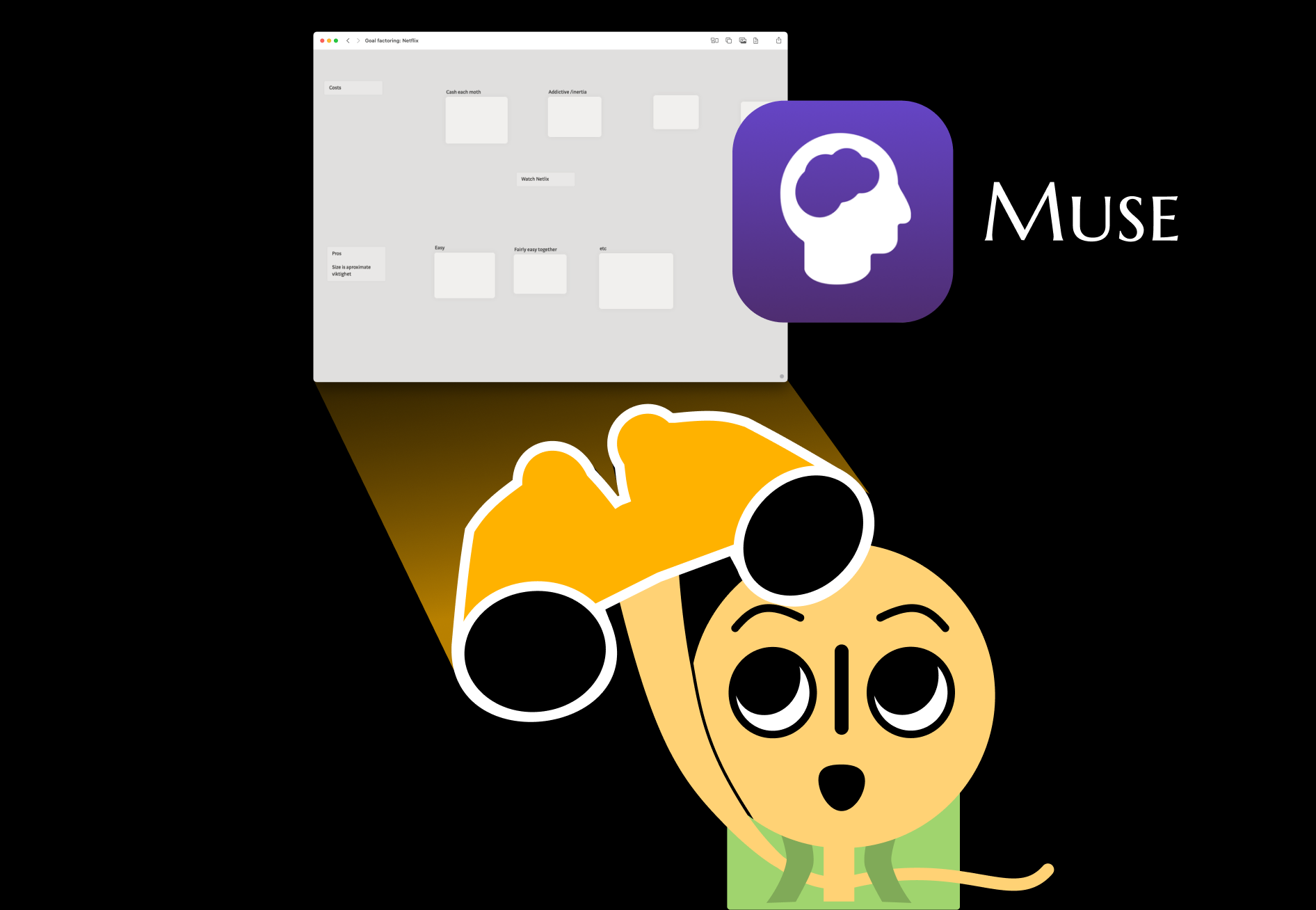
A dynamic software tool. Use concepts and
methods of rationality
in-context of preferred
tools for thought
(e.g.
Muse
) for your work and life projects, to improve your capability to improve yourself and the world.
Instrumentally itself is like a meta-instrument, focused on aiding you to take action to self-monitor, orient and improve your process using community curated methods & concepts in-context of other powerful instruments.
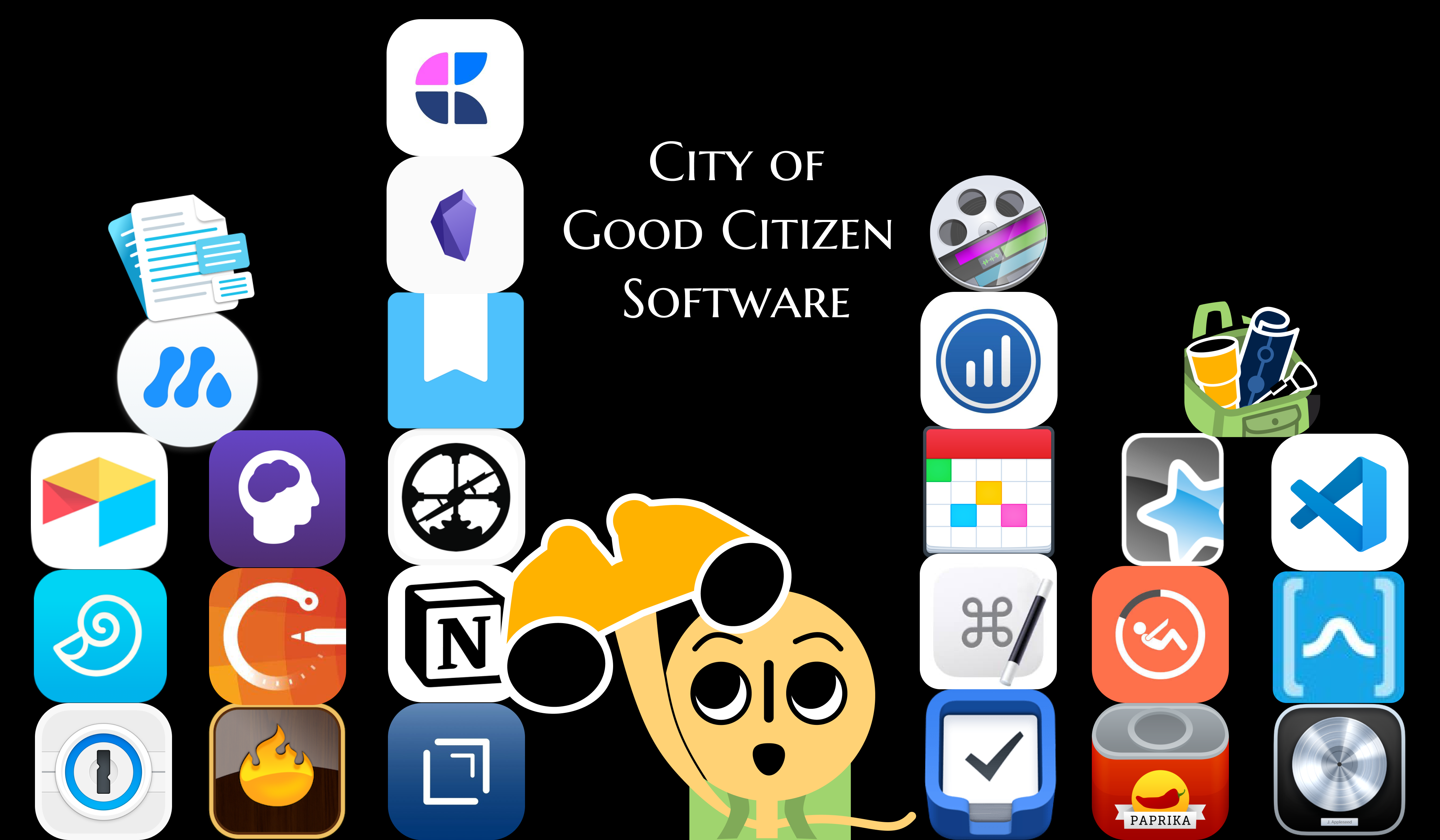
use
methods of rationality
in-context of multiple
tools for thought
working together, to improve yourself and the world. Like letting a part of your routine be to arrange and attend events (
methods
) around the city blocks (
instruments for improving
).
Instrumentally is in some ways a new kind of app, yet some related categories are:
tool for thought, tool for deep work, utility, practice aid, mental methods composable worksheets, cognitive aid, procedural knowledge management, curation (self & community), journaling to cope with reality, self-monitoring & cognitive-process analyzation, aspiring power user app, domain-specific modeling toolkit, self-directed learning, spaced repetition tests and collaboration enhancer.
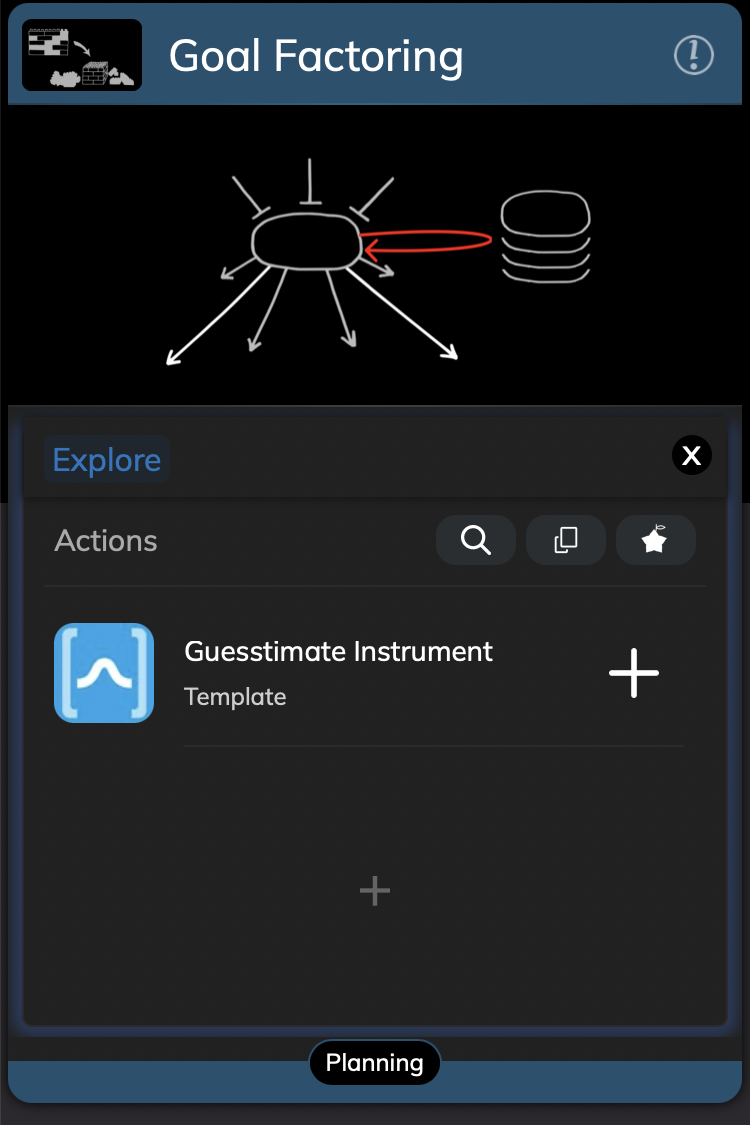
explore shortcuts to launch
instruments
, templates, scripts and more that You have accumulated because of their usefulness for a specific
keyword for a rationality-related verb
. Flexibly adjust filters and search, or browse to recognize fitting options.
The vision
is to enable customizable action palette views like e.g. a Notion/Airtable database; different views for different contexts.
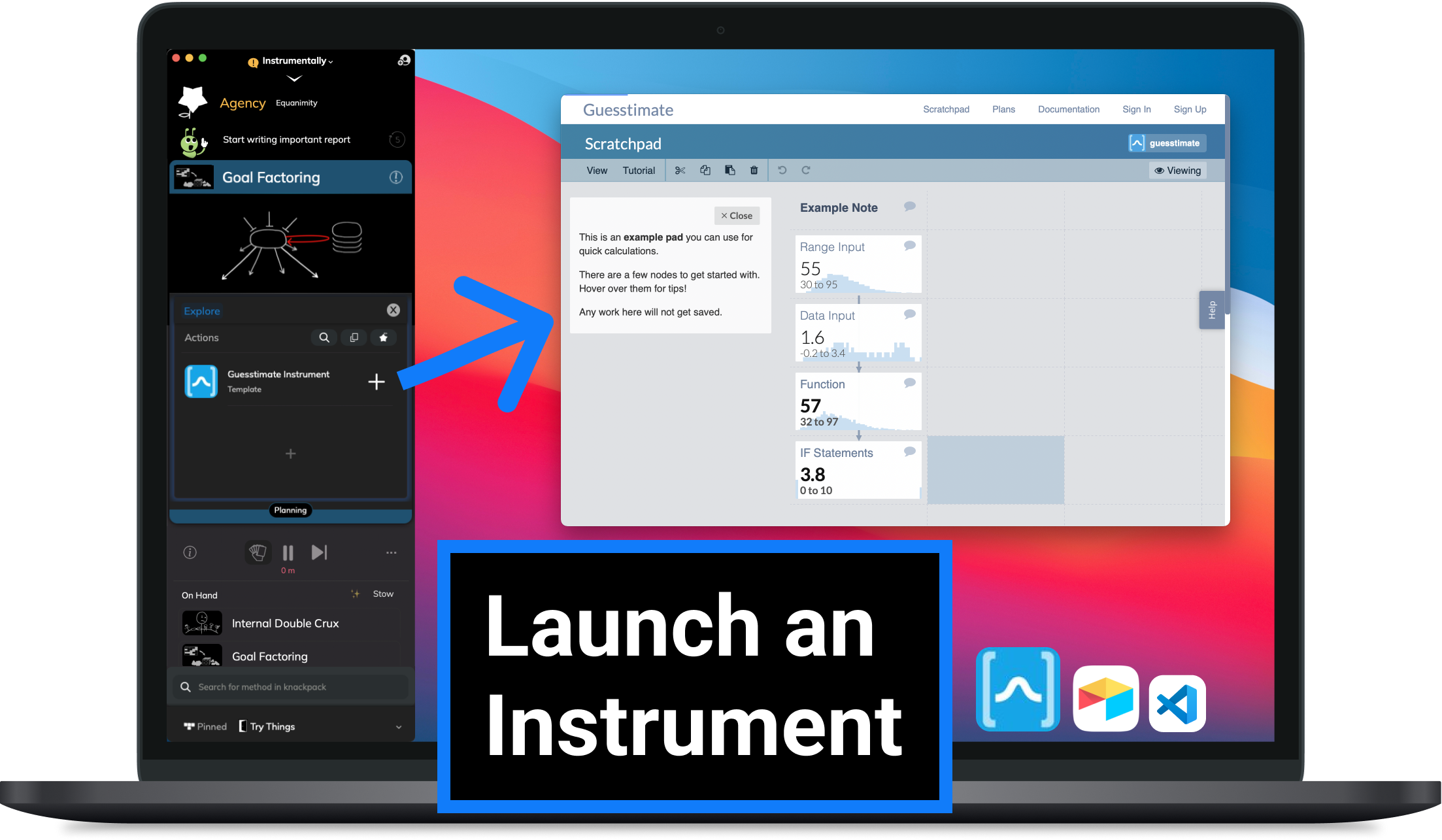
from an
action palette
, quickly e.g. launch
instruments
(possibly with different starting templates to adjust from) that usually are useful to you in that context of a method.
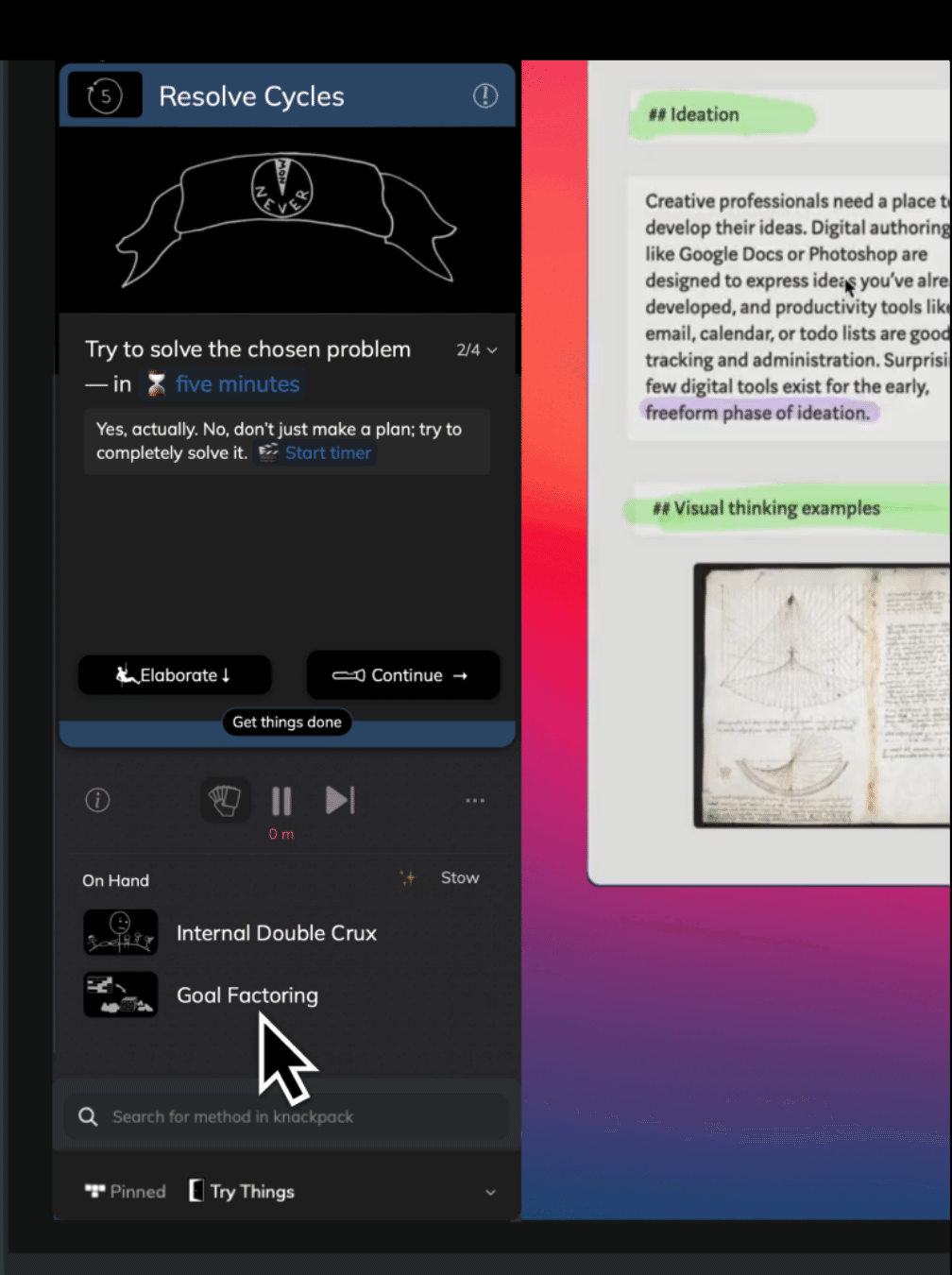
expert explorers and problem-solvers often don't follow linear recipes.
Use multiple methods together by quickly switching between the methods in your
hand of hunches
, as you model your process on the fly.
While applying a method you might pattern match that another method potentially could be useful; quickly search to queue it and then continue your current approach.
At fairly regular intervals we could also benefit from more
deliberate orientation
.
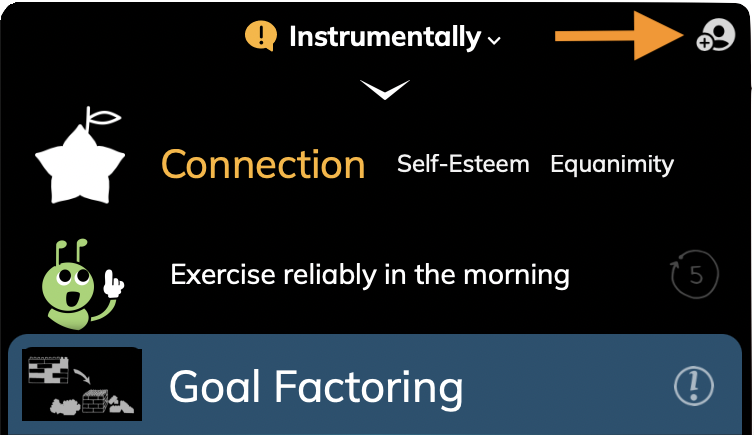
request aid from an
ally
to reinforce your growth.
You can do this from most views in Instrumentally, during most stages of a session.
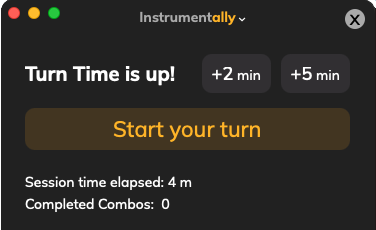
take turns with an
ally
to reinforce each other to take care of what
aspirations have been bugging
you lately.
Form
rationally compassionate
win-win norms to belong and grow strong together.
Create trust and grow secure by incrementally showing more vulnerability as you show each other your processes.
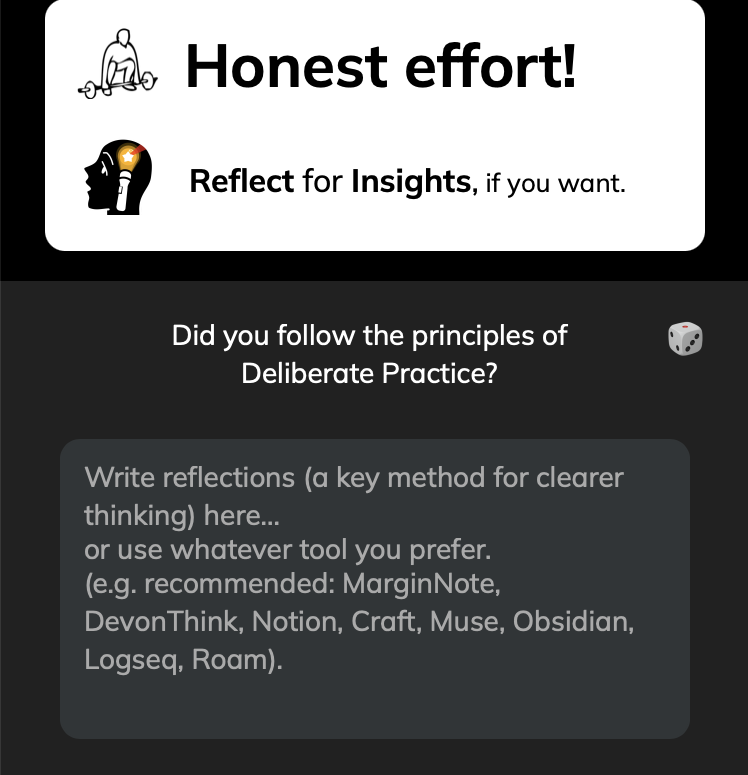
prompt yourself with mental models from experts. Optionally do this as you
view a replay of your process
, to give yourself valuable feedback information to improve your process with.
Perhaps even do this with the reinforcement of an
ally
to get extra attention to e.g.
notice patterns
for improvement opportunities.
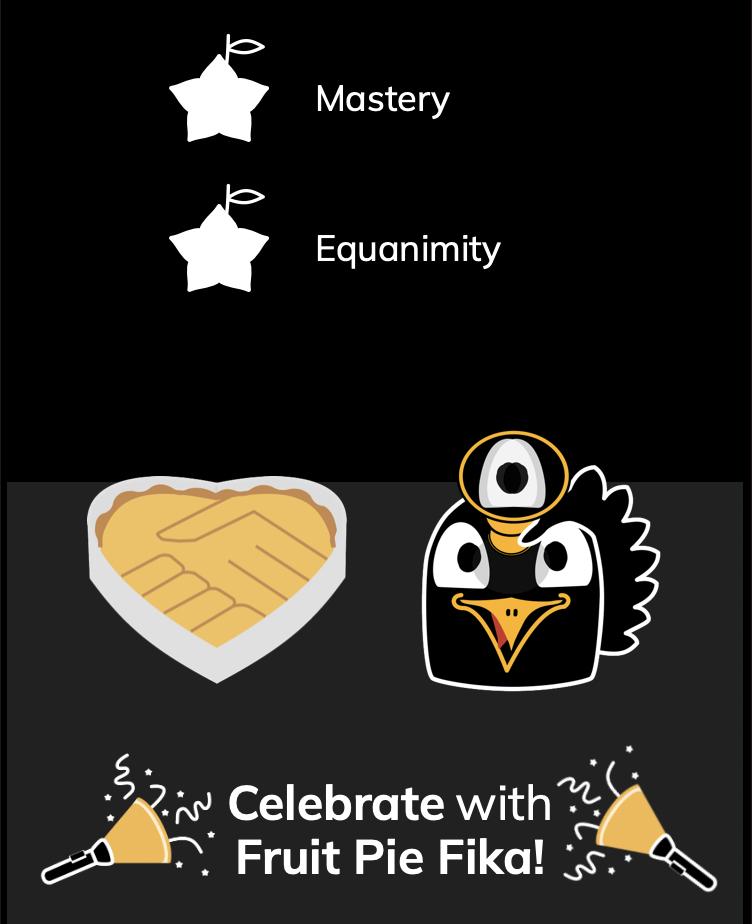
share the pie
made from the fruits of your efforts to grow, and recognize the
progress
you've made with a
self-compassionate
scout mindset
.
Yumory
, the yum-seeking three-eyed raven with an excellent scout mindset, can remind you to look for rationally compassionate perspectives, in case you'd forget
.
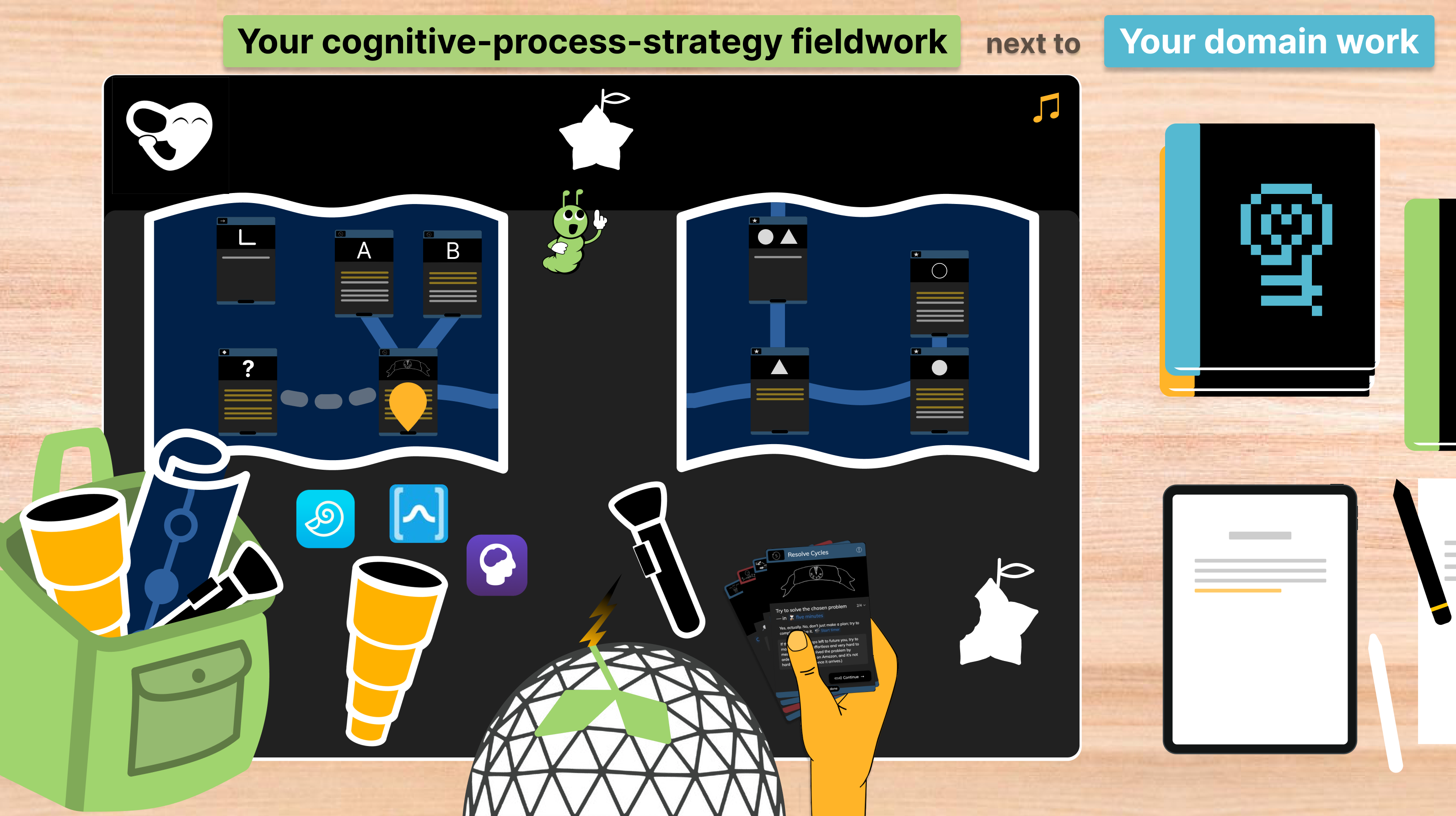
Next to the space where you're working on your domain work, e.g. reading, writing or programming; use Instrumentally a bit like placing a
playmat
in a section of your workspace on which you
self-monitor
,
direct
and improve your process.
Your feedback is welcome, so we can improve:
The Rest is Details
Nuance is the novelty in deep dives
This page was created as explanation and research documentation for the project. It is not intended as something you need to read all of linearly. My suggestions is to follow your curiosity and mostly browse the visuals and titles. Read the details if you feel extra curious about something in particular!
Eventually this is going to be updated: split into multiple pages, made shorter to work more as a practical field guide rather than documentation, and be updated for the
most recent version of Instrumentally.
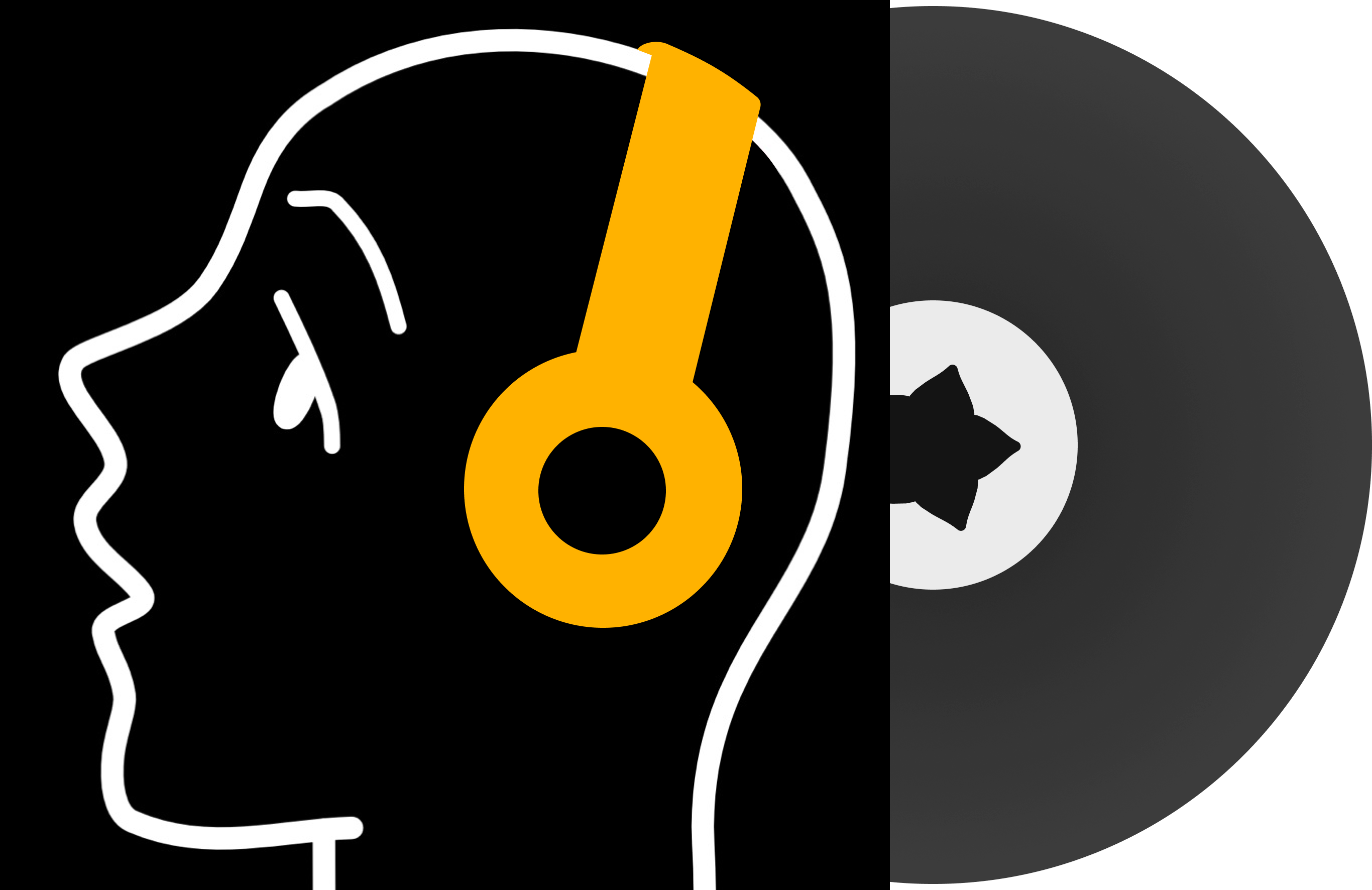
Explore
If you want to you can listen to the early access version of the instrumental theme music for Instrumentally as you explore the field guide.
Balancing Mental Needs

explore for roots of what you
truly need
by interacting with visual, dynamic and evidence-based models of
mental needs metrics
. Like browsing lego parts spread out on the floor (a metaphor used by Bret Victor in his essay
Learnable Programming
).
Crucially, the vision of the system is to allow for
adding your own models
or community-recommended modules of models, welcoming diversity and possibility to update as you and science learns more.
To overlap the lenses of multiple models can make our understanding come closer to truth.
Example of an additional categorization
.
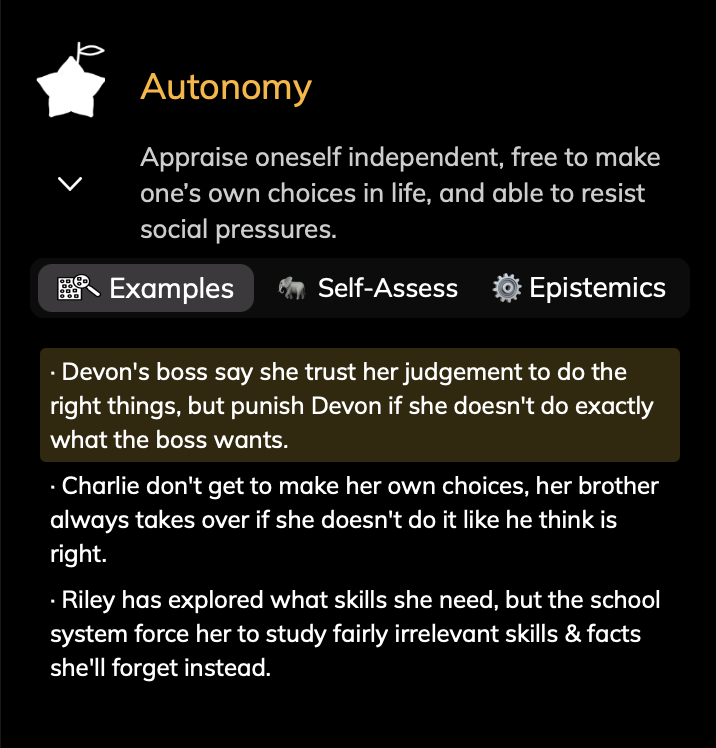
Seek accurate pattern matches by (1) comparing to examples, (2) doing accurate yet quick-enough-to-be-practical self-assessment tests and (3) scout to evaluate the epistemics of the mental need models to understand whether they're a priority for you and to understand the extent to which their sub-assumptions are true.
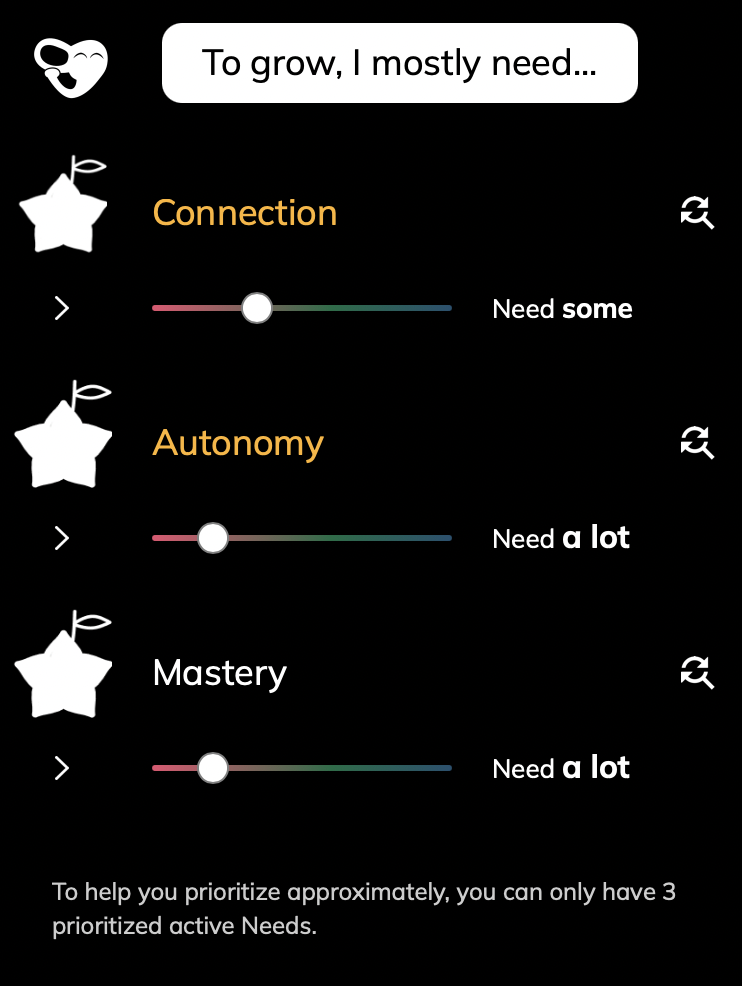
motivation that is reliable AND calibrated relies on finding routes that both maintain mental needs and virtues like e.g. truth-seeking (a
scout mindset
).
Consider marginal gains as you balance upkeep of your mental needs, to stay more reliably effective.
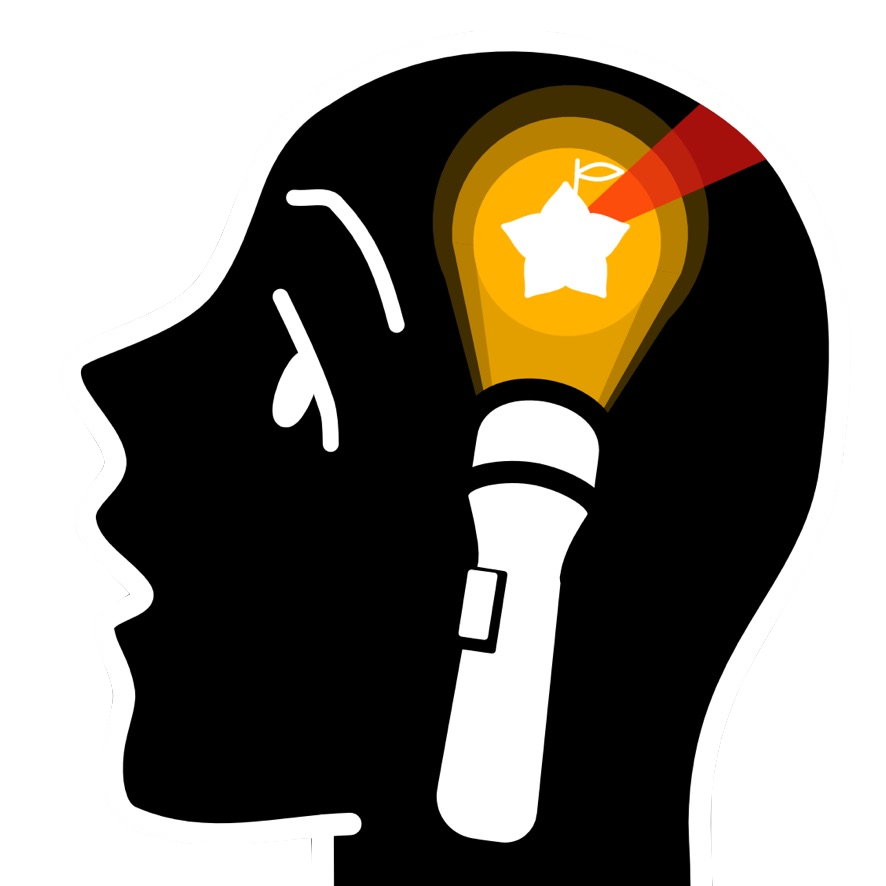
understanding psychological systems empowers one to align one's motivation toward more truly high expected utility activities & processes. Redesign your mind and your environment to reliably reinforce your current aspirations, and update your aspirations as you grow.
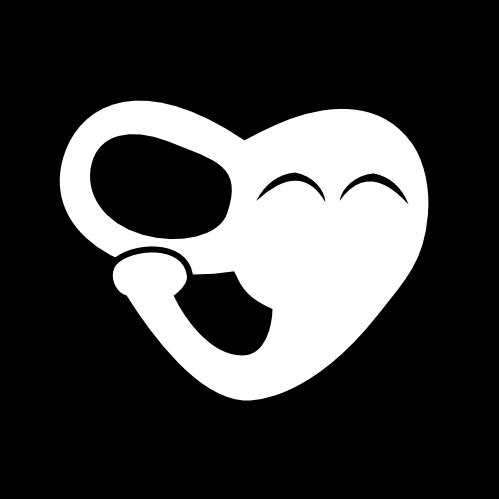
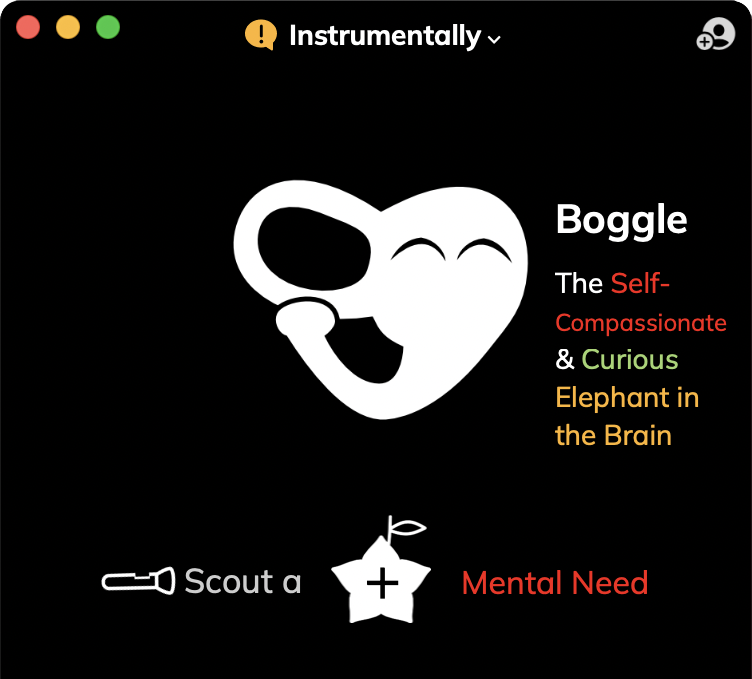
Boggle
,
the elephant in the brain
, reminds us of
Goodhart's Law
and to periodically self-compassionately boggle our perception of what truly motivates us and identify better metrics to aspire to align our motivations toward.
To become drive detectives; detectives of what drives us.
If the aspiring characters of Instrumentally don't fit with your identity's taste, you have the option to
change the style in the settings
.
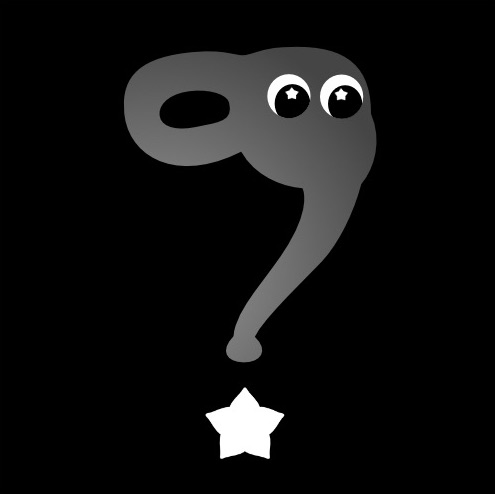
"The further from shore the deeper the ocean." The truth is a lot of things in life are uncertain, we are often to a large extent in the dark. We need to learn to make light to navigate that darkness. Uncertainty can feel threatening even with
tools
and
troops
, you need enough psychological safety through
rational compassion
too...
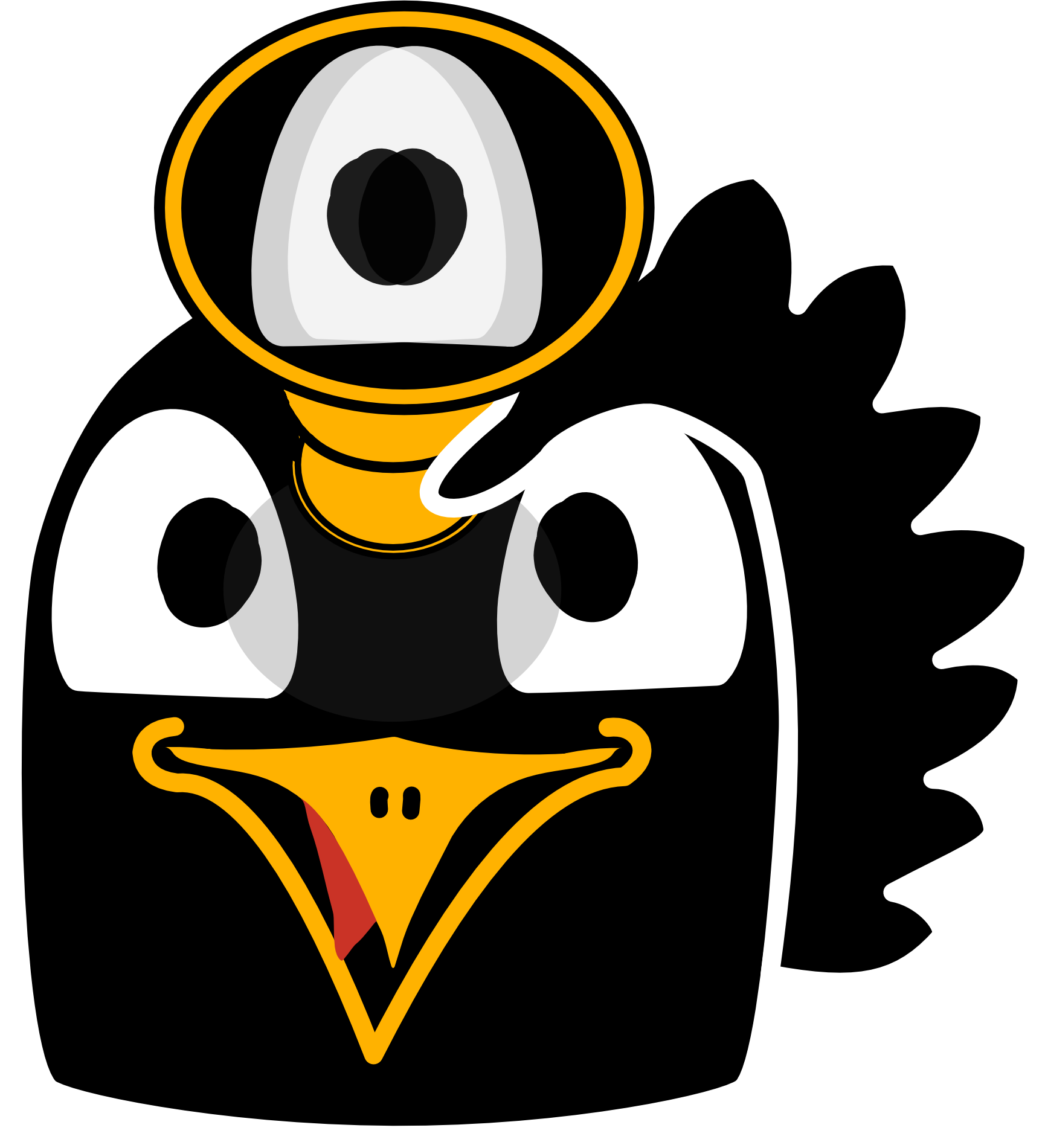
The yum-seeking, three-eyed-raven
scout
. Yumory reminds you to aspire to grow and maintain a
scout mindset
and to seek true and long-term healthy & helpful perspectives.
If the aspiring characters of Instrumentally don't fit with your identity's taste, you have the option to
change the style in the settings
.

A feeling of significant uncertainty that is not under one's control is a central type of threat to our brains. Aided by instruments, methods, allies and concepts of rational self-compassion from cognitive science; warmly embrace uncertainty as your ally and listen with an open mind to learn to become more resilient as you cope with reality. Become
safe in discomfort
.

navigate the vast
uncertainty
by taking many Δtiny healthy steps. Focus on improving one's process. Realistic optimism with a developmental psychology perspective to incentivize long-term growth.

share the pie
made from the fruits of your efforts to grow, and recognize the
progress
you've made with a
self-compassionate
scout mindset
.
Yumory
, the yum-seeking three-eyed raven with an excellent scout mindset, can remind you to look for rationally compassionate perspectives, in case you'd forget
.
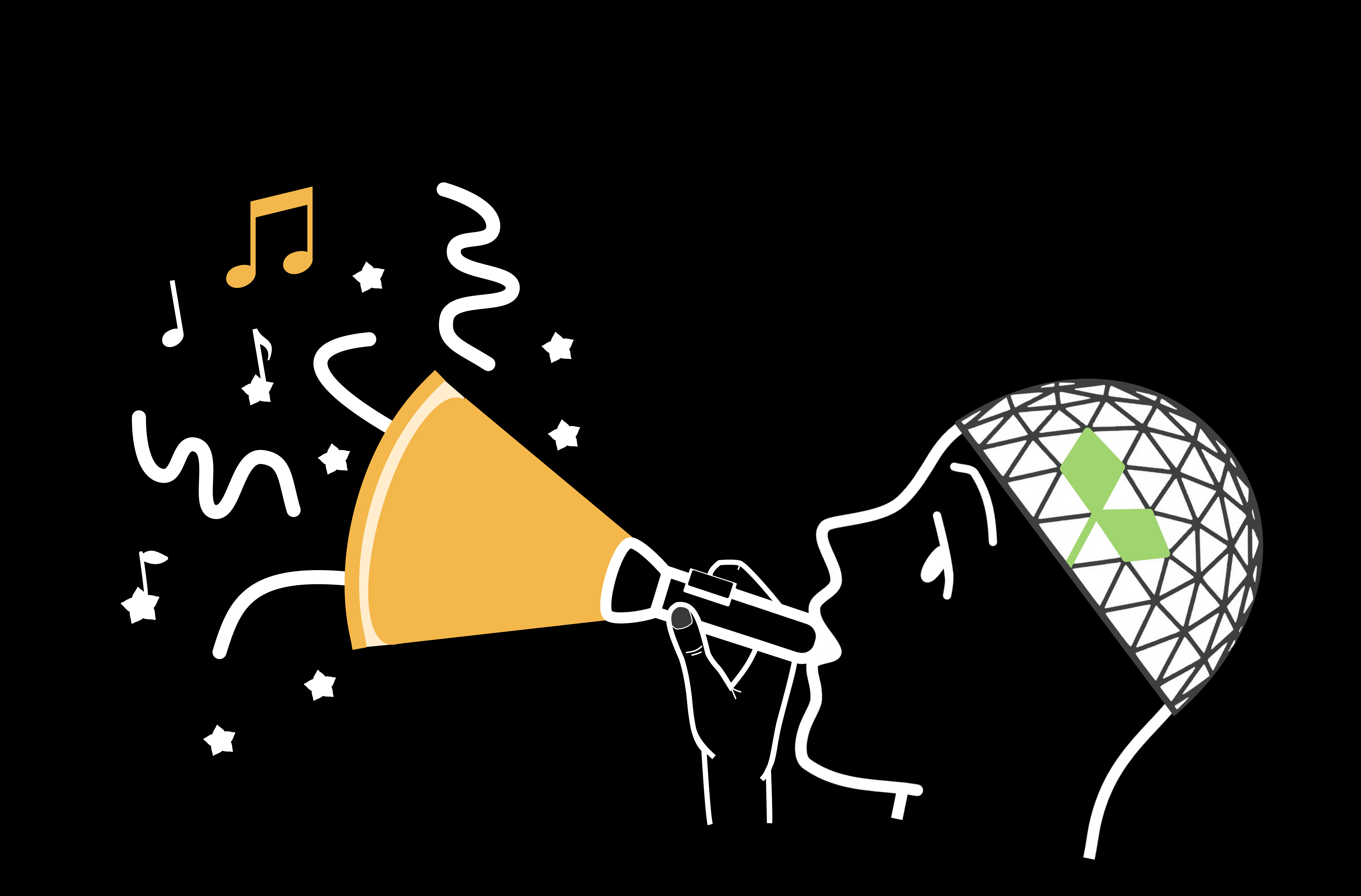
The Instrumentally team has made an
early access soundtrack
as a 🎺fanfare to inspire and 🎉celebrate our aspirations to attune to act in many Δtiny healthy steps towards
improving our processes
. Aesthetics is important for the behavioral design of a system designed to be reliably used by people, and we want to set up such systems to be accessible to increase the probability that we actually spend our time on more valuable activities.
Enjoyability is a sub-factor to accessibility, which is separate from robustness and importance. Statistically enjoyability might correlate fairly strongly with low robustness and/or low importance, but enjoyability doesn't cause neither low robustness nor low importance.
Your feedback is welcome, so we can improve:
Aspiring Bugs

build form by choosing
small problems
to take care of. Bug by bug, work yourself out of your comfort zone at your pace, one
Δtiny healthy step
at a time (integrating into bigger improvements over time).

a bug is anything that systematically goes wrong (in reference to bugs in programming), aka. an opportunity for improvement! An aspiring bug starts by exploring what value it needs and the improved outcome (the fruit it needs to grow). This
more likely grows motivation
to take on the specific challenges in the way of the goal.
If the aspiring characters of Instrumentally don't fit with your identity's taste, you have the option to
change the style in the settings
.
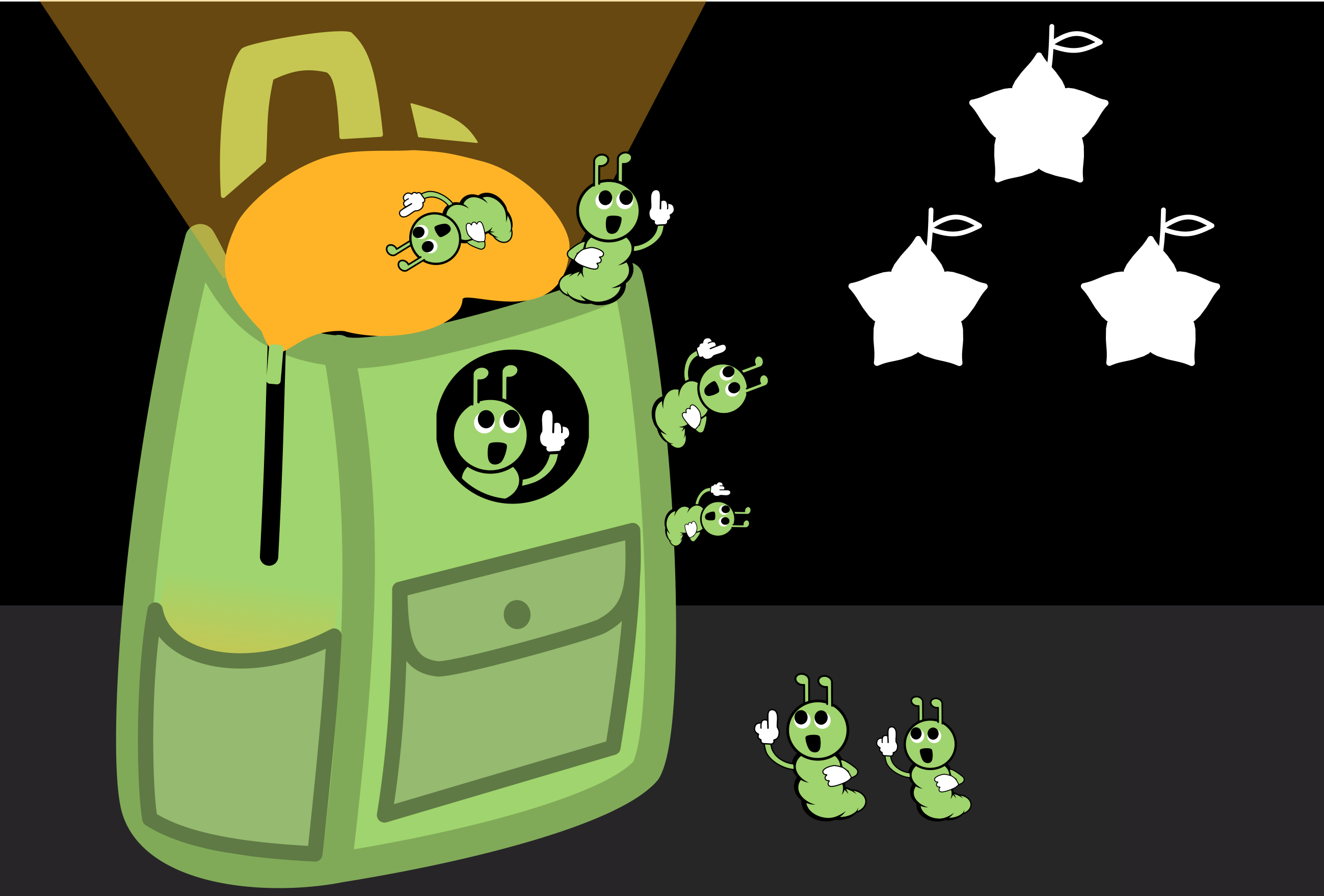
since aspiring bugs contain valuable information that create improvement opportunities, it is useful to become aware of them.
Yes, there is a possibility of getting overwhelmed. It is better to face reality and then prioritize and learn to become ok with that you can't do everything, than to ignore growth opportunities.
Since aspiring bugs are the product of perceived actual-ideal gaps, it is still important to be a little bit picky about what actually is a bug; to find bugs through the lens of robust concepts/models.
Your feedback is welcome, so we can improve:
Use Methods of Rationality
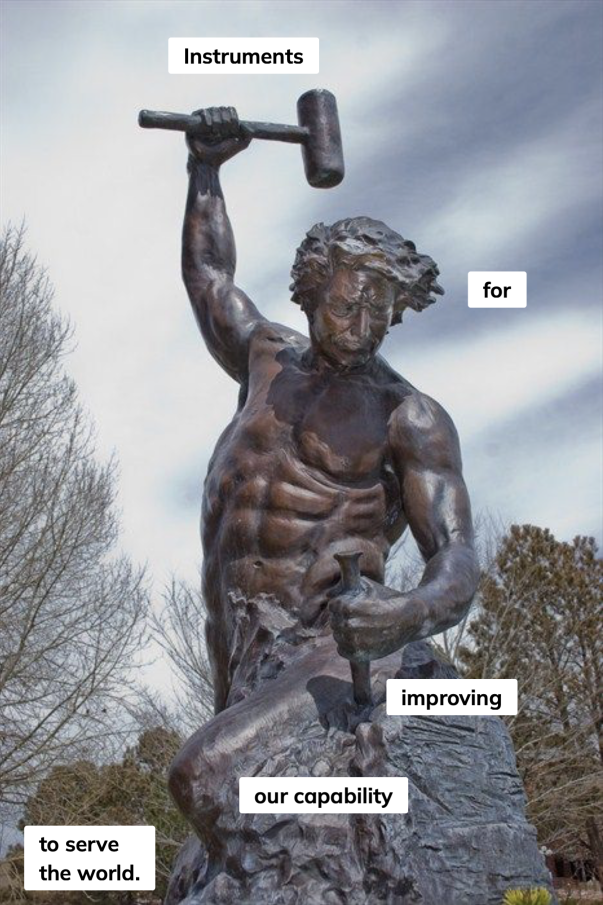
as defined (and is aspired to be performed) on
LessWrong
.
LessWrong Image Source
(without the added annotations)
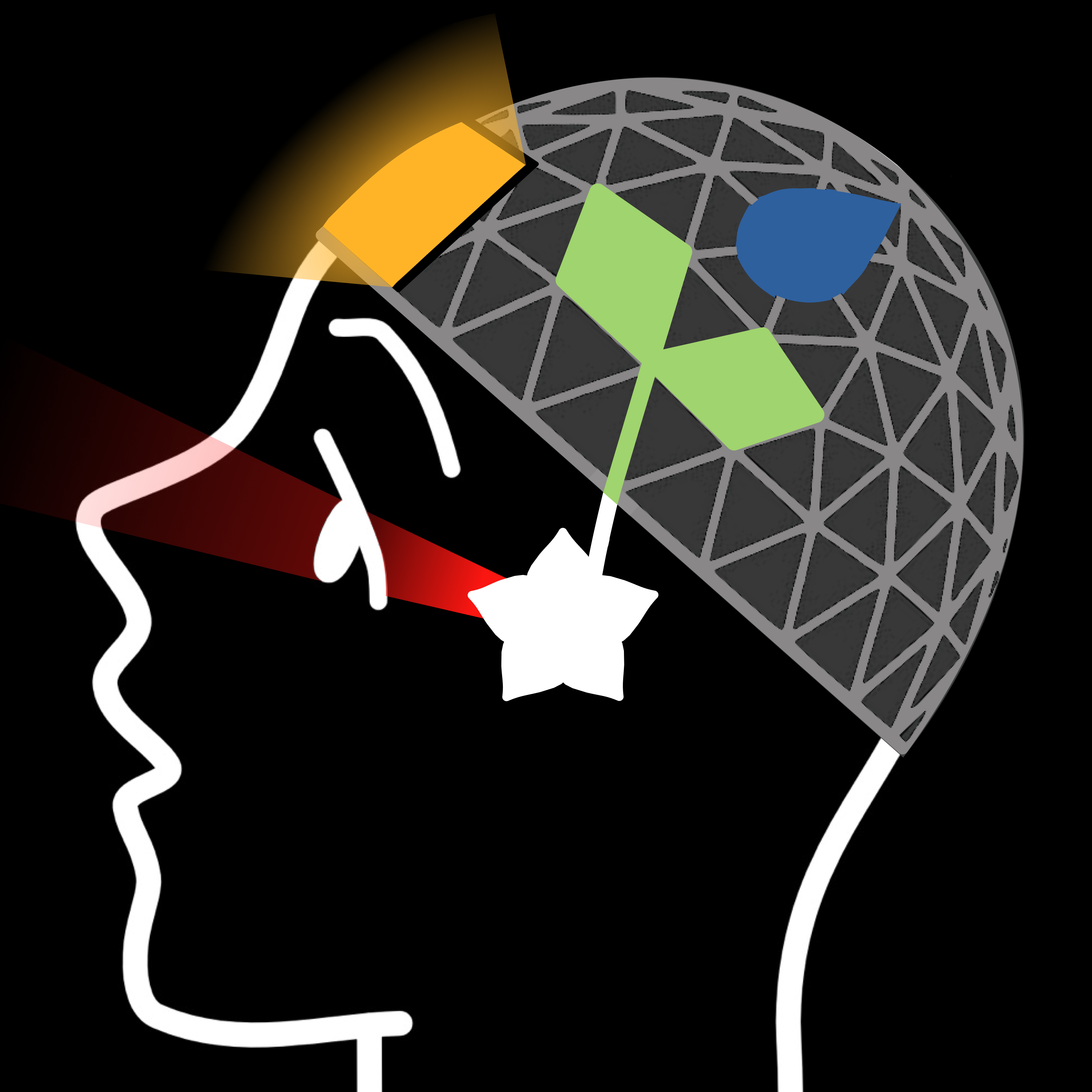
a person who makes strides to become more rational (as defined on
LessWrong
).
Like putting on your swimming cap technology to practice and perform swimming in uncertainty with the goal of growing more rational mental processes.
Other analogies: (1) conservatory (greenhouse for reliably growing, or alternatively a place for practicing to learn to play instruments), (2) an (industrial) research lab facility (or exploratorium) to explore hypotheses and create insights, and (3) a (jungle gym) playground to try things, fall and get up and try again.
View interactive explanation.

shows a
plot spot
of a
method map
. Think of it as a compass in your
debugging
, which includes prompts to inspire you to orient effectively as you explore and problem solve in the knowledge world. Elaborate on the interactive prompts as thoroughly as your context needs.
Currently the method mini-map is designed to look like playing cards in card games, since playing cards show affordance that they are supposed to be played/used in a procedure.
The vision is that users adjust and compose method maps which include
interactive components
tailored to embody rationality methods and principles, not just
smart text
.
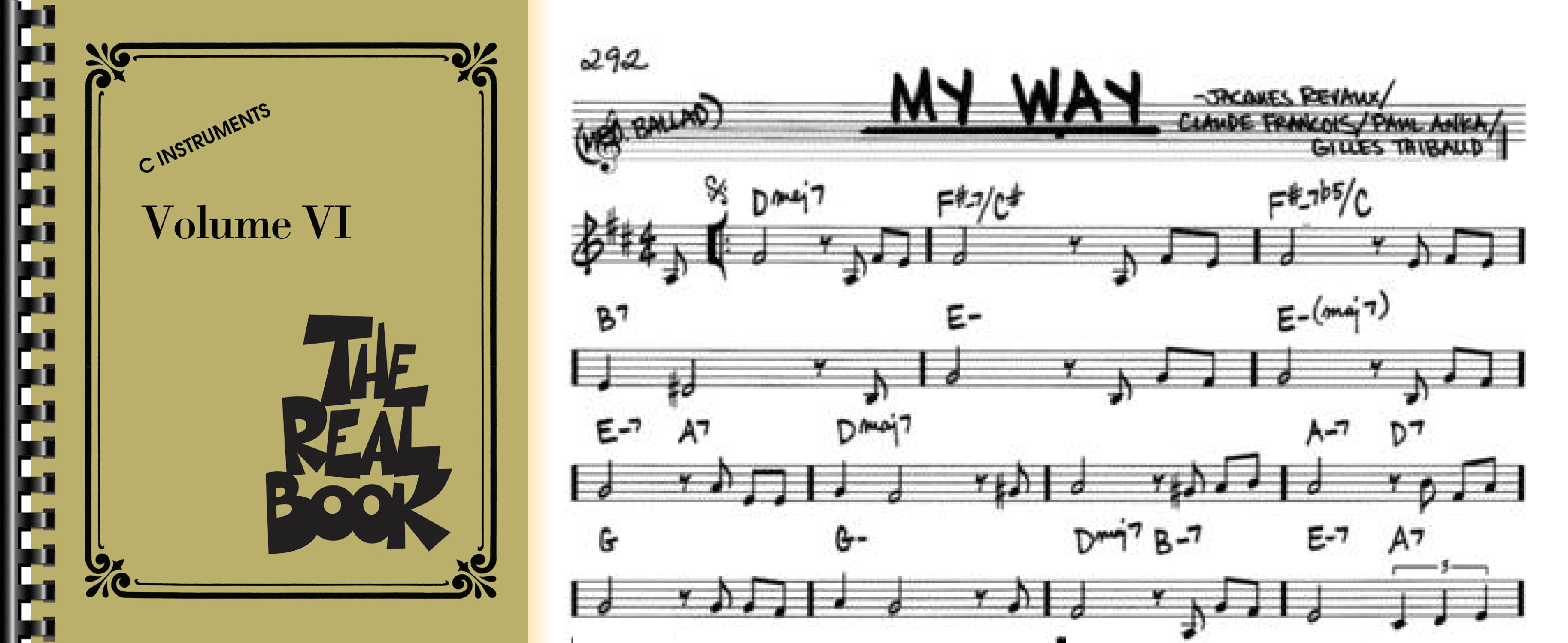
a
method map
is in some ways similar to
lead sheets
; a music notation that jazz musicians use as a frame of reference for the music they want to play. They change up e.g. the melody, chords and structure on the fly as they're arranging, practicing or performing and improvising.
This is more flexible than classical sheet music which is more like following a linear recipe, a form or a
wizard-user interface
.

a practical representation of a
method of rationality
. A frame, as starting point, for your thinking and problem-solving explorations.
Compose with
building blocks (e.g.
plot spots
) to modify and make up a method map on the fly
; then play and perform with it, both directed by tracks and undirected off the beaten track.
Method maps are less like tutorials and more like
software libraries
: flexible frameworks including components to compose with that are designed to help you model certain things (in this case more rational cognitive processes) easily and quickly enough to be practical.
One analogy is real-time strategy games like Starcraft 2, where you inhabit the map with buildings providing functionality to use during a play session.
The vision
is to make a powerful fullscreen overview map to navigate a method too, not just the
method mini-map
.
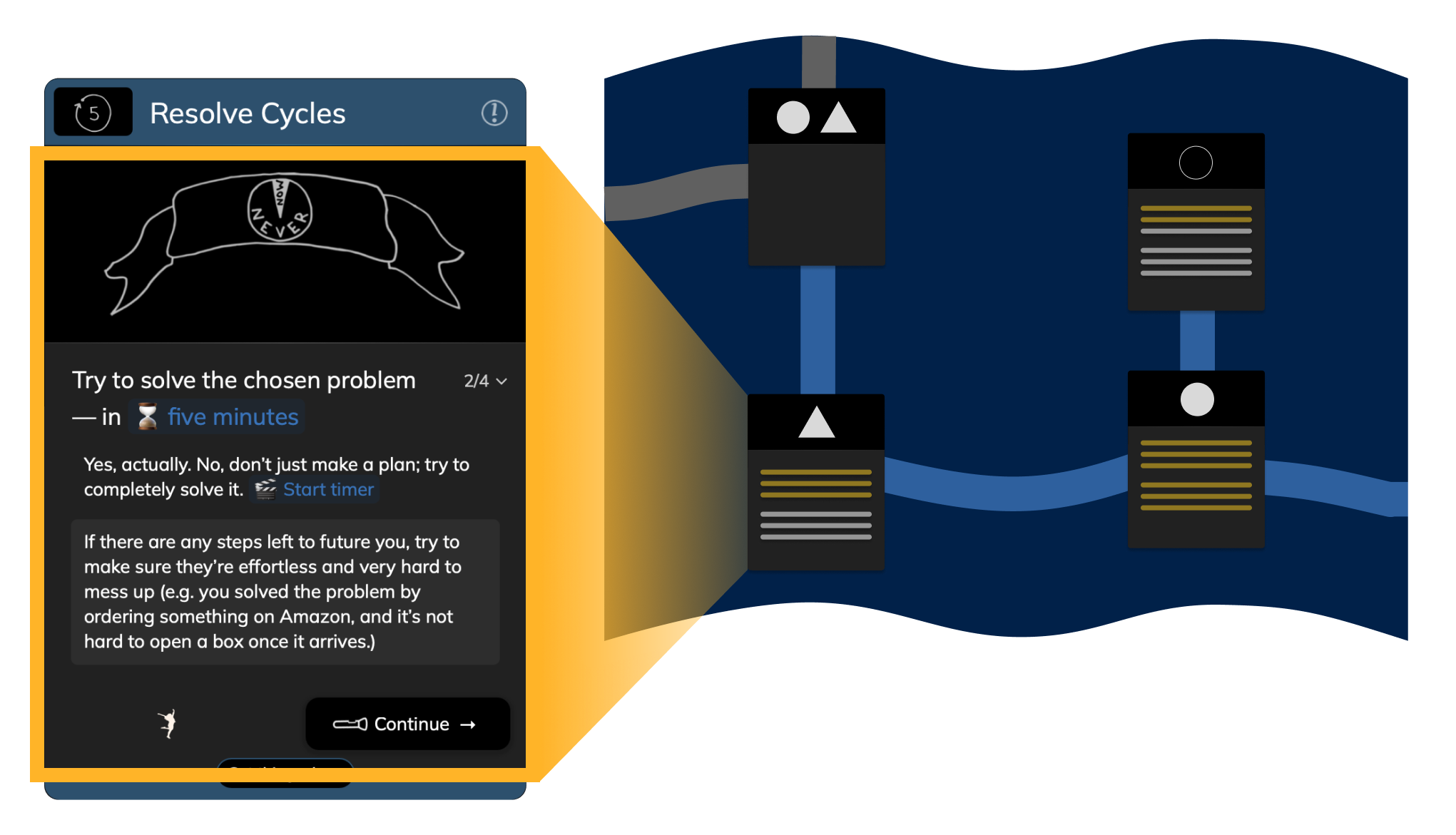
an actionable event, often part of suggested template sequence structure (a
method map
) including
prompts
with
keywords
to e.g. launch instruments.
Plot spot as in (1) a part of a plot, a plan, (2) a spot for a plot of land you maintain in e.g. a conservatory garden or for a building in a city you're building, (3) a spotlight highlighting where to focus your attention in a theatre scene (a scripted process/method) or improv game
The vision is to include even smarter text and
graphical user interface interactive tool components that embody rationality methods & concepts, not only smart text
.

a type of thing that can be added to the playmat (e.g. a
method map
,
concepts-as-constraints
,
instrument parts
,
pouches
)
to compose/build your strategy with.

concept/ideas, sometimes in the form of questions, to consider and take action based on.
The aspiration is to write these texts to be small actionable chuncks that are glanceable.
While one might be used to linear recipés, these are intended more as a collection of sometimes useful ideas to consider. Focus on ones most useful to your context.
Similar to e.g.
panels in the game The Witness
, the idea is that a
plot spot
or a
building block
, is a small somewhat linear/guided activity, but you don't have to complete all of it at once, you can get stuck, go someplace else and come back later. This keeps your autonomy satisfied, but is also an intentional structure for effectively working together with your brain in creative problem solving.

Keep Instrumentally close at hand as your
knackpack
(like an accessible backpack filled with rationality informed knack to apply),
to visually remind you to
self-monitor
during work and life projects and empower your growth & maintenance of reliable
rationality
routines.

Instead of constraining yourself to a monolith web-app, use the full power of your computer with any
tools for thought
(
instruments for improving
)
to explore and solve problems with. Well-crafted software helps us think, in part by serving as extra working memory we need to think better.
The vision
is to transfer the design principles of Instrumentally to something like
Dynamic Land
(
recent Live Demo
)
for a workspace with even more agency and power.

inspired by (1)
prompts
in
method maps
, (2)
feedback
from
allies
and (3)
concepts
used as constraints
;
deliberately perform
by applying your knack
in the
workspace
to make progress on improvement opportunities bugging you in your work and life projects.
Use
methods
in-context
of your preferred
tools for thought
.
One analogy is cooking recipes; method maps in Instrumentally aid you in performing the recipe with the tools in your kitchen (the
workspace
).
Knowledge work is of course in many ways much more complex and less linear than cooking, which requires more
flexible and powerful tools
to help us practice and implement better habits.
The vision also includes Instrumentally-made or community-made
instruments tailored
to embody methods of rationality like e.g.
goal factoring
.

do specific skill drills slowly, attending to
deliberate practice
, slightly outside of your comfort zone, to learn effectively.
Practice is an effective way for people to implement new behaviors & habits.
Optionally
record yourself
for short feedback-loops of less compressed information about your process, which is valuable as it can help you understand and improve your process.
Balance mental needs
to more consistently be motivated to grow & maintain a reliable practice.
Playfully trying things is important too since interest is developed incrementally, yet at some point you'd want to align your motivation and systems to increase the amount of more effortful deliberate practice so you can learn and gain mastery more efficiently.
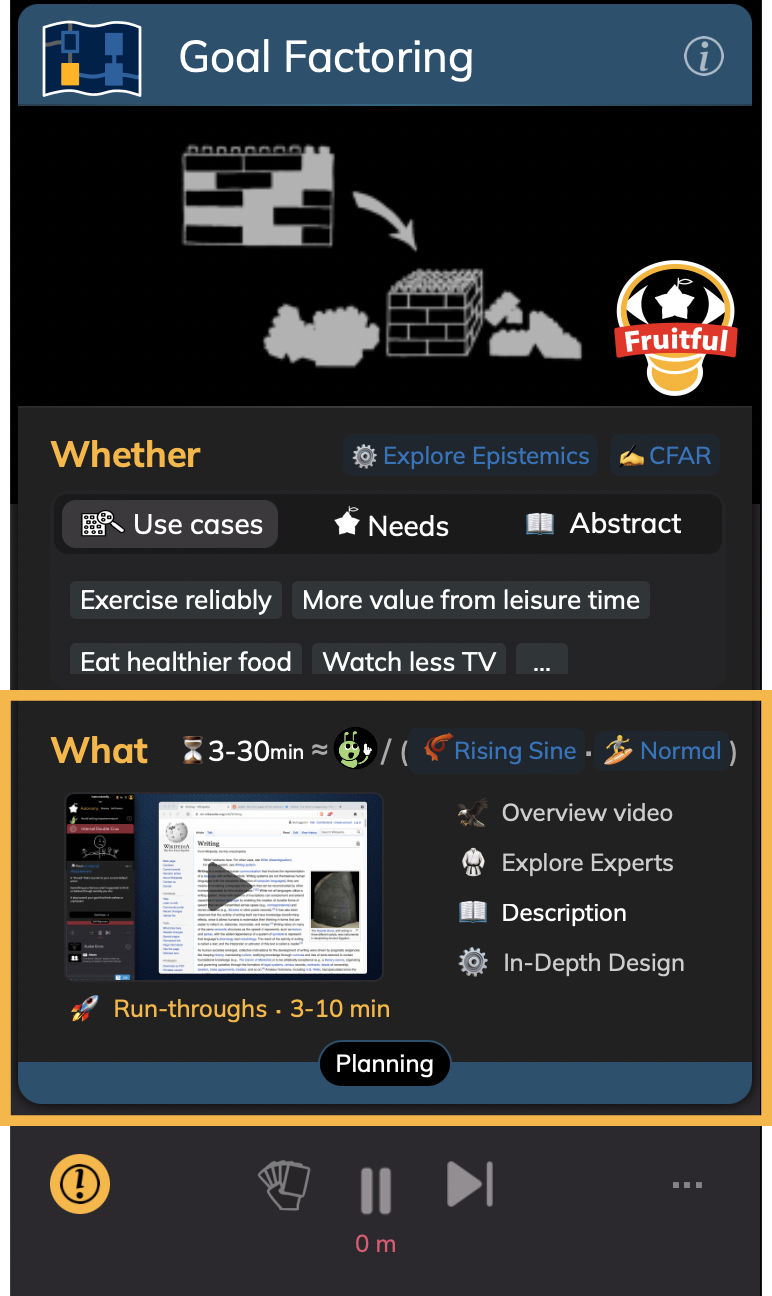
Increase self-efficacy (expectancy that you'll succeed), e.g. by gaining a better understanding of what to do. In replays, see concretely how peers and experts perform the
methods
and follow the flow.
Watch run-throughs, textual description and even designers explaining the epistemics behind the method's design.
The vision includes a full-sized overview
of this information too.
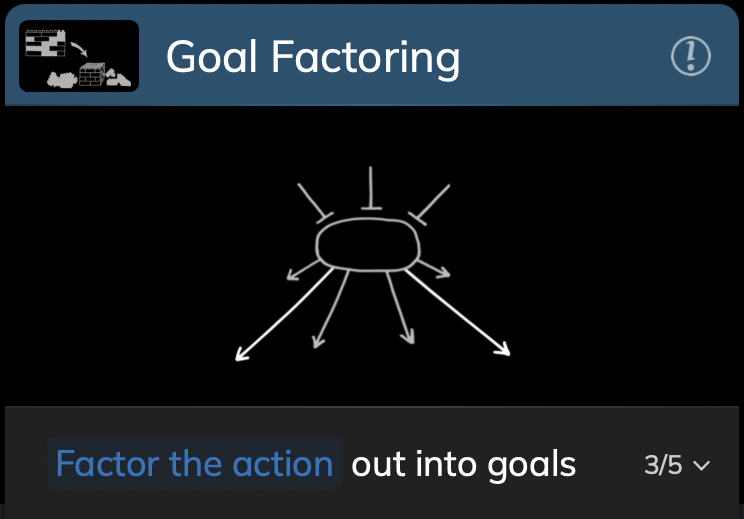
Recall methods and their building blocks more easily with visual mnemonics. Stay focused with a visual reminder in your environment. Enjoy the art and develop a curious desire to try things.
AI technology like Dall-E makes it easier than ever for anyone to make memorable art for their method maps.
The vision
of this space on the method mini-map, is also to be able to launch, show and control concrete replays of peers and experts practicing and performing specific steps in method maps.
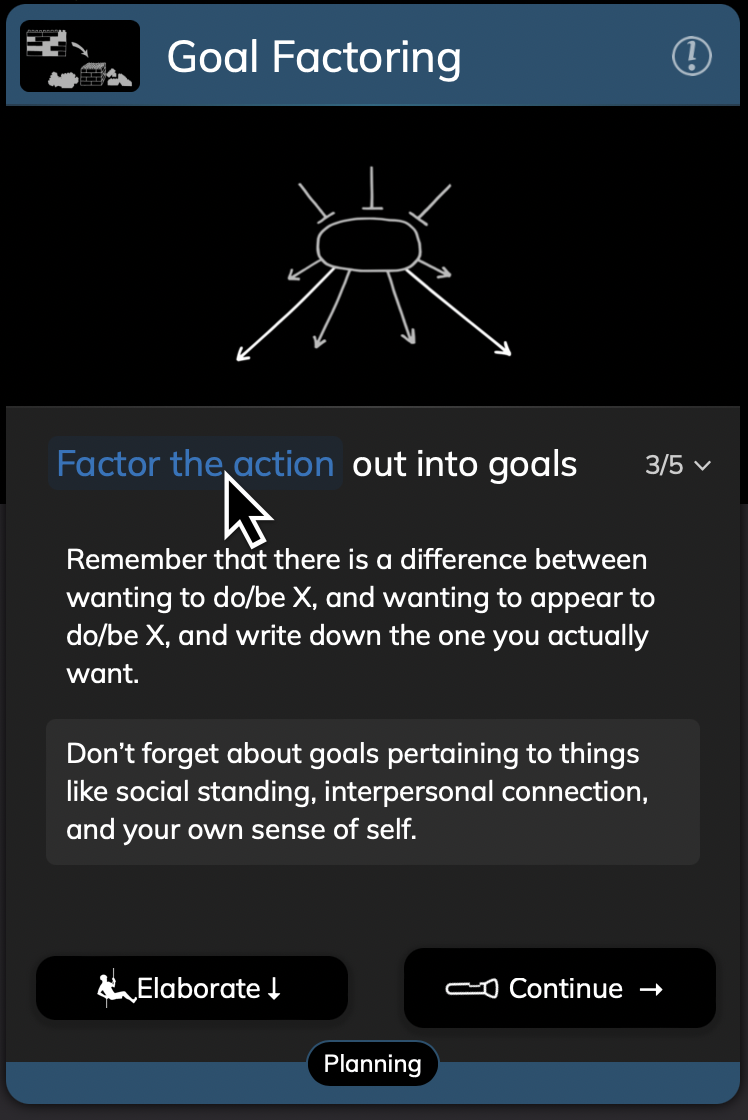
interact with increasingly smarter text in the
plot spots
of method maps, to do powerful
actions
with the full power of your computer.

explore shortcuts to launch
instruments
, templates, scripts and more that You have accumulated because of their usefulness for a specific
keyword for a rationality-related verb
. Flexibly adjust filters and search, or browse to recognize fitting options.
The vision
is to enable customizable action palette views like e.g. a Notion/Airtable database; different views for different contexts.

from an
action palette
, quickly e.g. launch
instruments
(possibly with different starting templates to adjust from) that usually are useful to you in that context of a method.

expert explorers and problem-solvers often don't follow linear recipes.
Use multiple methods together by quickly switching between the methods in your
hand of hunches
, as you model your process on the fly.
While applying a method you might pattern match that another method potentially could be useful; quickly search to queue it and then continue your current approach.
At fairly regular intervals we could also benefit from more
deliberate orientation
.
Your feedback is welcome, so we can improve:
Choose Methods of Rationality
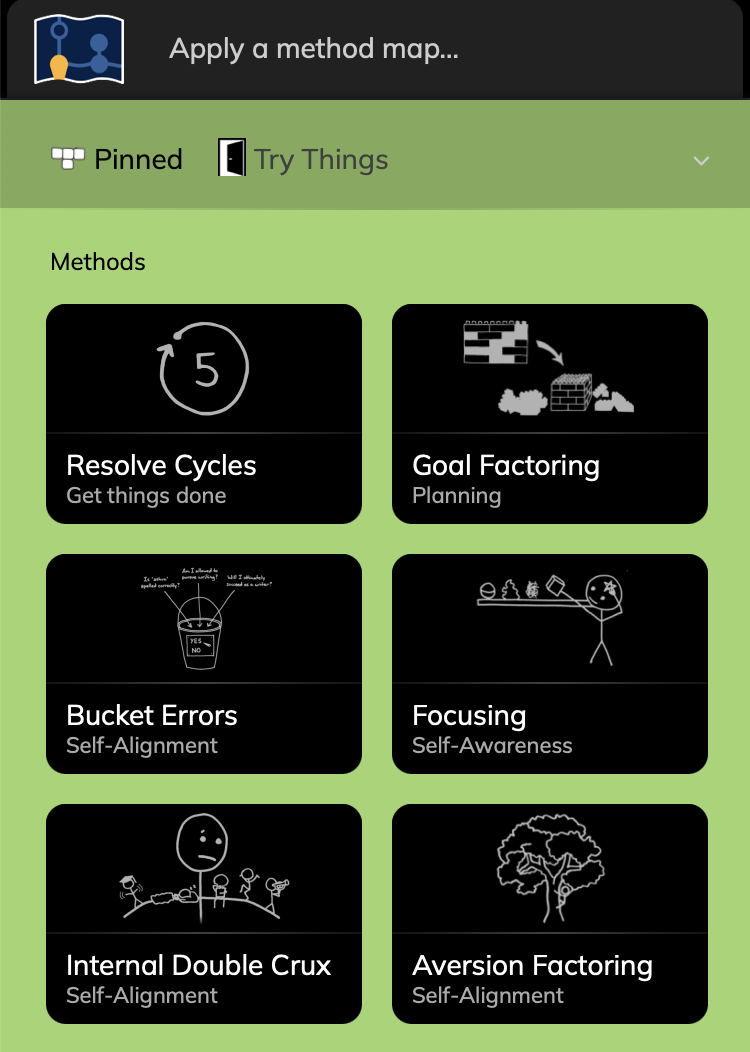
Instrumentally is like a
backpack
for packing the knack (
methods
,
concepts
,
instruments
,
mental need metrics
,
aspirations
, etc) you think you need the most.
It can stay close at hand, you can personalize it to your needs (e.g. organize and pin favourites (functionally) but also choose style (aesthetically)). It also has limited space for complexity, so you prioritize packing what will be most useful for you on your current journey.

Instrumentally is like a backpack for packing the knack (
methods
,
concepts
,
instruments
,
mental need metrics
,
aspirations
, etc) you think you need the most in your backpacking to do insight-seeing around the knowledge work world.
Learn to use your instruments and improvise on the loose in
uncertainty
.

find
methods of rationality
by exploring your
knackpack
to recognize fitting options. With
practice
, gain tacit knowledge to choose better faster. Start experimenting with the method your initial hunch hints may be useful and then
flexibly adjust course
as you gain more information.
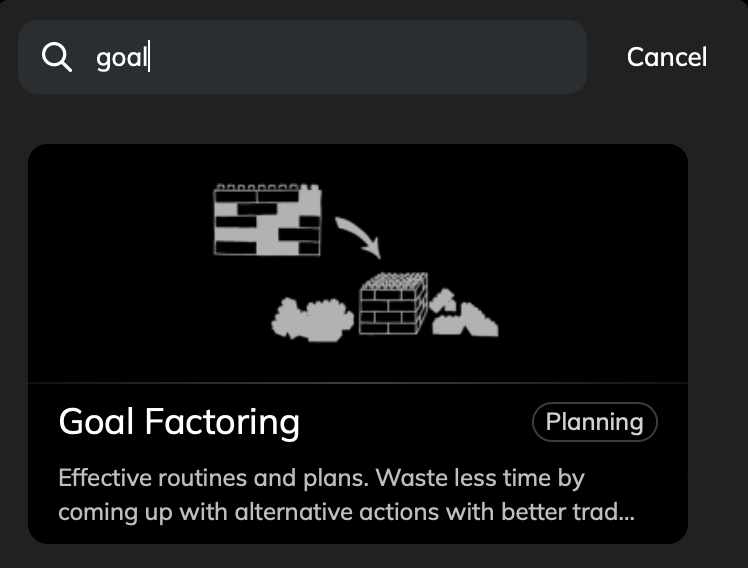
quickly add a
method
you recalled and
pattern matched
, by searching through your
knackpack
with terms and filters.
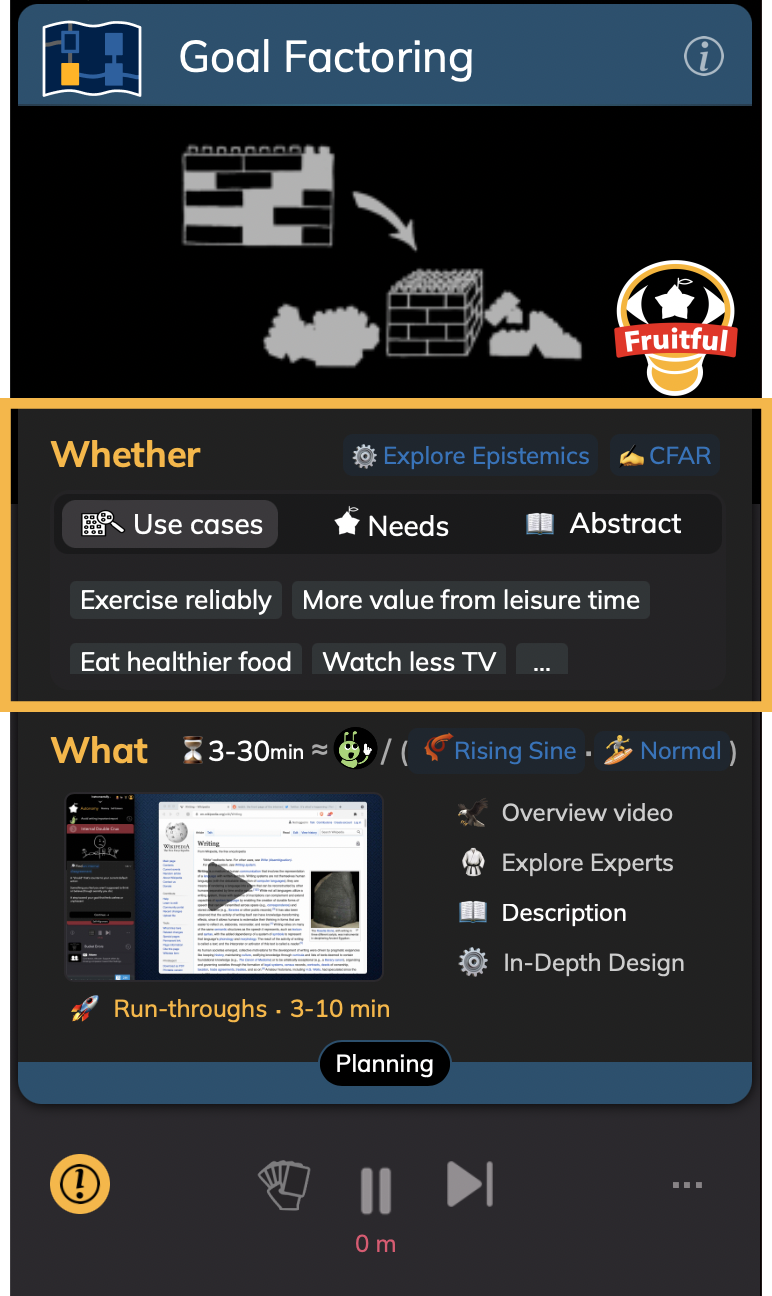
What does a hero truly
need
? Instrumentally and its community is here to help you decide, in-context during your problem-solving session. Consider what the value of a
method
would be for you right now.
It can be useful to explore a short concrete example of the
method in use
too, to understand what it means.
The vision includes a full-sized overview
of this information too.

Increase self-efficacy (expectancy that you'll succeed), e.g. by gaining a better understanding of what to do. In replays, see concretely how peers and experts perform the
methods
and follow the flow.
Watch run-throughs, textual description and even designers explaining the epistemics behind the method's design.
The vision includes a full-sized overview
of this information too.
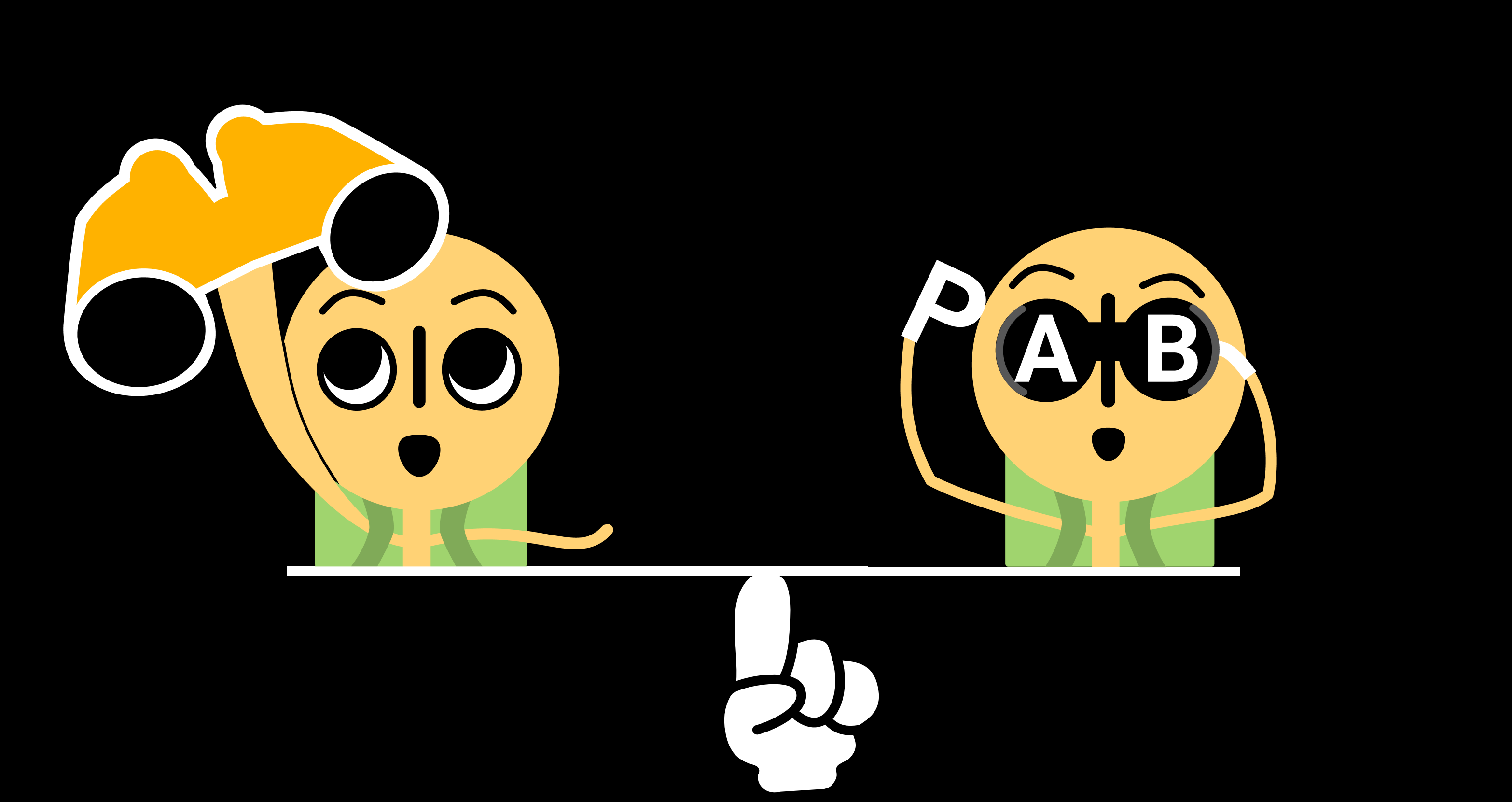
build better balance of marginal gains between (1) exploiting; implementing/practicing to apply knack (methods, concepts, metrics, use and adjust systems, etc) and (2) to explore and collect more and/or better knack that is new to you.
Consider your statistics of where you tend to be in the OODA (Observe, Orient, Decide, Act) loop. Try to balance, e.g. with help of trigger mines i.e. to commit to a choice for X amount of time and only after that time consider whether to explore options again and change direction.
Improve your
instrumental AND epistemic rationality
.

When your Instrumentally
knackpack
isn't currently being used, you can see methods you've pinned because you aspire to practice and perform them. Personalize your knackpack to your needs as you update your fluid identity over time.
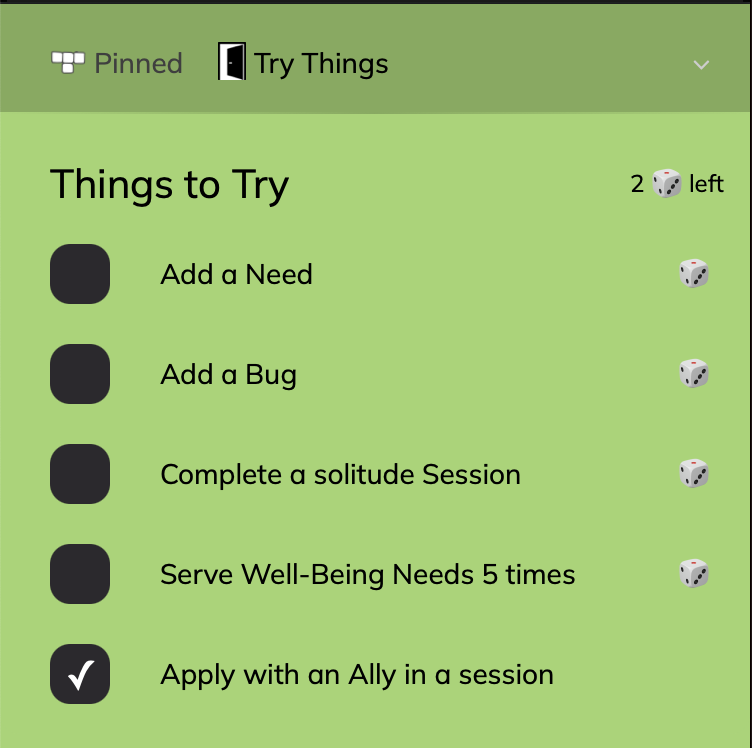
To aid you to adapt as the world changes, Instrumentally aspires to encourage you to leave the door open for trying things. However, Instrumentally aspires to not make you a
lotus eater
! We aspire to encourage you to make up your own quests that fit your needs and values. Optionally choose to follow a diverse set of role models and their quests, as examples to start exploring from yet adjust away from as you're growth make you deviate.

request aid from an
ally
to reinforce your growth.
You can do this from most views in Instrumentally, during most stages of a session.

take turns with an
ally
to reinforce each other to take care of what
aspirations have been bugging
you lately.
Form
rationally compassionate
win-win norms to belong and grow strong together.
Create trust and grow secure by incrementally showing more vulnerability as you show each other your processes.

Pack your knack, bring a
scout mindset
and an
ally
to explore and solve problems in reality at a
sustainable pace
. Do mesearch to find yourself, for real.
Your feedback is welcome, so we can improve:
Instruments for Improving

from an
action palette
, quickly e.g. launch
instruments
(possibly with different starting templates to adjust from) that usually are useful to you in that context of a method.

A dynamic software tool. Use concepts and
methods of rationality
in-context of preferred
tools for thought
(e.g.
Muse
) for your work and life projects, to improve your capability to improve yourself and the world.
Instrumentally itself is like a meta-instrument, focused on aiding you to take action to self-monitor, orient and improve your process using community curated methods & concepts in-context of other powerful instruments.

use
methods of rationality
in-context of multiple
tools for thought
working together, to improve yourself and the world. Like letting a part of your routine be to arrange and attend events (
methods
) around the city blocks (
instruments for improving
).
Instrumentally is in some ways a new kind of app, yet some related categories are:
tool for thought, tool for deep work, utility, practice aid, mental methods composable worksheets, cognitive aid, procedural knowledge management, curation (self & community), journaling to cope with reality, self-monitoring & cognitive-process analyzation, aspiring power user app, domain-specific modeling toolkit, self-directed learning, spaced repetition tests and collaboration enhancer.

as defined (and is aspired to be performed) on
LessWrong
.
LessWrong Image Source
(without the added annotations)

inspired by (1)
prompts
in
method maps
, (2)
feedback
from
allies
and (3)
concepts
used as constraints
;
deliberately perform
by applying your knack
in the
workspace
to make progress on improvement opportunities bugging you in your work and life projects.
Use
methods
in-context
of your preferred
tools for thought
.
One analogy is cooking recipes; method maps in Instrumentally aid you in performing the recipe with the tools in your kitchen (the
workspace
).
Knowledge work is of course in many ways much more complex and less linear than cooking, which requires more
flexible and powerful tools
to help us practice and implement better habits.
The vision also includes Instrumentally-made or community-made
instruments tailored
to embody methods of rationality like e.g.
goal factoring
.

do specific skill drills slowly, attending to
deliberate practice
, slightly outside of your comfort zone, to learn effectively.
Practice is an effective way for people to implement new behaviors & habits.
Optionally
record yourself
for short feedback-loops of less compressed information about your process, which is valuable as it can help you understand and improve your process.
Balance mental needs
to more consistently be motivated to grow & maintain a reliable practice.
Playfully trying things is important too since interest is developed incrementally, yet at some point you'd want to align your motivation and systems to increase the amount of more effortful deliberate practice so you can learn and gain mastery more efficiently.
Your feedback is welcome, so we can improve:
Cooperation
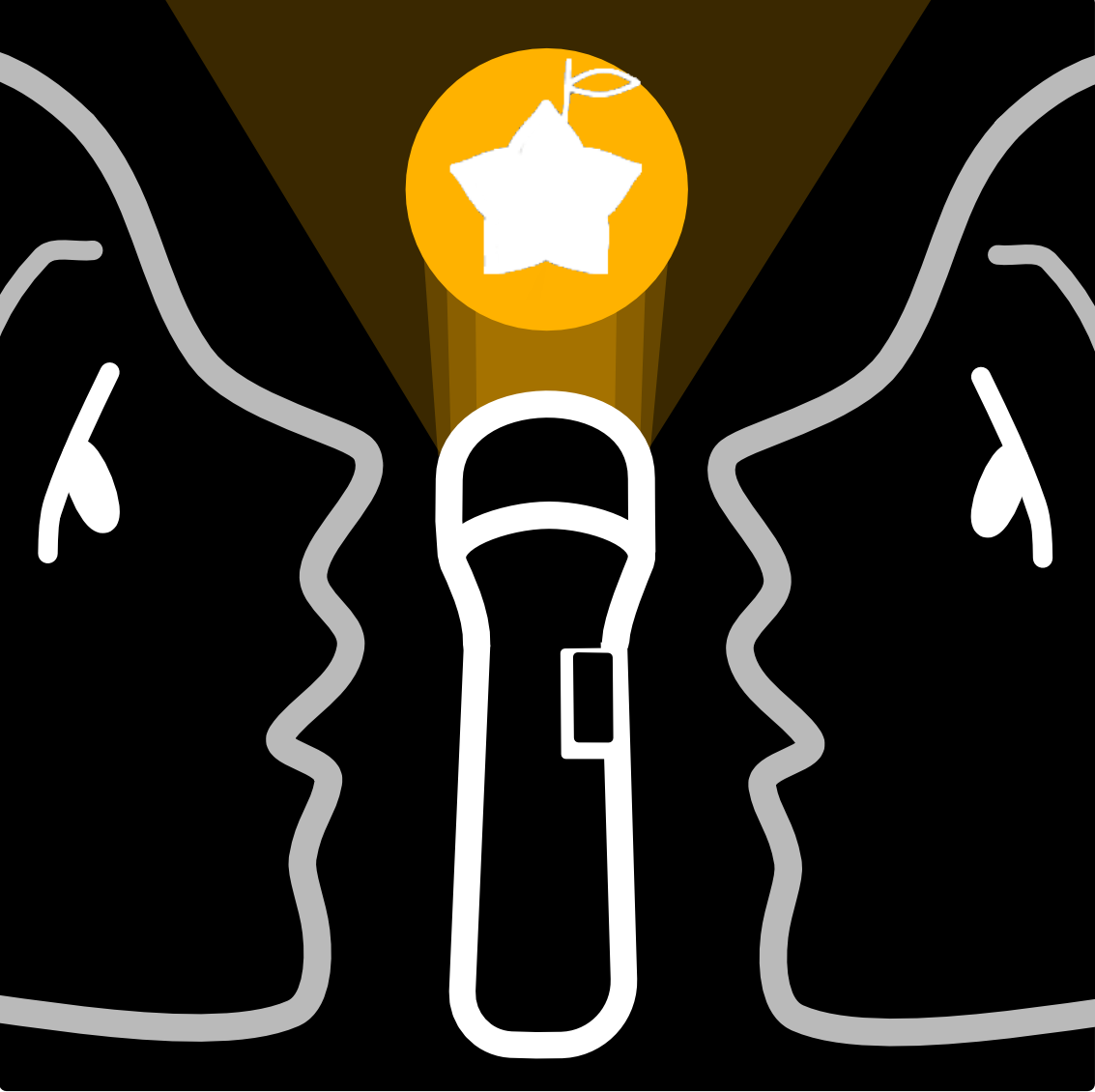
a person reinforcing you to grow
mental needs
and wisdom to improve your capability to improve yourself and the world.

request aid from an
ally
to reinforce your growth.
You can do this from most views in Instrumentally, during most stages of a session.

take turns with an
ally
to reinforce each other to take care of what
aspirations have been bugging
you lately.
Form
rationally compassionate
win-win norms to belong and grow strong together.
Create trust and grow secure by incrementally showing more vulnerability as you show each other your processes.
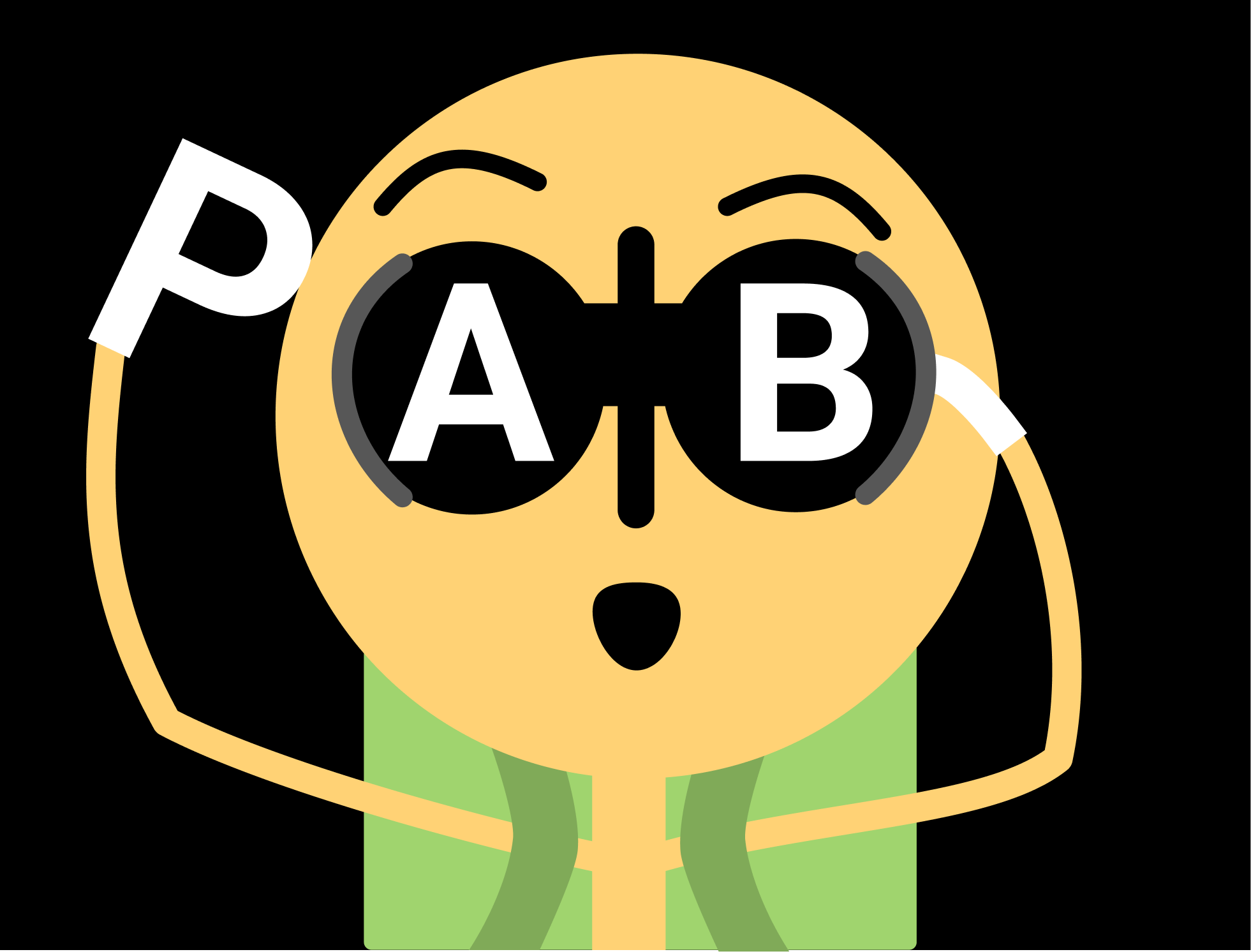
intermediate practitioners of applied rationality; allies aspiring to align their motivation to
deliberately practice
and
perform
the concepts and
methods of rationality
.

prompt yourself with mental models from experts. Optionally do this as you
view a replay of your process
, to give yourself valuable feedback information to improve your process with.
Perhaps even do this with the reinforcement of an
ally
to get extra attention to e.g.
notice patterns
for improvement opportunities.

share the pie
made from the fruits of your efforts to grow, and recognize the
progress
you've made with a
self-compassionate
scout mindset
.
Yumory
, the yum-seeking three-eyed raven with an excellent scout mindset, can remind you to look for rationally compassionate perspectives, in case you'd forget
.
Advanced

If
mental need resources
are like fruits for feeding, then virtues are like flowers to foster. Similarly to a plant with flowers, one maintains virtues, the work doesn't end. Virtues may not be the end goal, but they're part of a good process that can become a garden for increasing value of our end goal metrics.
In addition to the
12 virtues of rationality
there exists a life-time worth of virtues to practice and maintain described at
LessWrong
.
We try to prioritize virtues more wisely over time.
Your feedback is welcome, so we can improve:
Want more?
Support development
Reach out
Explore more below ⬇
Possibilities
Notice: These alternatives are subject to significant change (and thus not as polished/clear yet).
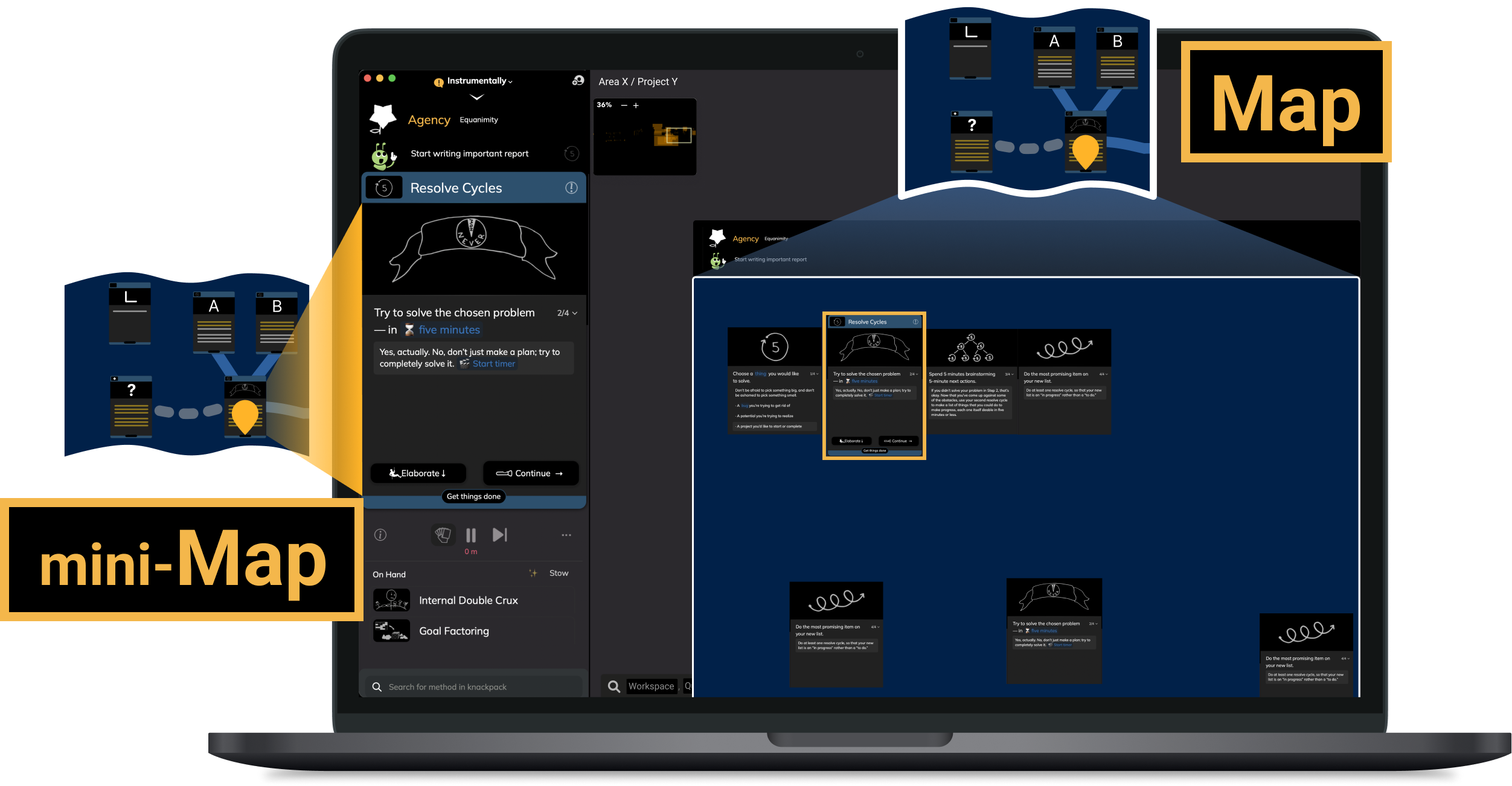
take a quick pause to your world modeling and world optimization to orient and strategize which method moves to make. Like how Apple Music on macOS has an utility mode
MiniPlayer
for when you're listening to music, but also a full-screen mode for when you're browsing what music to play next or editing your playlists.
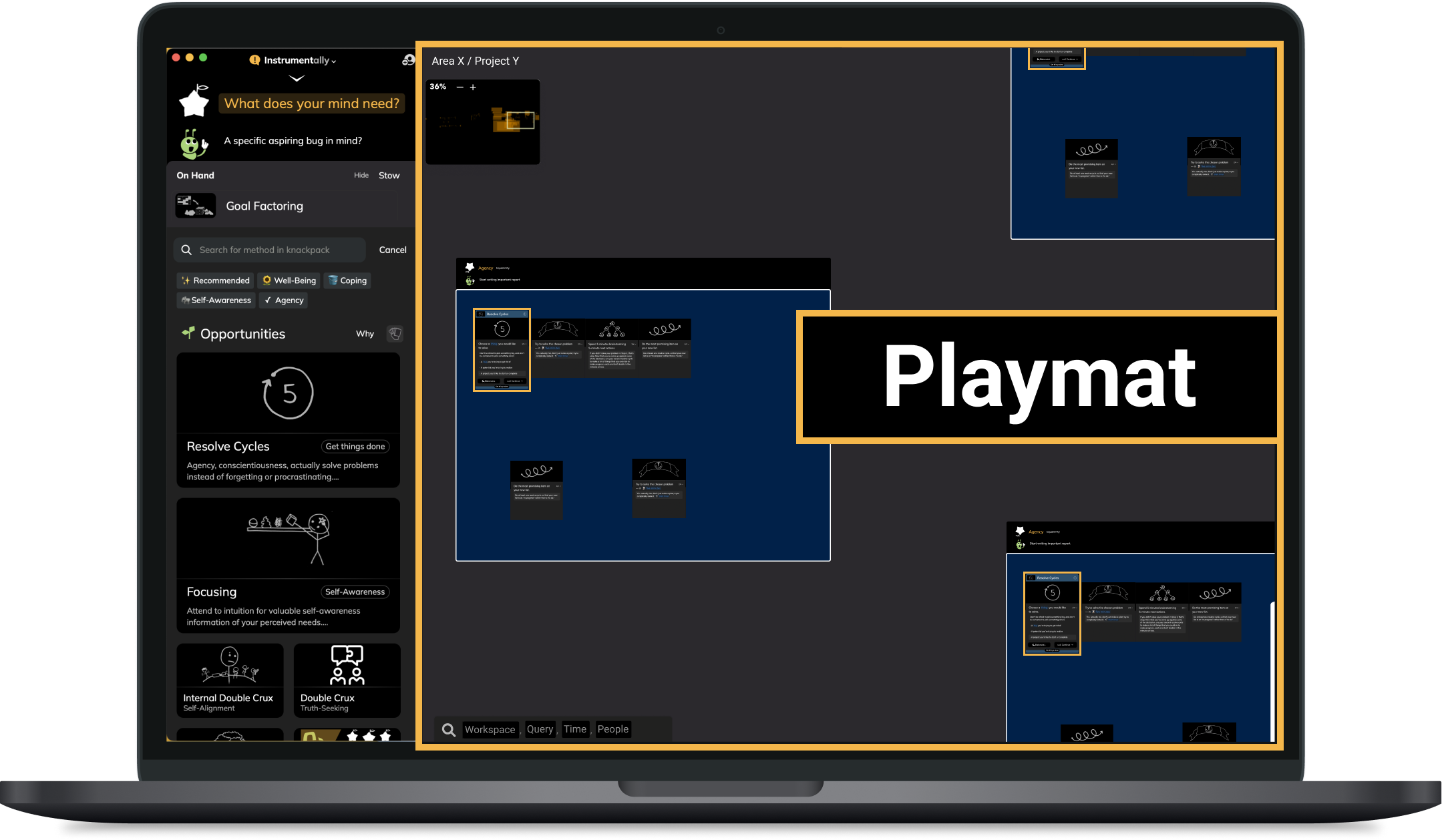
direct yourself by orienting between multiple
method maps
on a
canvas user interface
, to get a memorable spatial overview of your flexible (sometimes messy) process. The playmat's purpose isn't to be another monolith app that tries to do everything ok but nothing really great, neither to replace e.g. Muse, Notion, Roam, Miro, Mind Manager or Evernote. Rather its focus is on strategizing your next method moves, quickly add alternative approaches from your knackpack and to analyze and improve your process.
When the playmat is open Instrumentally is in its full-screen mode, seperate from the
sidebar mode
.
The gray color symbolizes the uncertain territory; enlighten
uncertainty
by playing with effective tools to grow yourself and the world.
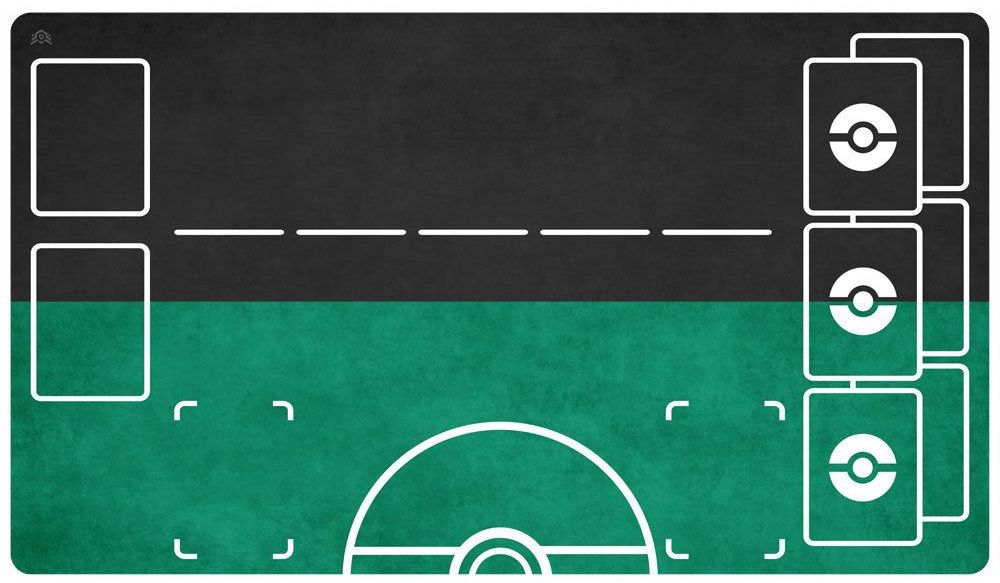
helpful visible affordances of the constraints of the initially intended "game" (
method
) you're currently playing, reminding you to think clearly about your psychological processes; your aspiring rational cognitive algorithms.

When more feasible we'd bring the concepts of Instrumentally into the medium of Bret Victor's and his collaborators'
Dynamic Land
.
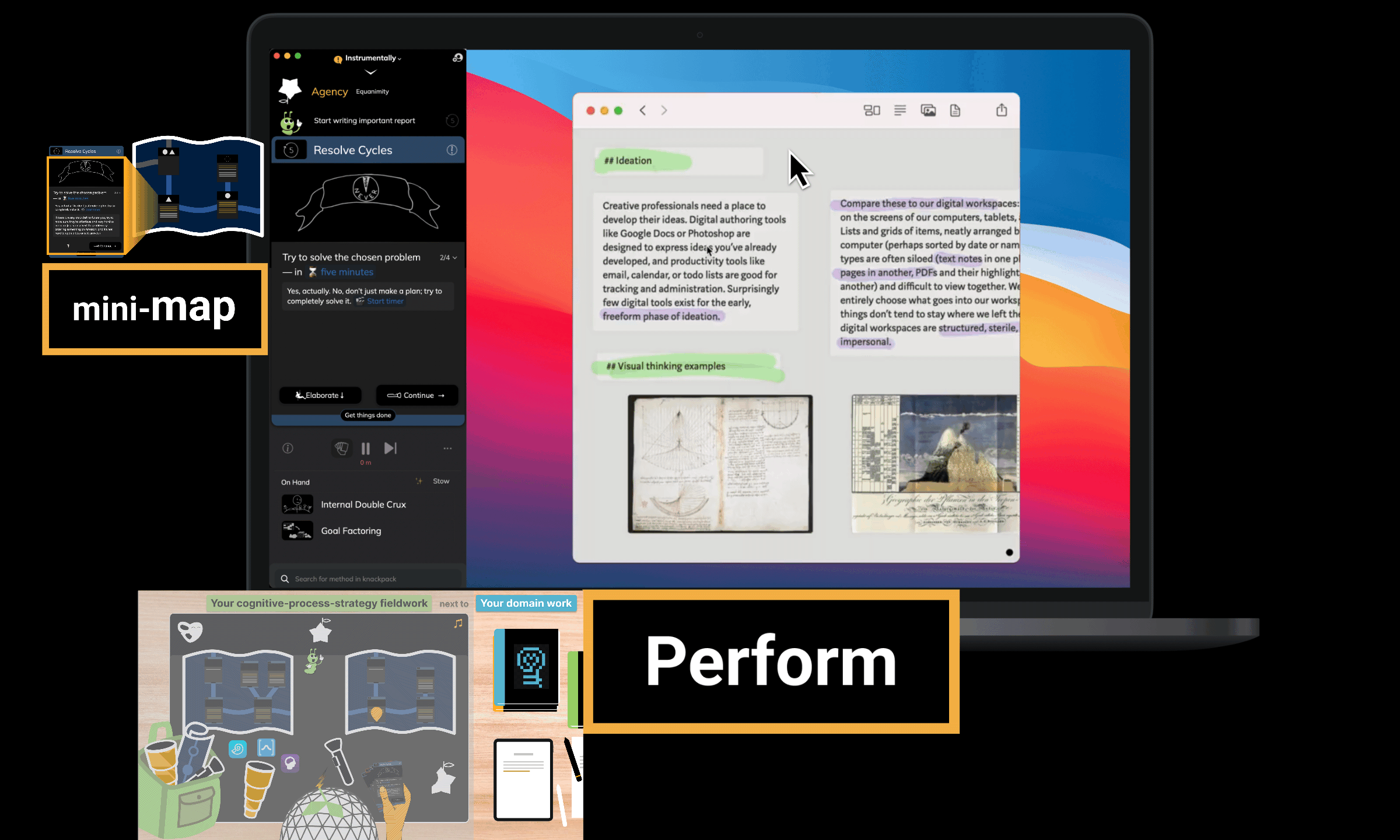
press a keyboard shortcut, or just hover over the progress indicator, to show the
method map overview playmat
.
Quickly going back and forth between
performing
in the
workspace
and analyzing your process in the
method map overview
empowers powerful flexible problem-solving and learning.
You can also have Instrumentally in overview-mode in full-screen on a separate display, or more often open on a very big screen.
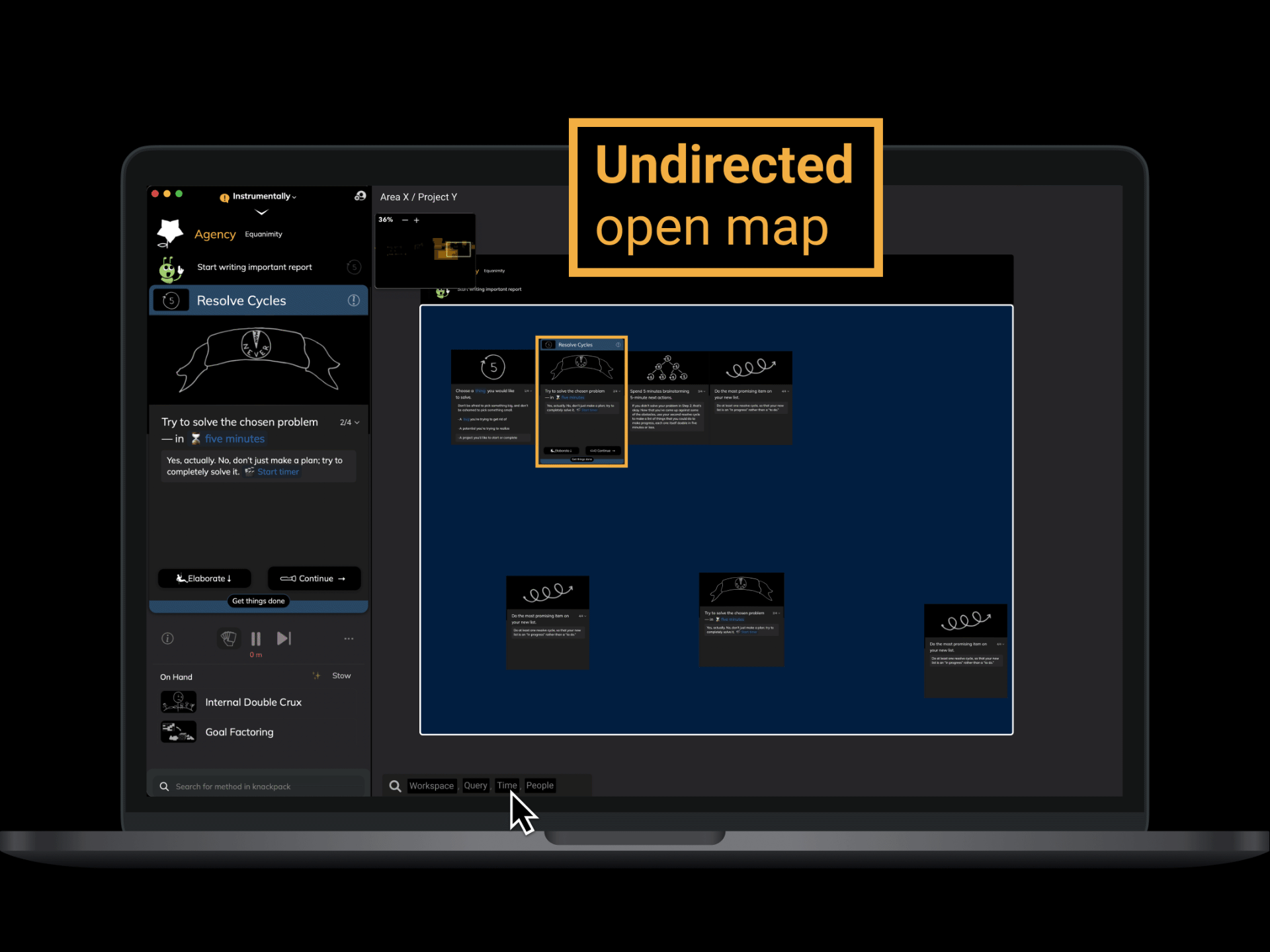
to fit your needs, alter representation of your data (e.g. based on time, spatial, filters/sortings, possibilities (forks), concepts/models, etc) flexibly (similar to the multiple views in e.g. a Notion or Airtable database, or like the mac app
Tinderbox
).
Quickly and easily shift between a more directed representation for focus and a more open representation for exploration and creativity; empowering you to adapt to more kinds of situations.
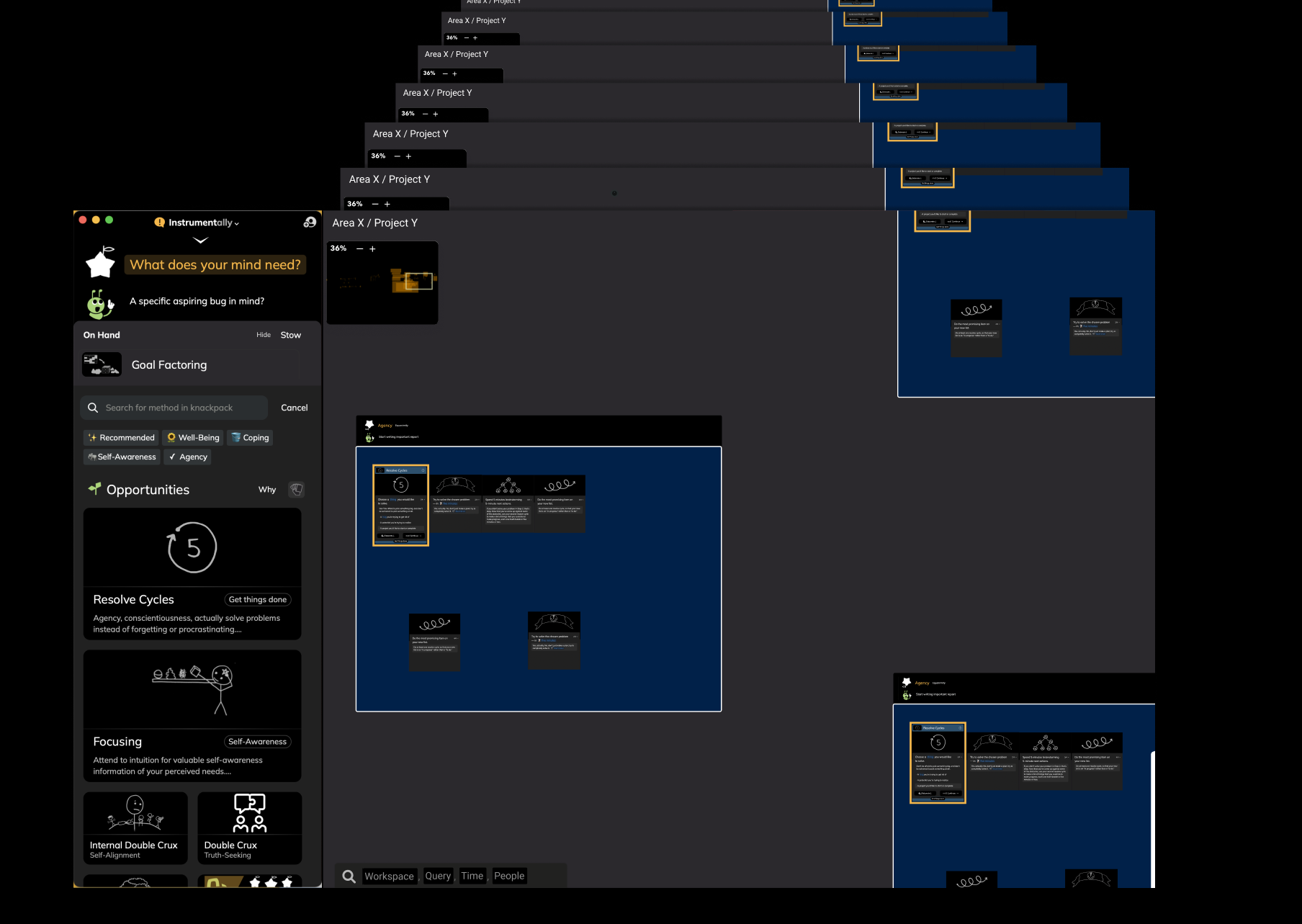
browse samples of your cognitive process through past
playmats
and the process you took in them.
Analyze them through the lens of
concepts-as-constraints
to inform improvements to your current and upcoming sessions and plans.
Navigate the journal and its playmats similarly to
Muse
,
Tinderbox
,
MarginNote
and Notion.
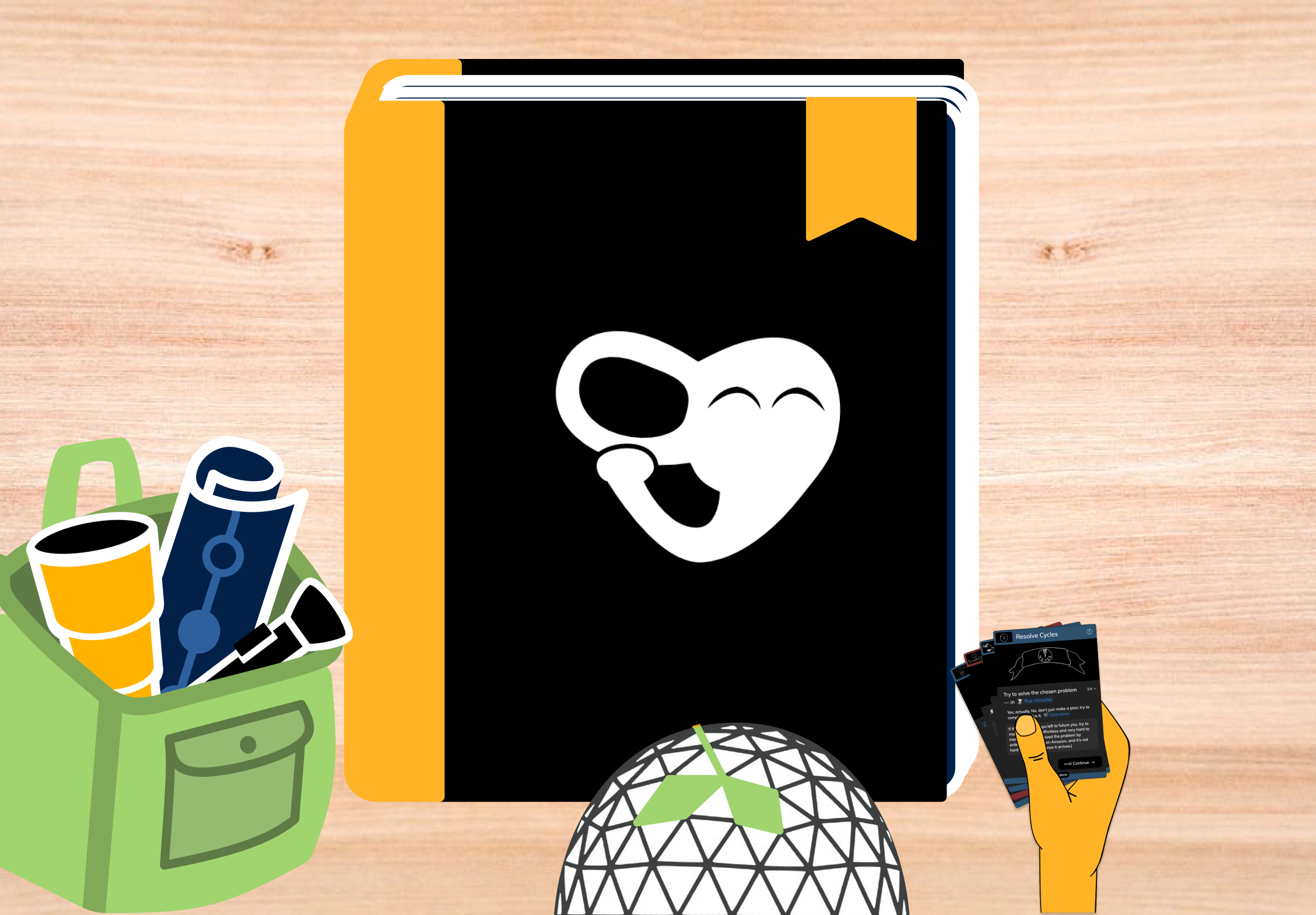
like
a journal, but composing with a tool-vocabulary of rationality informed methods and concepts, complementing your words

learning by writing
,
learning by modeling
,
insight-through-making
,
make to know
.
Model relevant subsets of your state of mind during life and work to cope with reality, to take care of what's bugging you and grow.
Getting thoughts out of your head leaves more capacity for your brain to evaluate clearly and thus potentially solve problems more effectively.
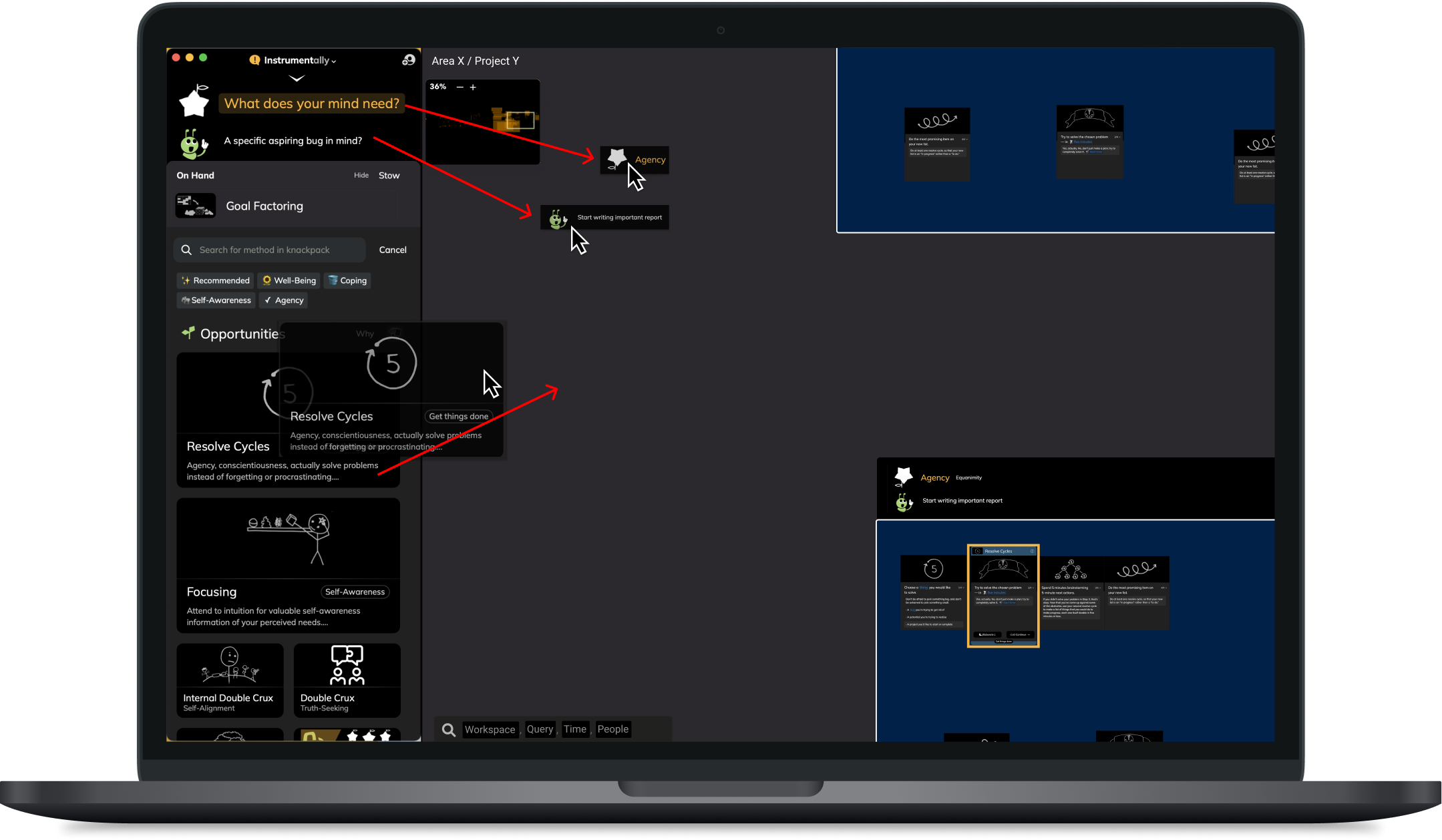
Add references of
methods
,
aspiring bugs
,
mental needs
and more to a spatial
playmat
where you plan and orient your process on the fly during work and life projects.
You're doing modeling but instead of making a program the computer runs, you compose with rationality-informed concepts and methods that you will perform. This is similar to a
programming notebook
like Jupyter, Mathematica or Observable, but live like how blocks work in Notion.
At first the modeling in the
sidebar
may seem simplistic compared to programming, but it is just a user interface to show which needs and bugs you're focusing on right now.
Kind of like a debugger in programming.
Another analogy is a mini-map in games, which most often is paired with a full-window-view of the map too.
If you click on a
bug
on the playmat that isn't your currently active bug, the
sidebar
switches to it and your
hand of hunches
changes accordingly.
Composing is powerful and flexible, and give users agency to solve their own problem at their own pace as they gradually extend their understanding as they're learning by modeling.
Read more
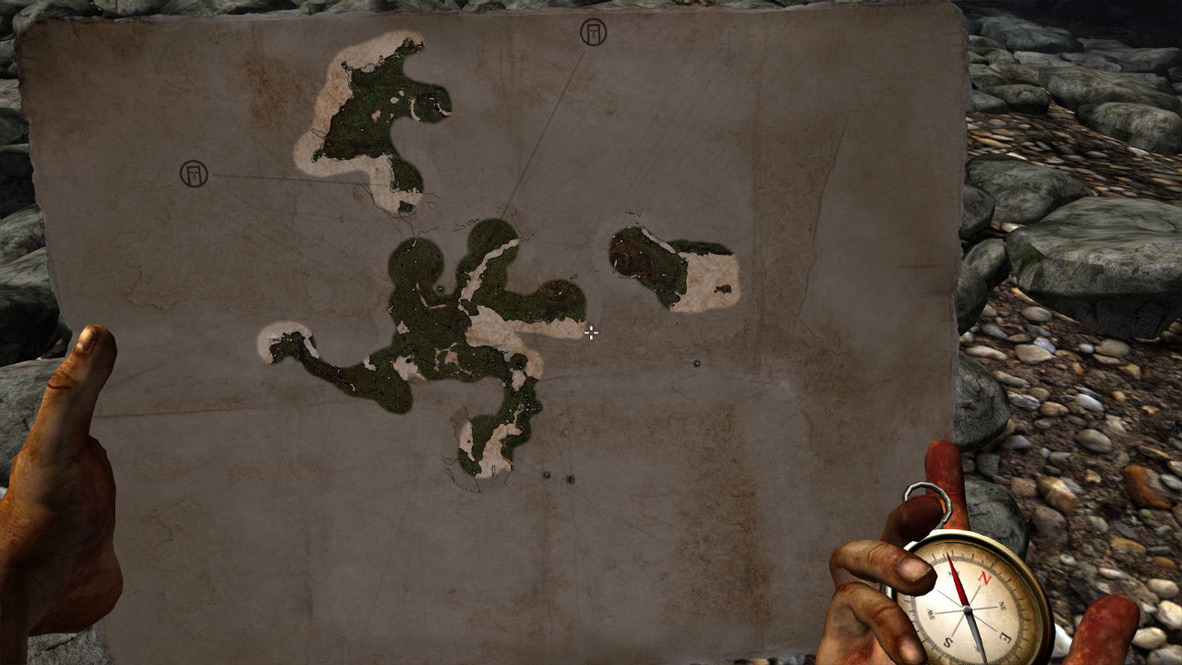
make to know
/
learning by modeling
skillful processes, to problem solve more effectively in knowledge-world-territories new to you.
Choose your own adventure
.
Similar to CFAR's advice to eat the instructions (try things and adjust you seat), both explore tracks and go off the beaten track.
E.g.
Notion
and
Dynamic Land
aspires for a similar approach involving user agency and autonomy.
Static worksheets on paper or PDFs are too inflexible, we need to be able to compose our worksheets and alter the relevant parameters based on our needs in the moment using dynamic media.
Image Source from the game Miasmata.
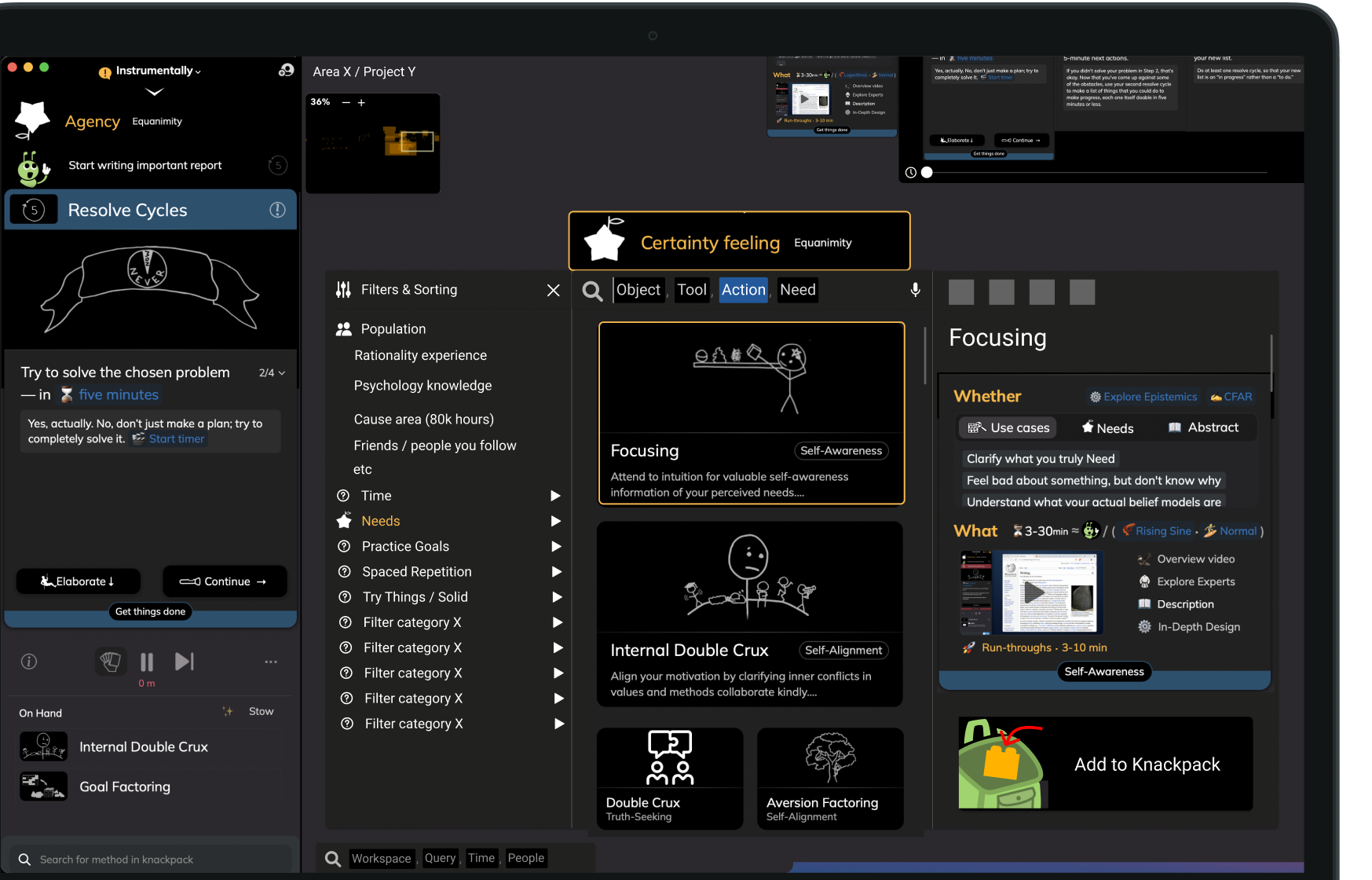
(Early access placeholder image).
Create new method maps, fork existing ones, import legacy methods into Instrumentally's method map format, add links to external methods and instruments (instruments can embody good methods in their design).
Flexibility is important, however, sometimes we can get stuck trying to improve a system without actually using it to gain more information (
insight-through-making
). Hence you can set your own goals for how much time you're allowed to
update your sweet setup vs actually practicing
with what you already got (which might actually be good enough).
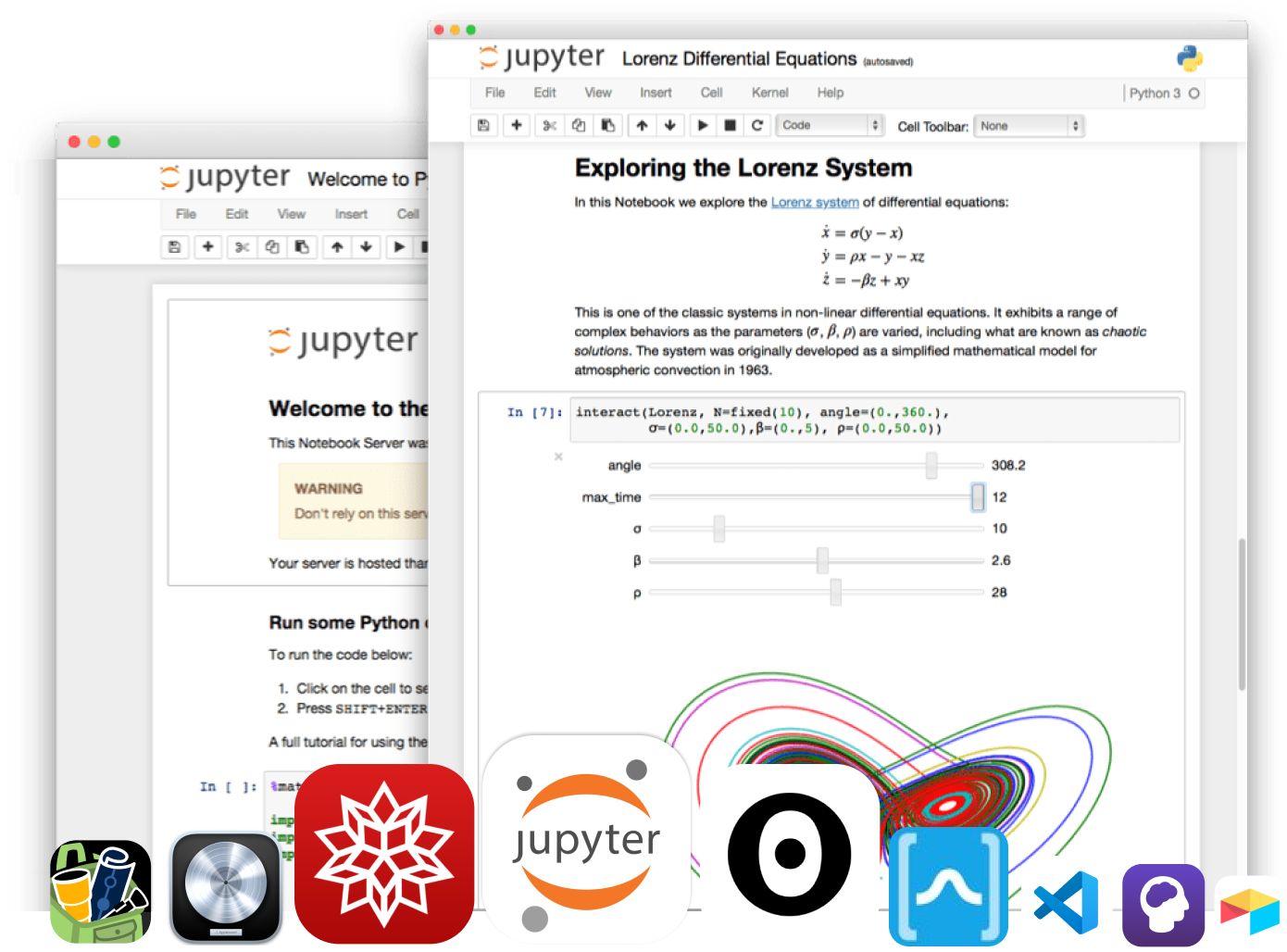
like
a programming notebook, but for composing and applying methods and concepts of applied rationality on the fly

The vision is less like a canned form (e.g.
Google Forms
,
Guided Track
) and more akin to a
programming notebook
(
Jupyter
,
Observable
,
Mathematica
,
etc
).
To learn by modeling, the user take on a process to compose on the fly; flexibly alternate between (1) using community recommended parts (
rationality methods
and concepts-as-constraints) to compose problem-solving procedures on the go, updating on info from (2)
practice
and
perform
rationality methods in-context of prefered
tools for thought
(
instruments for improving
).
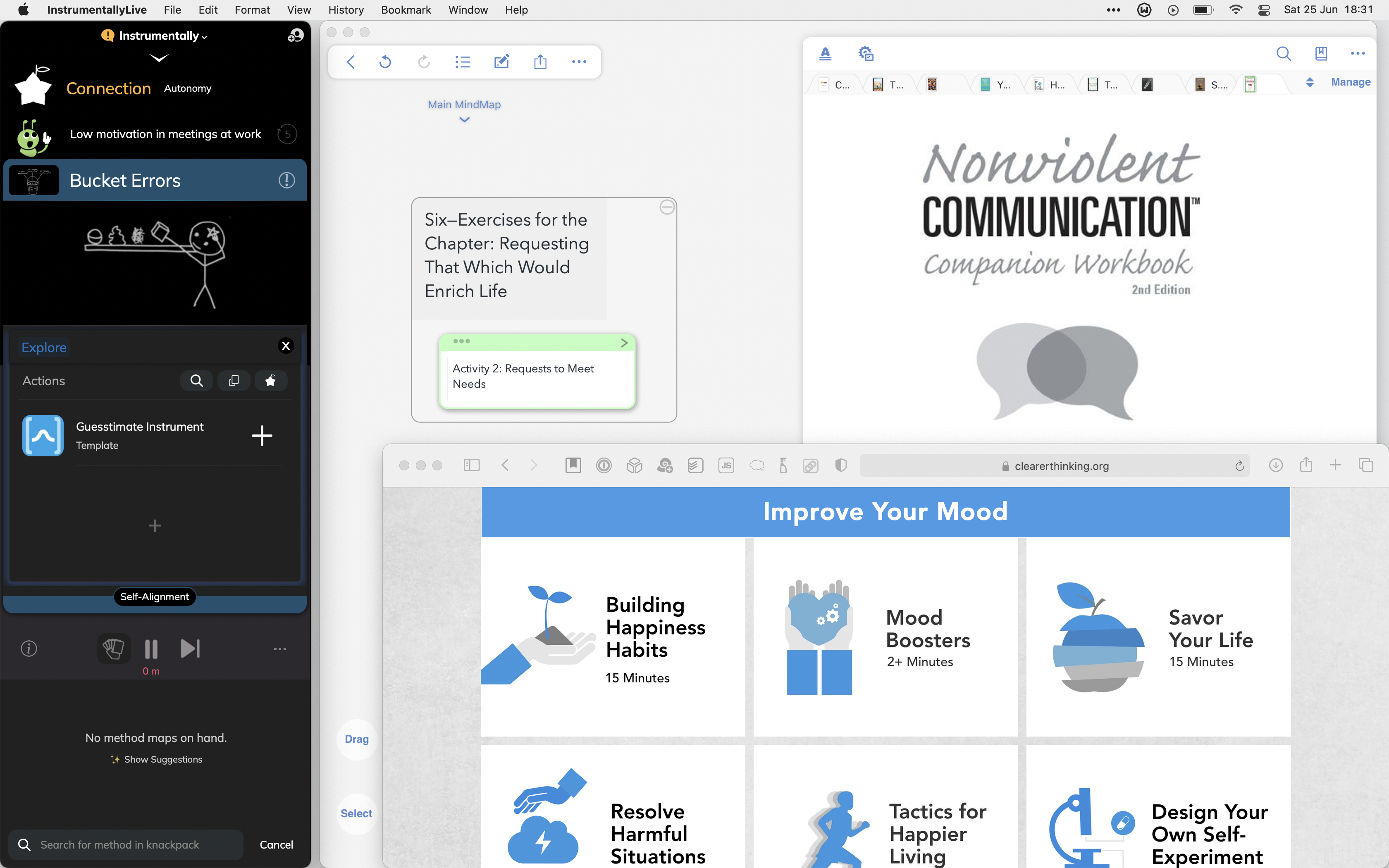
Currently, exercises and methods in books and websites are hidden from our views which makes it hard to reliably use them even if we've read about them at some point.
Out of sight, out of mind.
Systematize your usage by adding links to those external methods into Instrumentally from your favourite reference managers, e.g. LiquidNote, DevonThink, MarginNote, Muse, Zotero, Endnote, etc, to then be able to quickly search your knackpack and quickly add instances of exercises/methods to compose your own workbook/worksheets on the fly.
Like your own music collection, but for collecting and playing methods and conceptual tools.
Templates in monolith apps only let you launch templates that work in that format. But the instrument industry is changing fast, so a more general method launcher not dependent on a specific instrument is potentially more reliable in the long-term.
instrument industry
is changing fast, so a more general method launcher not dependent on a specific instrument is potentially more reliable in the long-term.
The vision is to make interactive tool components with which you can have agency to make instruments that embody good methods, but are still flexible enough to not constrain you to a narrow methodology.
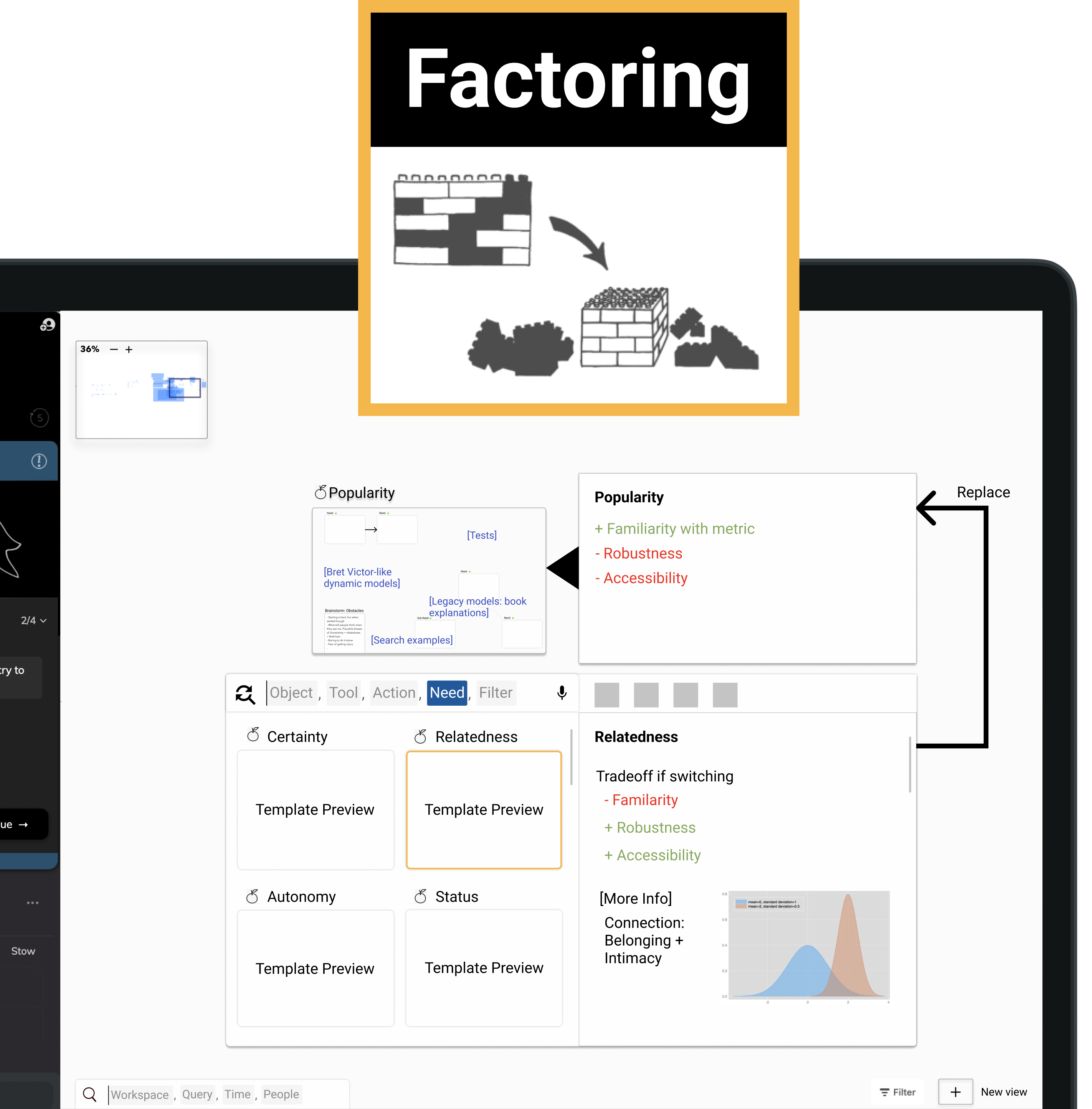
Interactive
components tailored to embody useful rationality concepts and methods like
CFAR's
goal factoring, internal double crux, resolve cycles, and so on. You add these like blocks in Notion and can use them with your data right away ("always running", compared to the "code then run"-loop in programming notebooks like Jupyter, Mathematica or Observable). To fit your specific needs, you could adjust the components parameters and save new presets.
Combine these tools with other powerful tools on your computer whenever they do a specific task better. As aspiring
good citizen software
Instrumentally doesn't want to lock you into Instrumentally itself, but to help you be as effective as possible with your full toolkit.
E.g. like
Obsidian
, these components could be modular and open for the community to add to.
Take inspirations from aspects of professional apps like e.g.
Ableton
. There are also increasingly more examples from the Future of Coding community:
Crosscut
,
Sketch&Sketch
,
Apparatus
,
Background Survey by Chaim Gingold
,
Explorable Explanation tools
.
Read more about
modular instrument parts
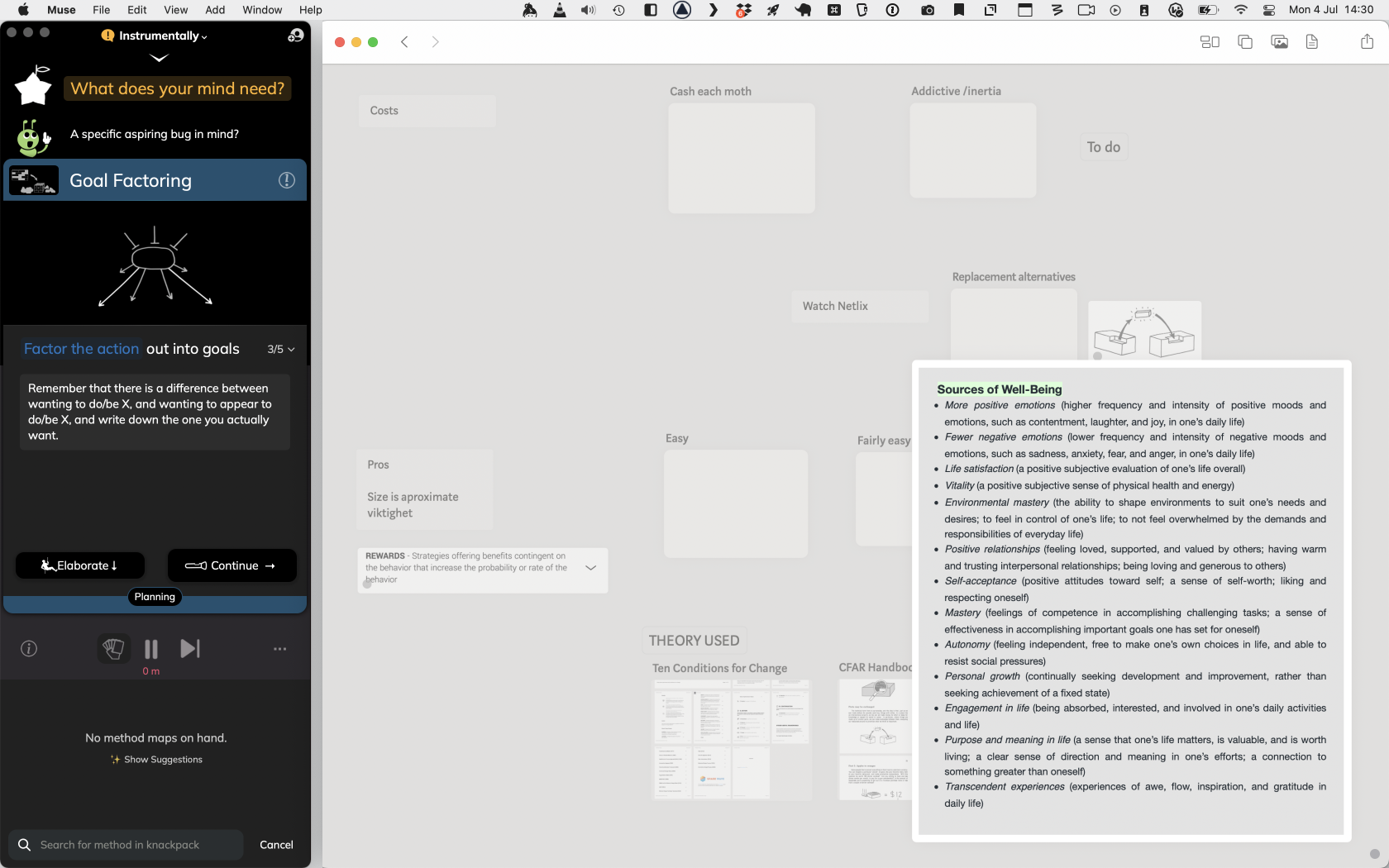
Excerpt references of conceptual tools (epistemics: theory & data & reasoning) from robust knowledge resources in different forms, e.g. PDFs, jupyter notebooks, forecasts, etc.
Pick from a palette of concepts you've collected, launch and use them as constraints as you're redesigning models/systems in your problem-solving to take care of what is
bugging
you.
Add links to good sources of domain relevant
concept
models with reference apps like MarginNote, DevonThink, Papers, Endnote, Mendeley, Zotero, etc.
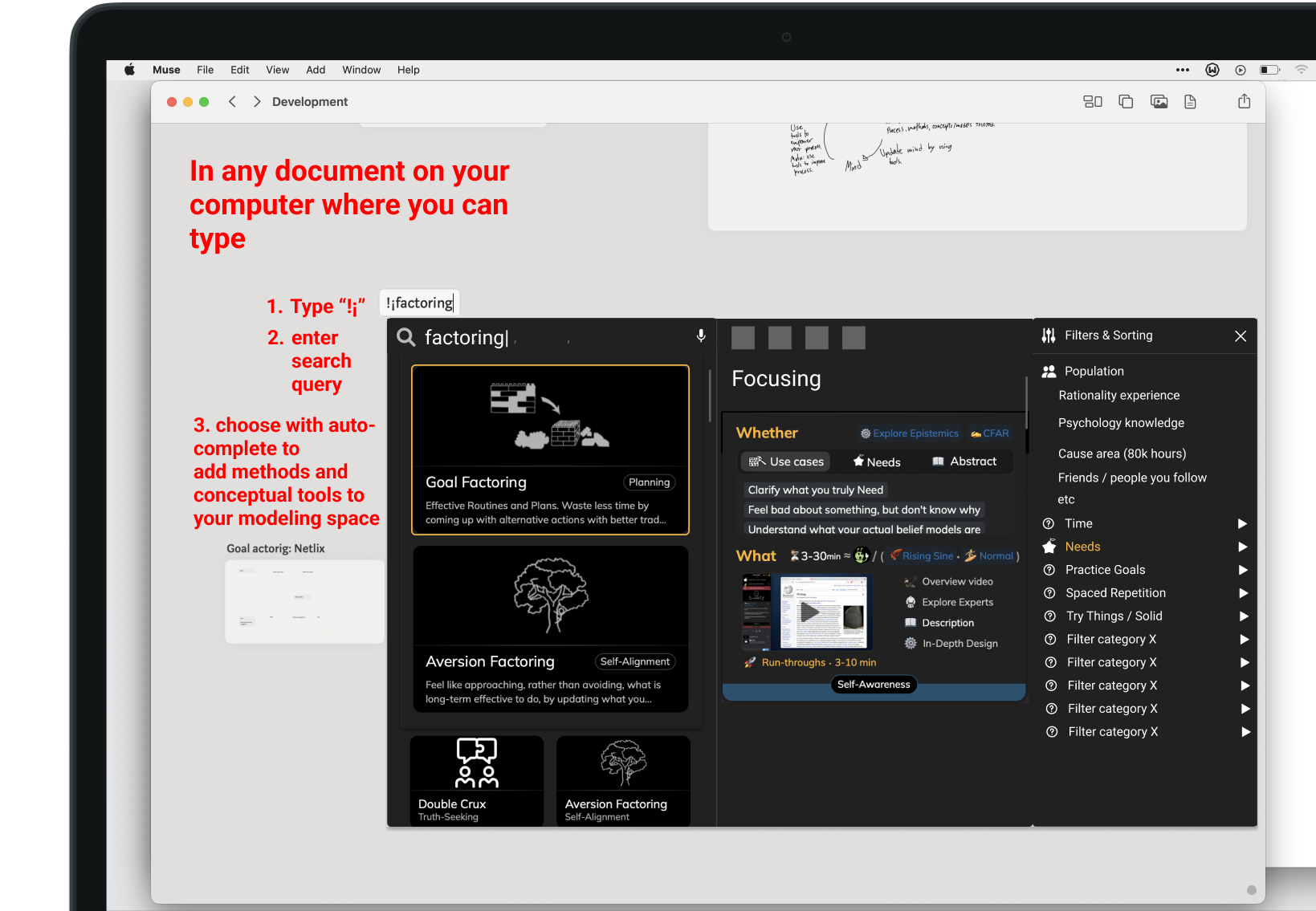
an Instrumentally utility that lets you quickly launch a method from text-input in-context of an instrument document (similar to launching emojis with
Rocket
). Could support most instruments you can create text with links in.
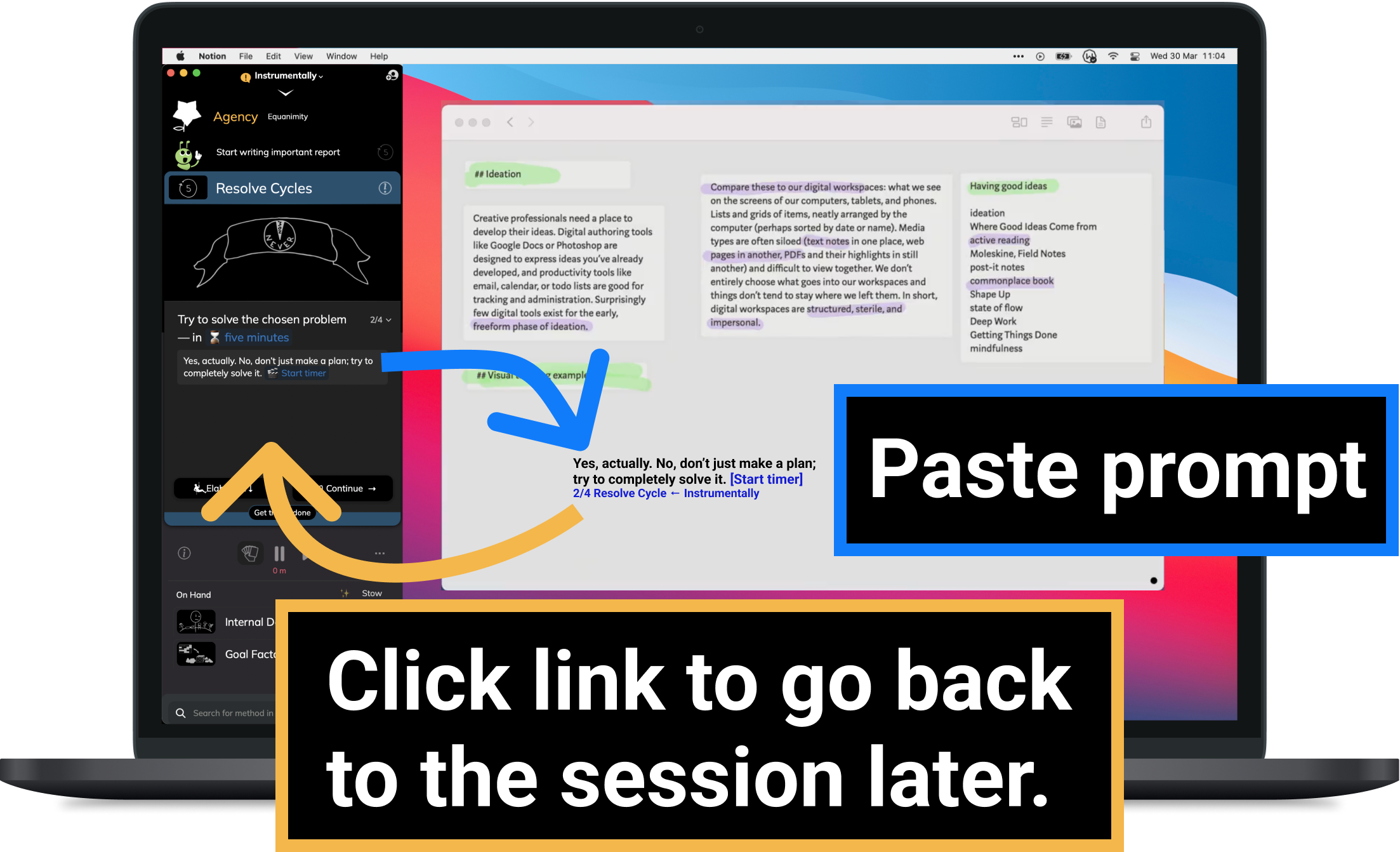
use
tools for thought
linked together. Linked documents are collected in Instrumentally so you can retrace the steps of your process later.
Use apps like Hook for macOS to make the links dual-way (aka. bi-directional).
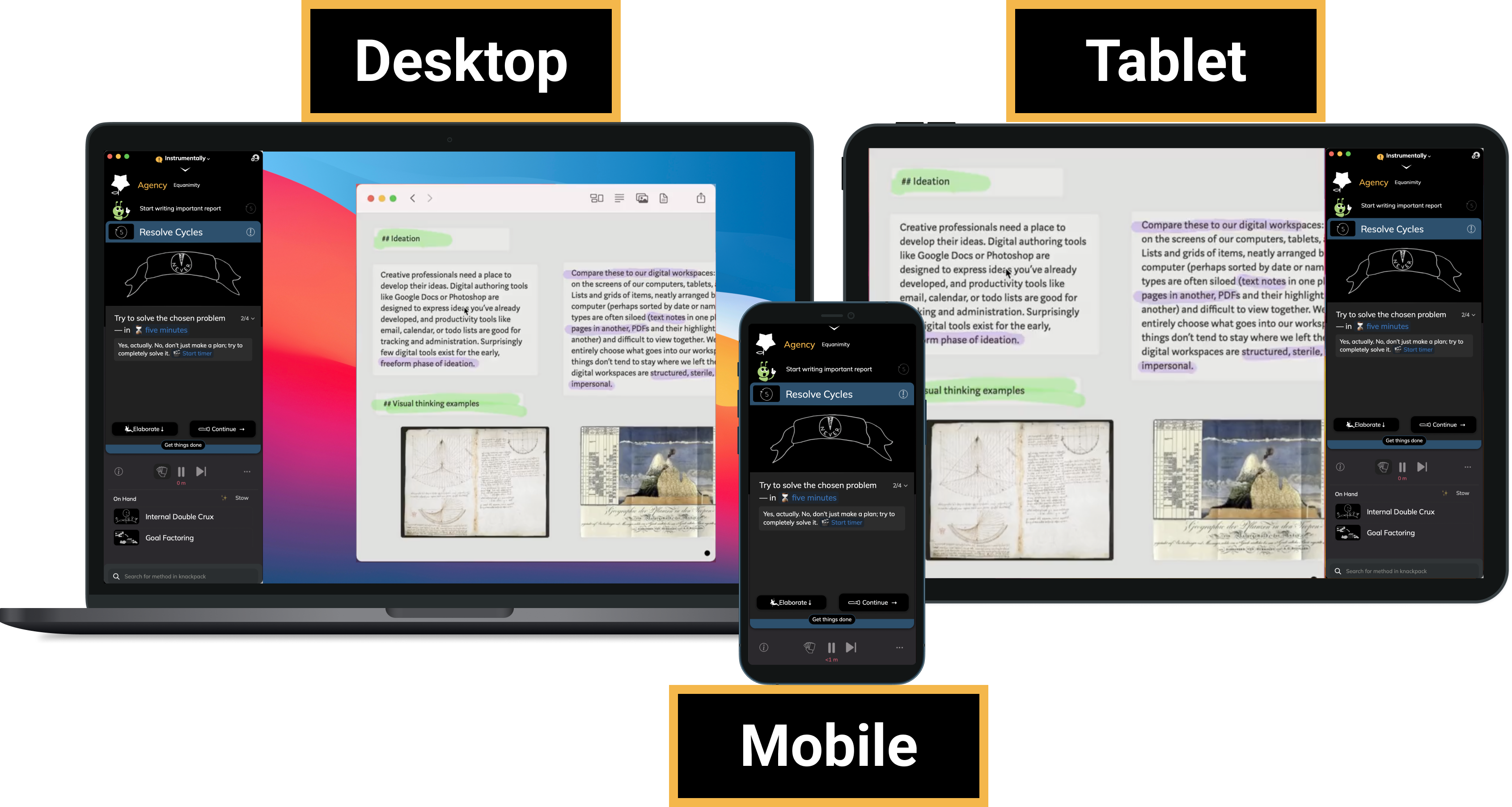
Although we'd eventually like to design Instrumentally to be different on each platform, to use their strengths, rather than just copying the same user interface to all platforms.
These are the feasible current platforms, but eventually the principles behind Instrumentally might work in
Dynamic Land
, VR and/or AR.
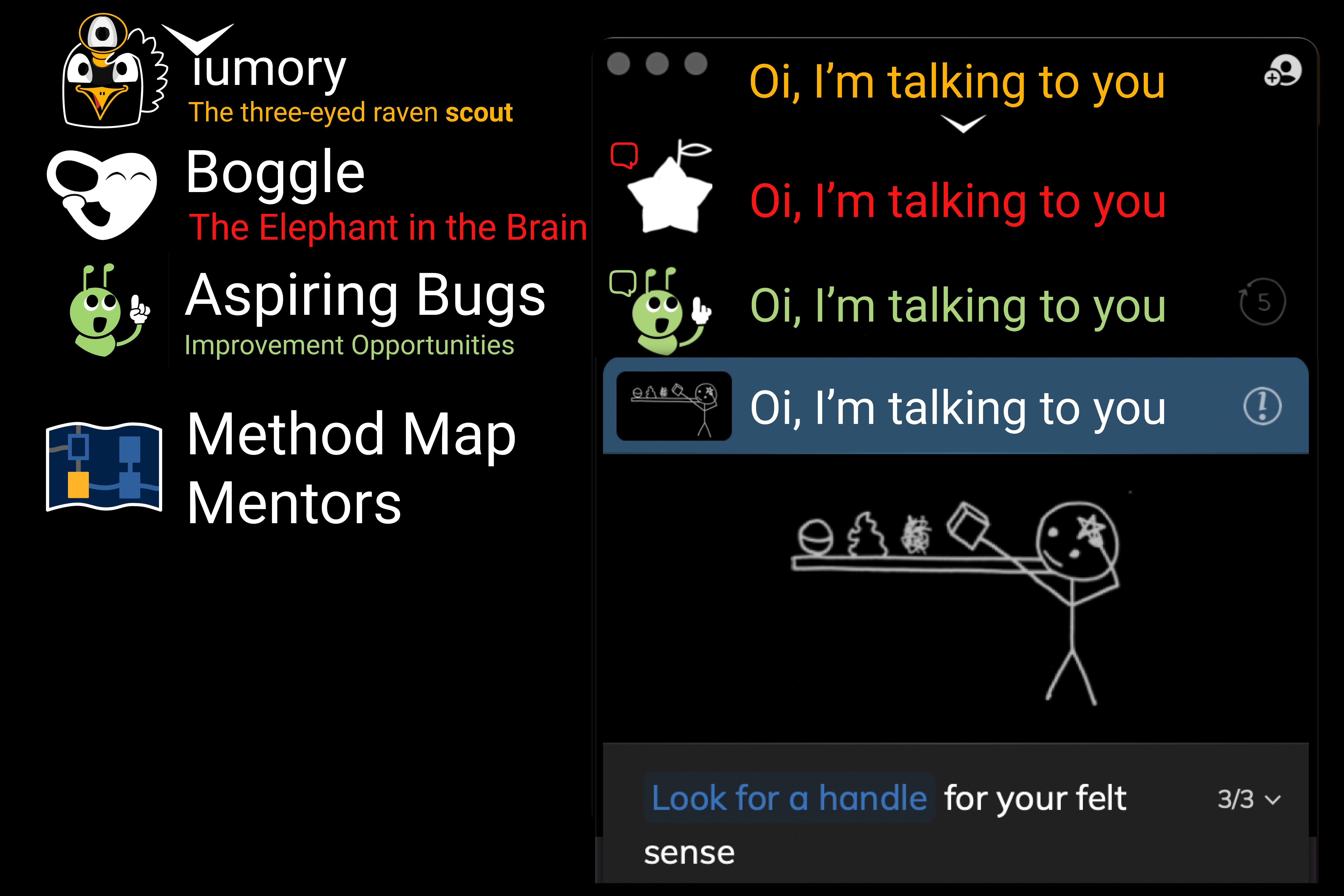
inspired by the excellent game
Inscryption
, and proof (from the many successes of games) that stories and characters, not just aesthetics and systems, can catch and hold people's attention through valuable but difficult learning.
Mental needs, bugs and methods can feel serious and scary at first, so associating them with compassionate characters might contribute to rewiring people's expectations and increase their self-efficacy.
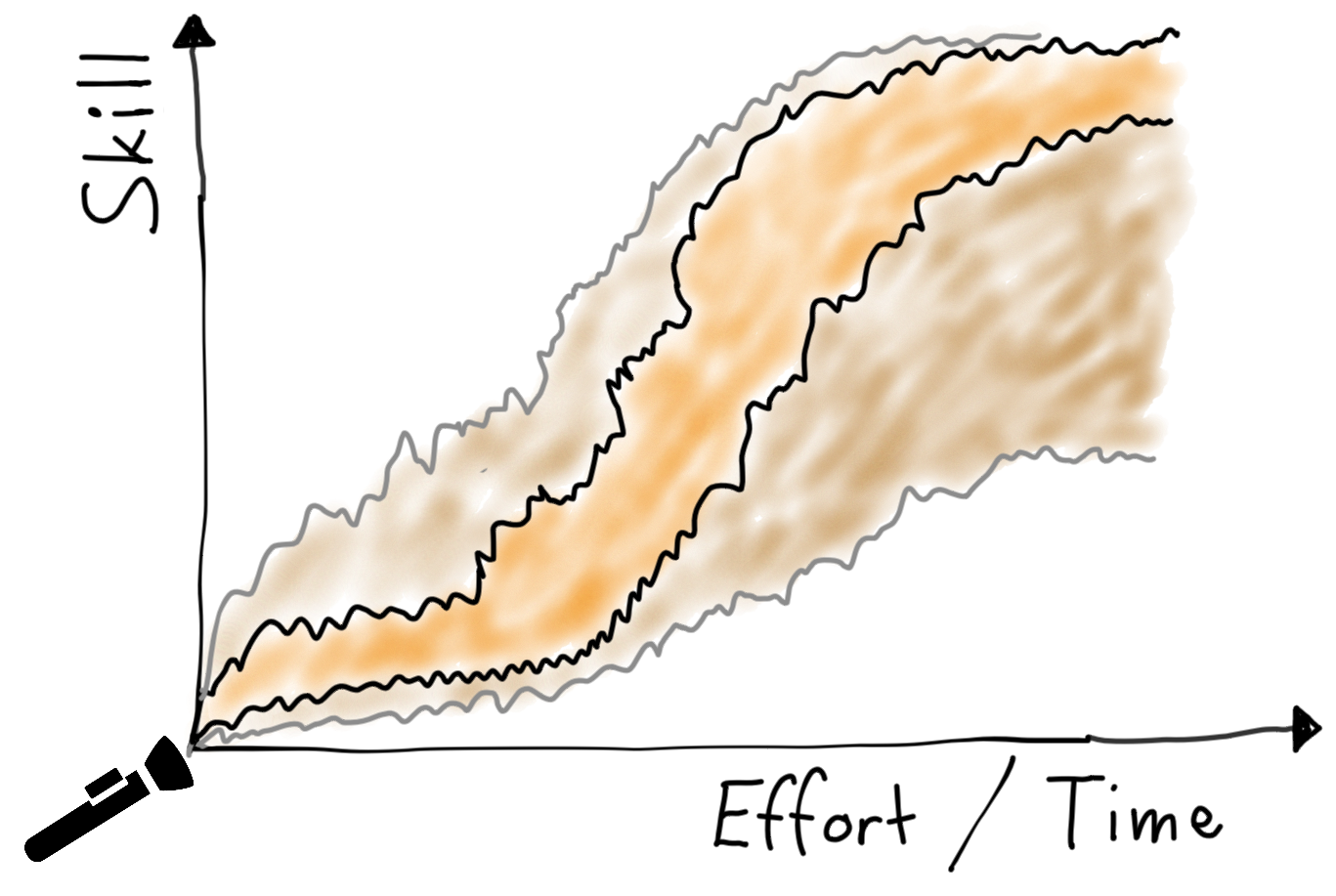
Adjust method map intensity and deliberation depth recommendations based on your stats and self-directed goals.
To grow in a sustainable way is more effective in the long-run (it is a marathon, not a sprint!).
Reprioritization routines

import from a collection of community recommended modules (
methods
,
concepts
,
instruments
,
mental need metrics
,
aspirations
and more). Filter search quickly based on what the selected object type fits with, e.g. like auto-complete suggestions in programming environments. Customize to your needs instead of conforming to a limiting one-fits-all solution. Optionally set limits on how often you can update, to better build balance of your
practice-vs-exploration ratio
.
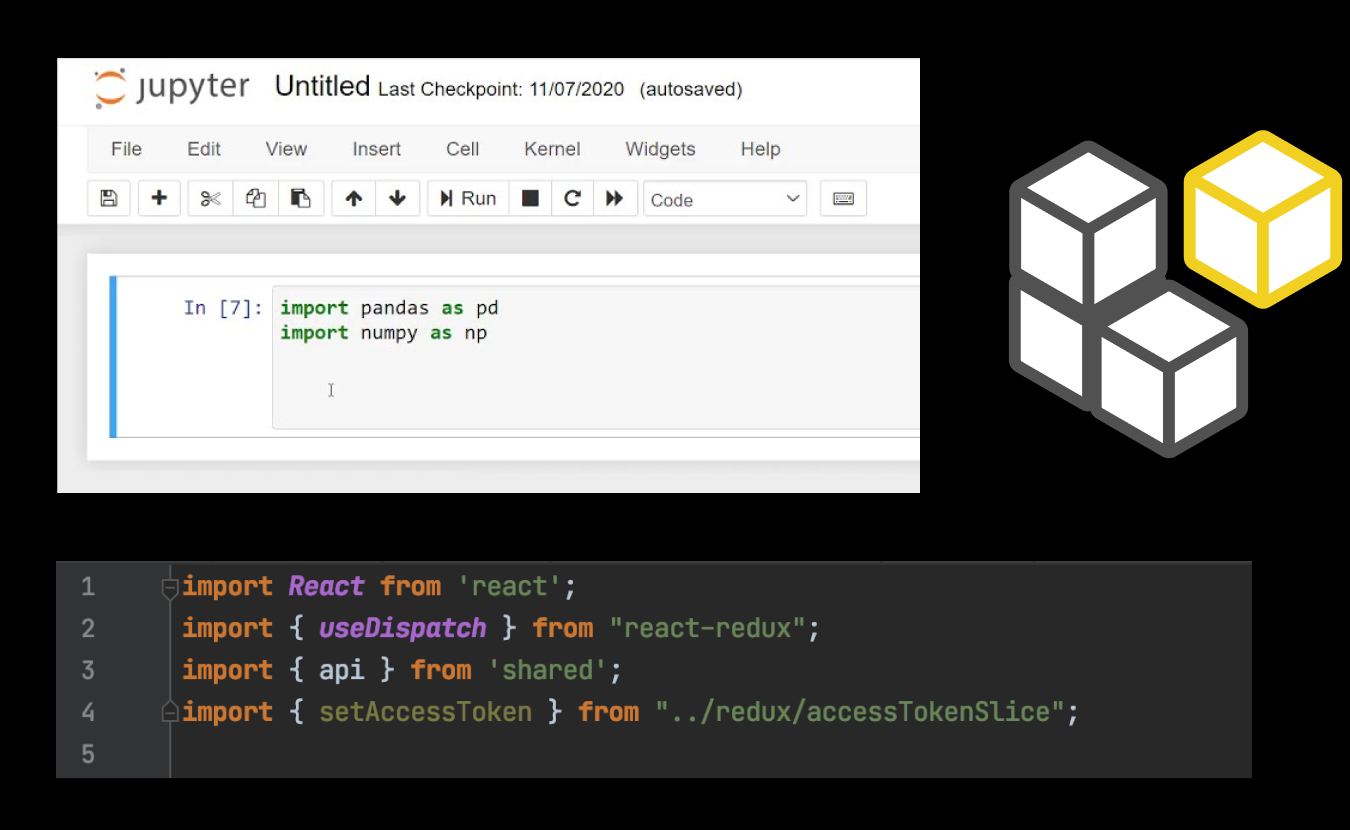
package managers
let you import tools to create your program (model) with.
If you're not careful this can increase complexity a lot, but if you use good libraries which toolkits are well-designed, it can greatly speed up and improve your modeling.
Instead of only relying on recalling models from books you've read, add them with a quick search and see them by browsing them. Let your short-term memory have more space to think instead of keeping things in mind.
Every model doesn't need to be remade in this format, you can mix with legacy formats like books too, e.g. with apps like Muse, Marginnote or DevonThink.

(Early access placeholder image).
Replace or update modules to gain more value, while using a similar or lower amount of complexity. Master the basics so they're reliable, be
careful not to get stuck in endlessly only exploring
new alternatives that are not tested by fire for reliability yet.
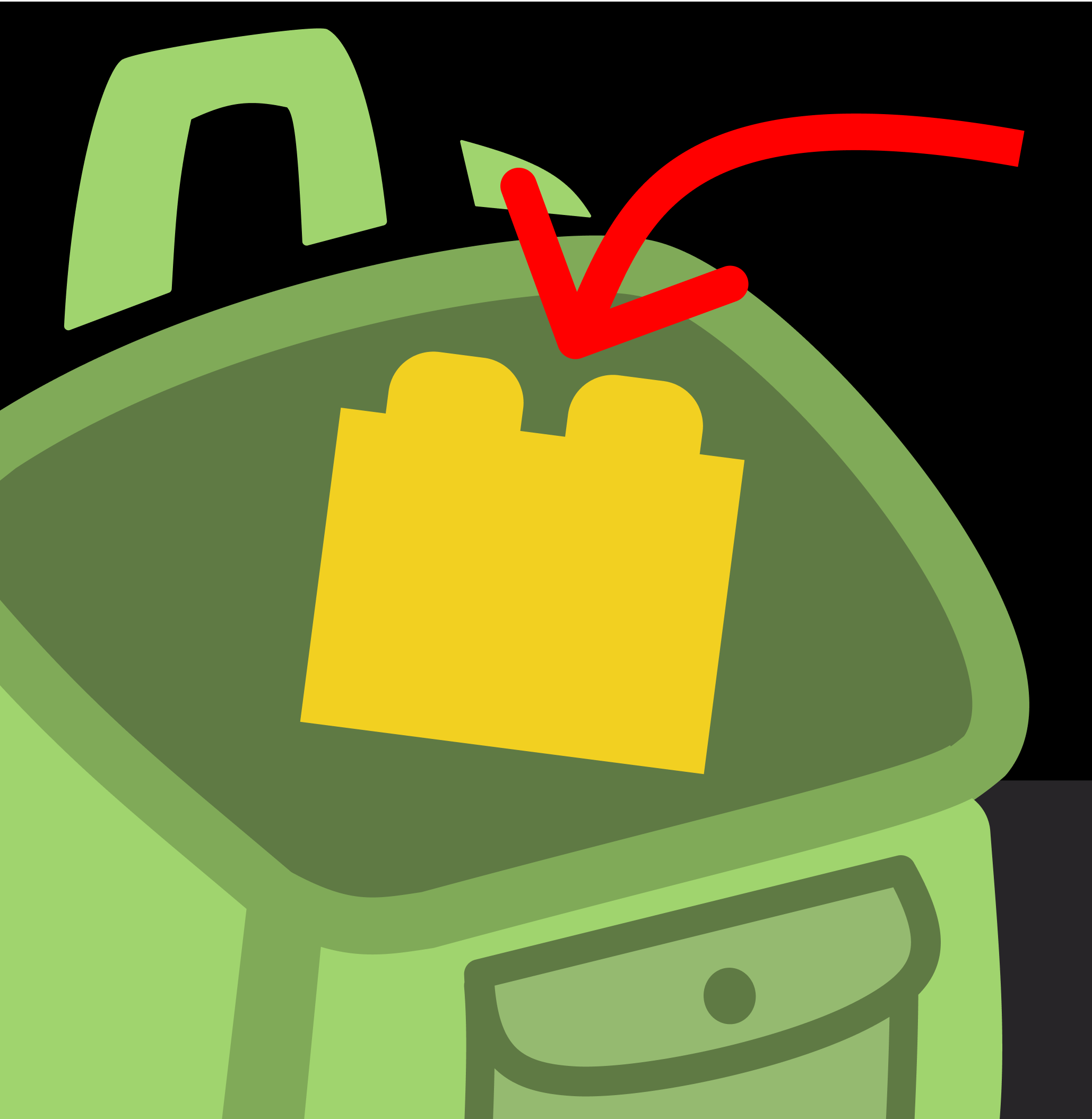
repack your
knackpack
with rationality modules (
methods
,
concepts
,
instruments
,
mental need metrics
, etc) recommended by the community, or your own tailored modules.
This process is also in some ways similar to choosing what to put on your tech stack for a software project, and like drafting or deck-building in a card game.

The knackpack has limited space for complexity to help your mind learn and use the knack more reliably. This makes the packing routine you use to prioritize what to pack important. If repacking is too effortful, one's likely to not do it very often.
Instrumentally could act as an assistant, providing tools for scheduling/prioritizing practice for you well enough that you can put more of your effort into practicing rather than maintaining what to put in your
knackpack
. With aspirations to become a member of the
mnemonic medium
, using spaced repetition to help you more reliably implement concepts and methods into your routines at smart intervals with just a little bite-sized incremental planning involved.
The vision is to include AI that learns what tools you usually use and show them closer at hand so you don't have to search for as long.
AI could also aggregate the community's usage and recommend you better alternative methods, concepts, metrics and more.
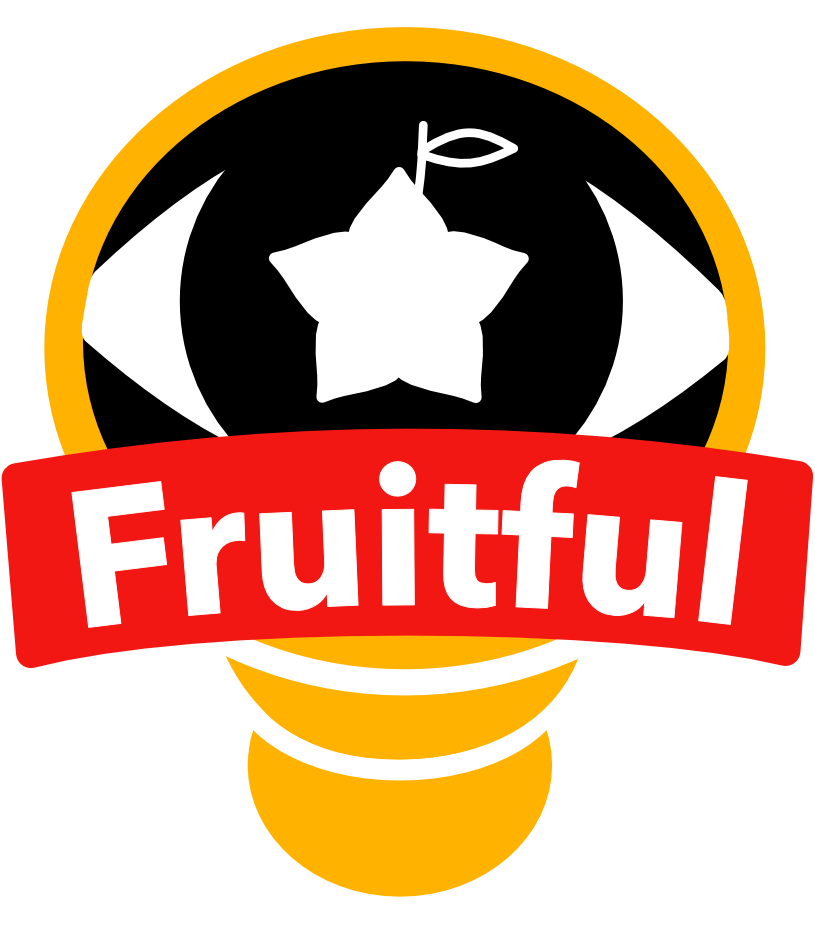
(Early access placeholder image).
Simplicity may be a
virtue of rationality
, but we shouldn't simplify too much.
Making tools intuitive enough to make more accurate models more quick and easy to create, could improve our understanding, self-insight accuracy and prioritization/decision making.
One direction is to embed something like
Squiggle
into the mental needs metrics modeling system of Instrumentally.
Other prototypes
as inspiration for design principles for what these direct manipulation tools could look like for modeling rationality relevant models.
Cooperation
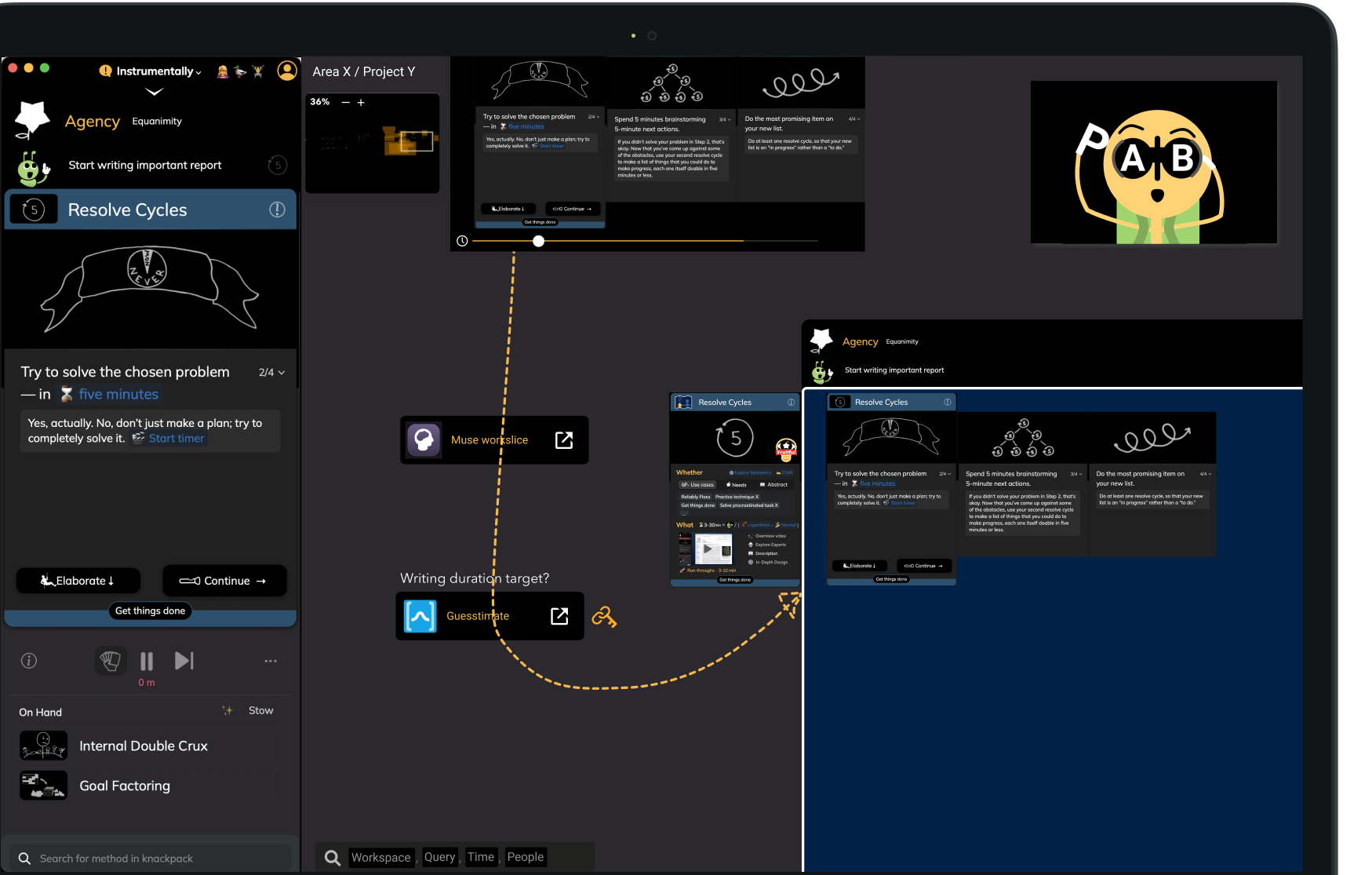
collaborate on methods and let reinforcing
allies
help you orient by suggesting potentially fruitful paths to attempt in your problem-solving. Screensharing is probably good enough for now, but potentially also collaboration within Instrumentally through
local-first sync
between users.
Rationality methods are not only for helping yourself but to collaborate better on projects in organizations too.
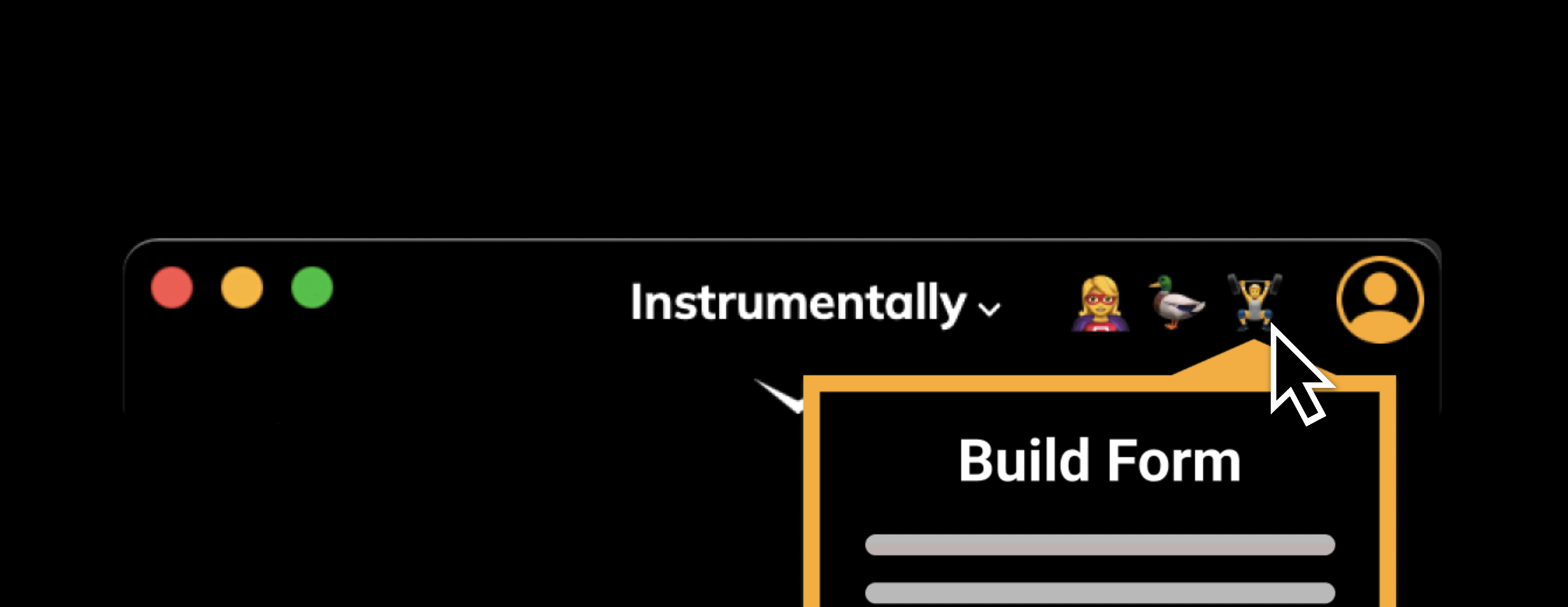
Shows symbols (you can hover over with you mouse if you've tried but can't recall the definition) representing norms that you and your ally aspire to focus on forming.
This is to clarify norms to get better feedback as you're practicing. Eat the instructions though, feel free to modify and improve norm models and metrics.
By making norms concrete through user interface, people may more likely remember to practice improving them.
The point isn't to enforce norms, but to use a scout mindset to explore and manage them more effectively.
It's not enough to be effective, we also want to be
rationally compassionate
and
self-compassionate
to create win-wins for a diverse set of people with different preferences to sustainably grow in the long-term.
Whatever values/preferences we have, most of us could benefit ourselves and others by trying to orient to our compass pointing toward acting more
Instrumentally rational
, which is why it fits that the menu says Instrumentally and is up in the sky/space in the metaphor of the app.
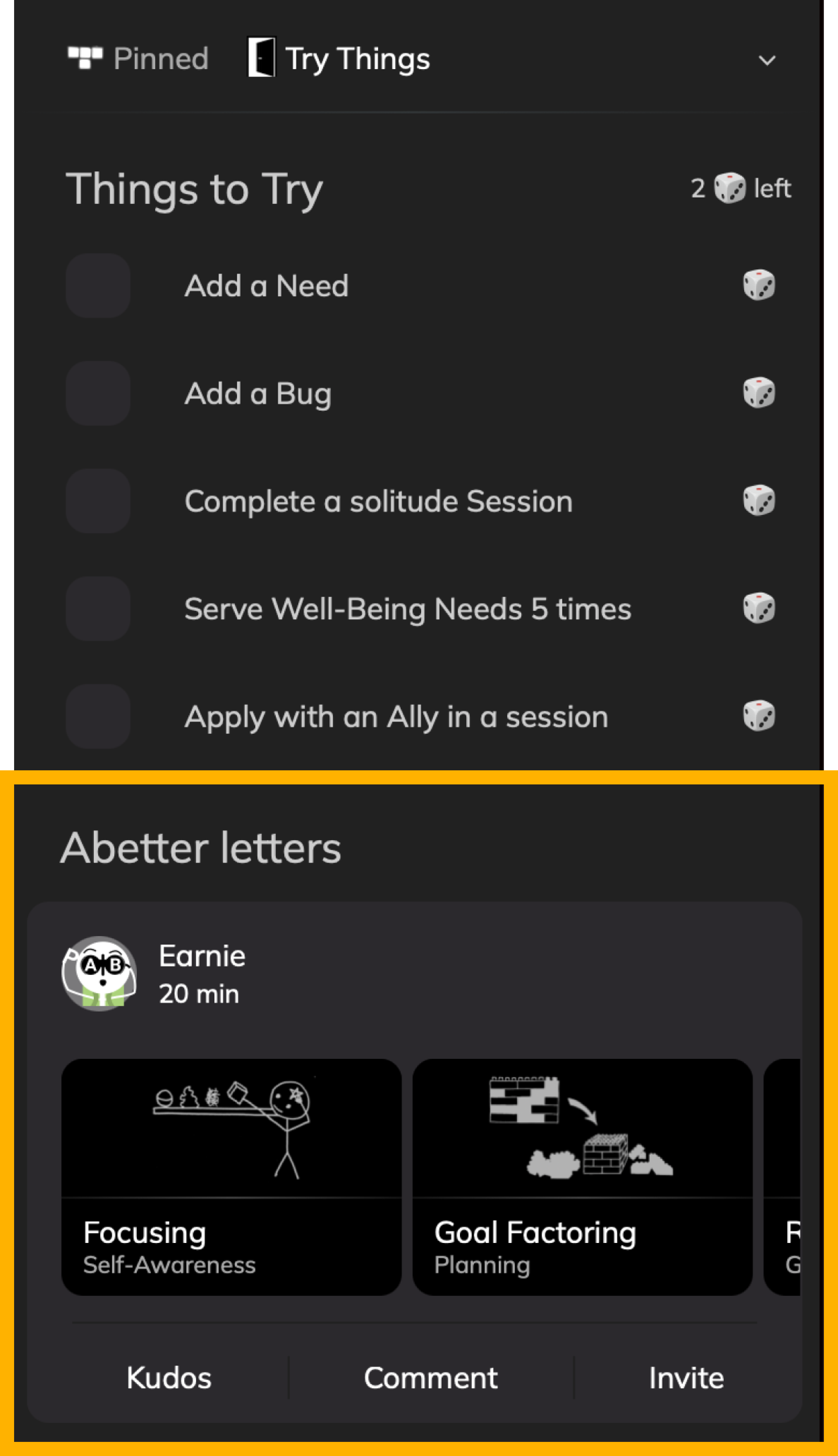
an
abetter
is an ally who encourages, assist or support (someone) in the achievement of a purpose.
Like getting a postcard from an ally's adventures in the borderlands between reason and nonsense.
You're not notified, abetter letters just optionally stick to your knackpack to inspire you to keep on keeping on working on your aspirations too.
Spotify does something similar, but importantly, here you only see postcards from people you've decided to follow. Update who you follow over time to let yourself be inspired by good role models.
If you think you've customized flows of social media platforms to not make you a lotus eater, then you can also share your efforts on social media to inspire others and have more accountability.
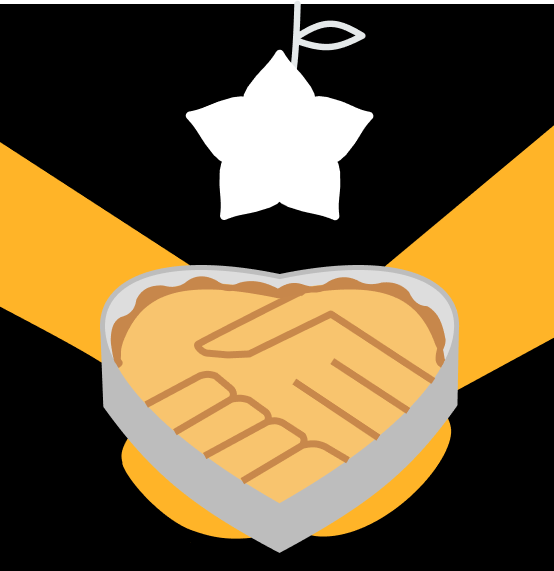
a community of people aspiring to align their motivation and environment to more effectively improve their capability to improve themselves and the world.
People actively matchmake to practice and apply their rationality skills, often reinforcing each other as they go out of their comfort zones to adapt effectively.

Open house
to share one's process
Openly sharing nearer-lossless process information to others who are aspiring to become experts
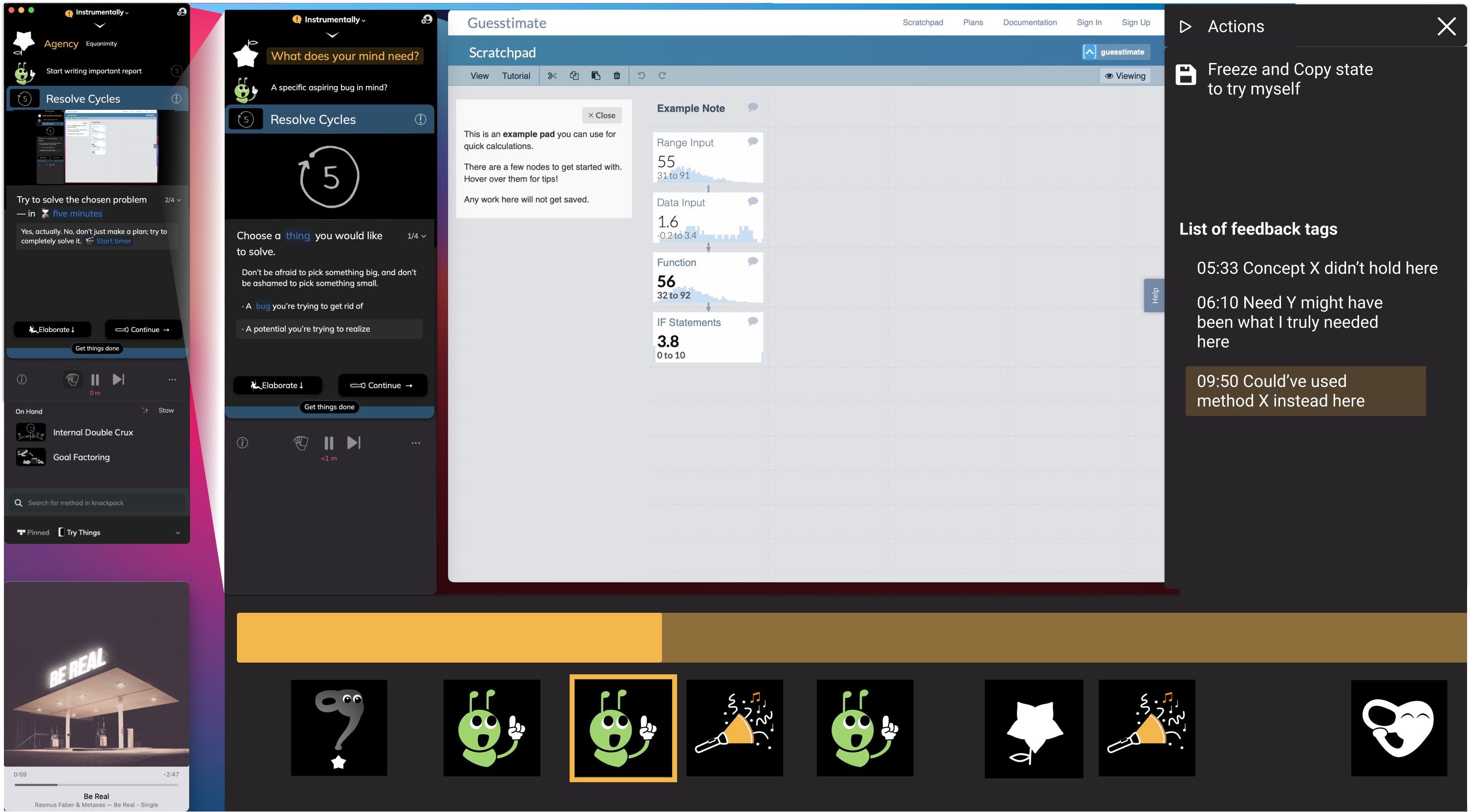
a peer or expert shows their proof of process in the less compressed format of interactive replays (at least the power of the Dota 2 replay system). They show how they grow as they're growing real projects, taking care of real
aspring bugs
.
Build yourself in public
. Record with any program you're secure with, upload to a service you like and add a link to Instrumentally.
More thoughts in this thread.

Andy Matuschak made me aware of the already existing concept of game tapes, recordings of e.g. sports performance taken to analyze and improve process.
Bret Victor argues for
seeing spaces
where creators can see the systems they're exploring and modeling; see inside of them, see them across time and across possibilities.
With Instrumentally the vision is to create practical representations of the systems of our mental processes, to help us improve our capability to improve the world.
Image source from ergonotes.com (no rights claimed), based on logo of the excellent app
ScreenFlow
version 4.
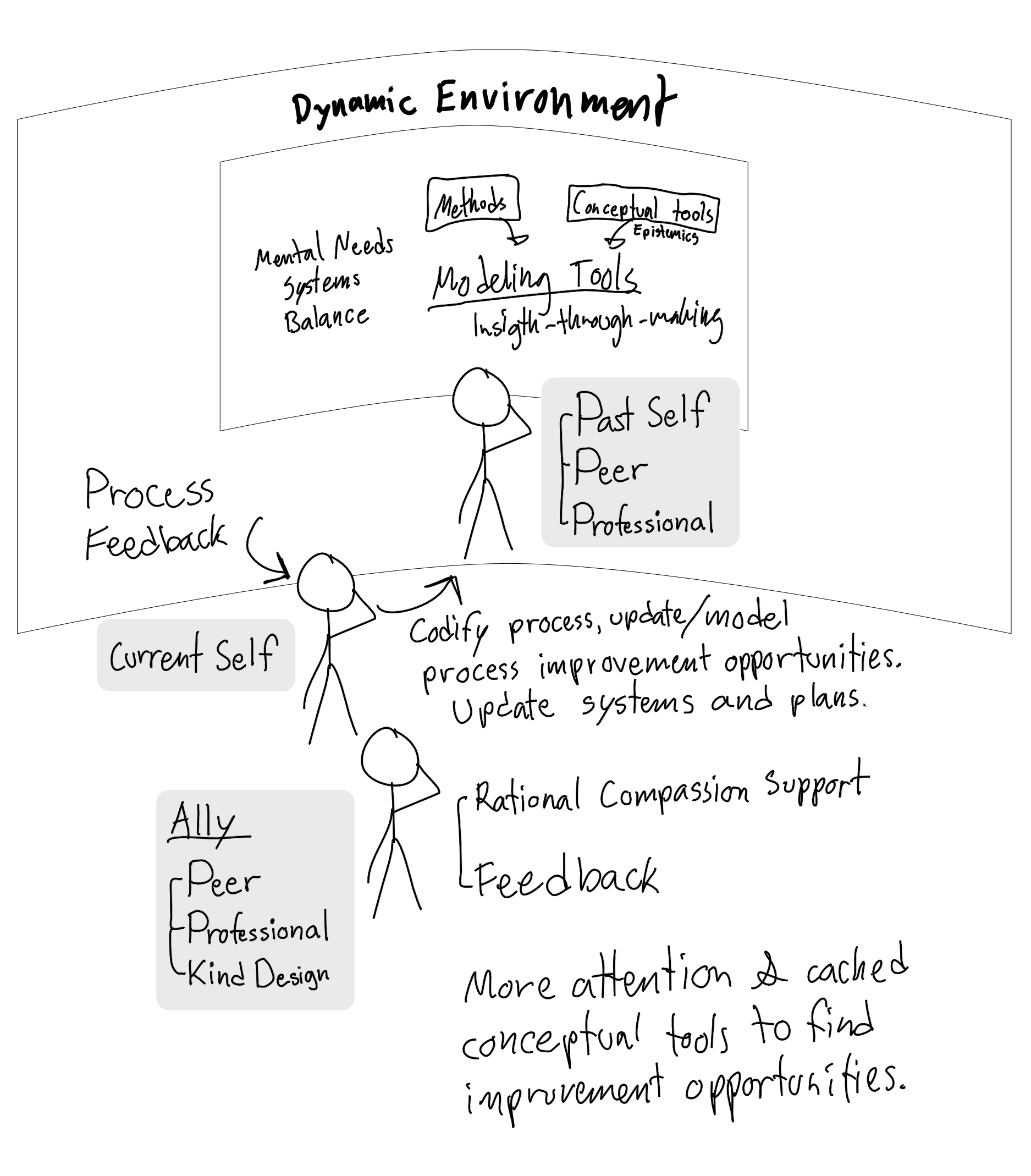
An essential part of effective learning through deliberate practice is to get effective feedback by reviewing your process through the lens of expert mental representations.
Among uncertainty, it can help you get a clearer idea of what direction to take next. Effective learning is effortful, so truthful but compassionate encouragement from an ally is also important for us to keep on keeping on.
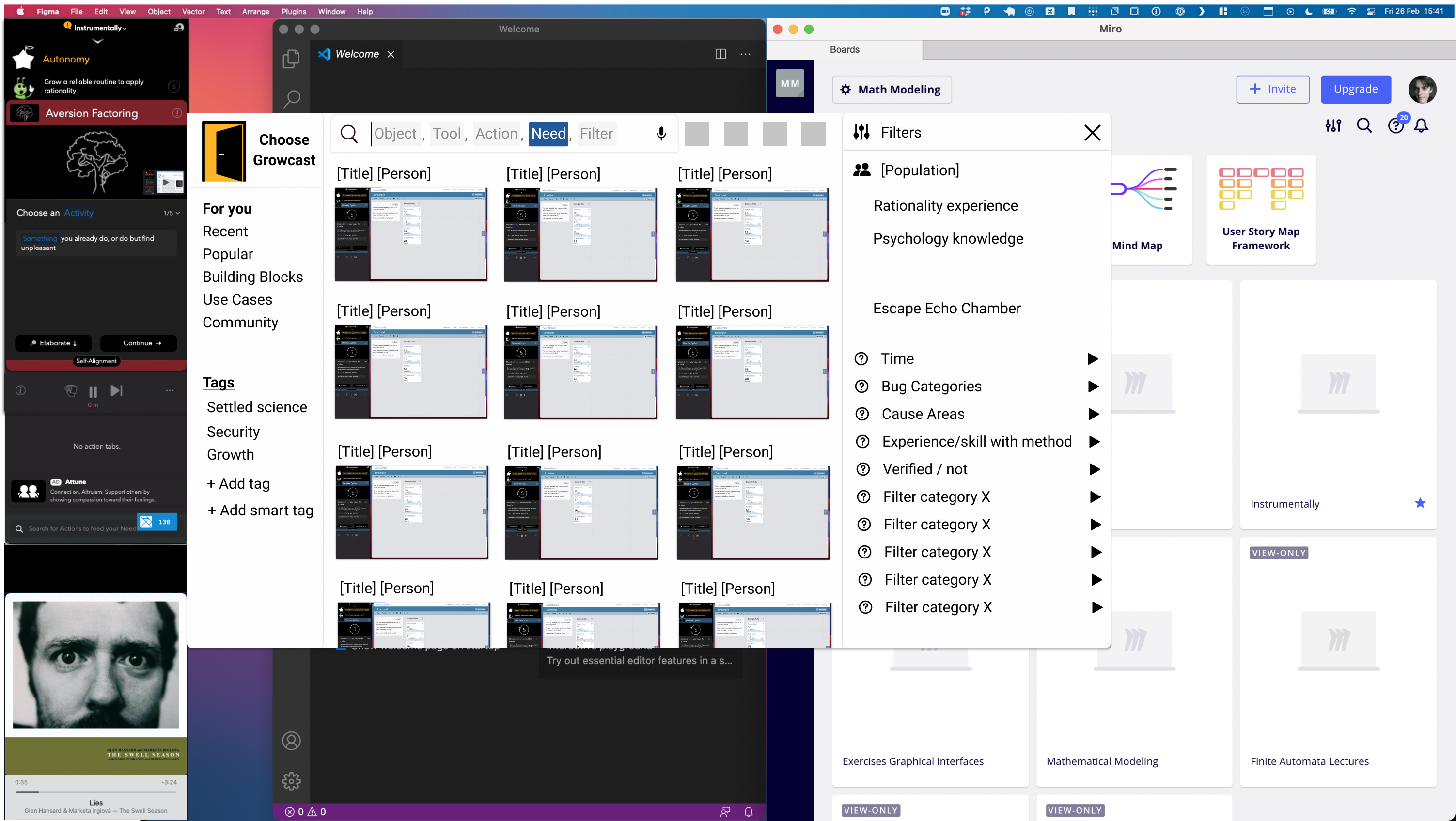
in-context while practicing or performing, quickly search/browse examples by peers and experts of real-world use of the method. Filter and choose an example closer to your own context.
Instead of getting distracted by the incentives of platforms like Youtube, browse only curated relevant alternatives.

The performer and the community codifies a performer's use of principles & methods. Before you watch community codified remarks, test yourself to identify the principles. Contribute your own remarks. Do freezeframe improv, copying their state and try to improve the process from there (like in Starcraft 2). Copy their Instrumentally setups (
action palette
,
method pins
, etc) and adjust to fit you better.
You yourself need to practice to compose, but it's good to see a
diverse set of examples
too.
Similar to the
DAW Logic
, you can annotate a growcast while it is recording/in progress in instant replays. Sometimes you realize mistakes during a session, and want to write them down in context when you remembered it so that you then can continue focus on practicing rather than wasting room in your short-term memory to keep track of things.

query stats and use insight to improve. See your progress to stay motivated AND grounded in reality. Find improvement opportunity patterns by studying your
growcasts
.
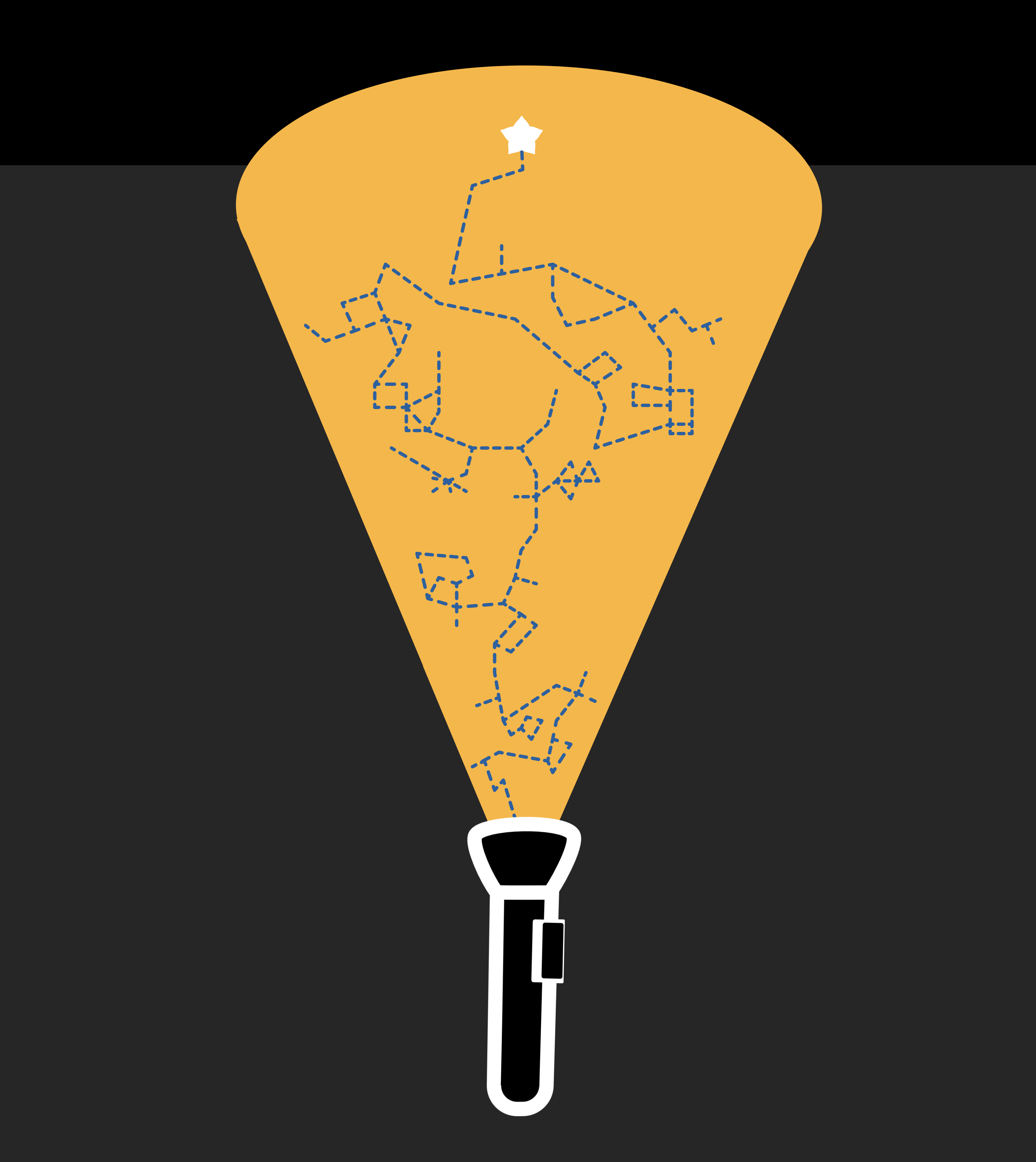
Similar to how time tracking apps like the app Timesink can automatically track what apps and files in them you've been using.
This data would very likely never be analyzed, if so optionally and very clearly disclosed in privacy policy withthe only goal to help improve the system.
This is done in esports games like Dota 2 and Starcraft 2 to help players improve their performance.
Modular Instruments, tailored to embody rationality correlated methods & concepts

Interactive
components tailored to embody useful rationality concepts and methods like
CFAR's
goal factoring, internal double crux, resolve cycles, and so on. You add these like blocks in Notion and can use them with your data right away ("always running", compared to the "code then run"-loop in programming notebooks like Jupyter, Mathematica or Observable). To fit your specific needs, you could adjust the components parameters and save new presets.
Combine these tools with other powerful tools on your computer whenever they do a specific task better. As aspiring
good citizen software
Instrumentally doesn't want to lock you into Instrumentally itself, but to help you be as effective as possible with your full toolkit.
E.g. like
Obsidian
, these components could be modular and open for the community to add to.
Take inspirations from aspects of professional apps like e.g.
Ableton
. There are also increasingly more examples from the Future of Coding community:
Crosscut
,
Sketch&Sketch
,
Apparatus
,
Background Survey by Chaim Gingold
,
Explorable Explanation tools
.
Read more about
modular instrument parts
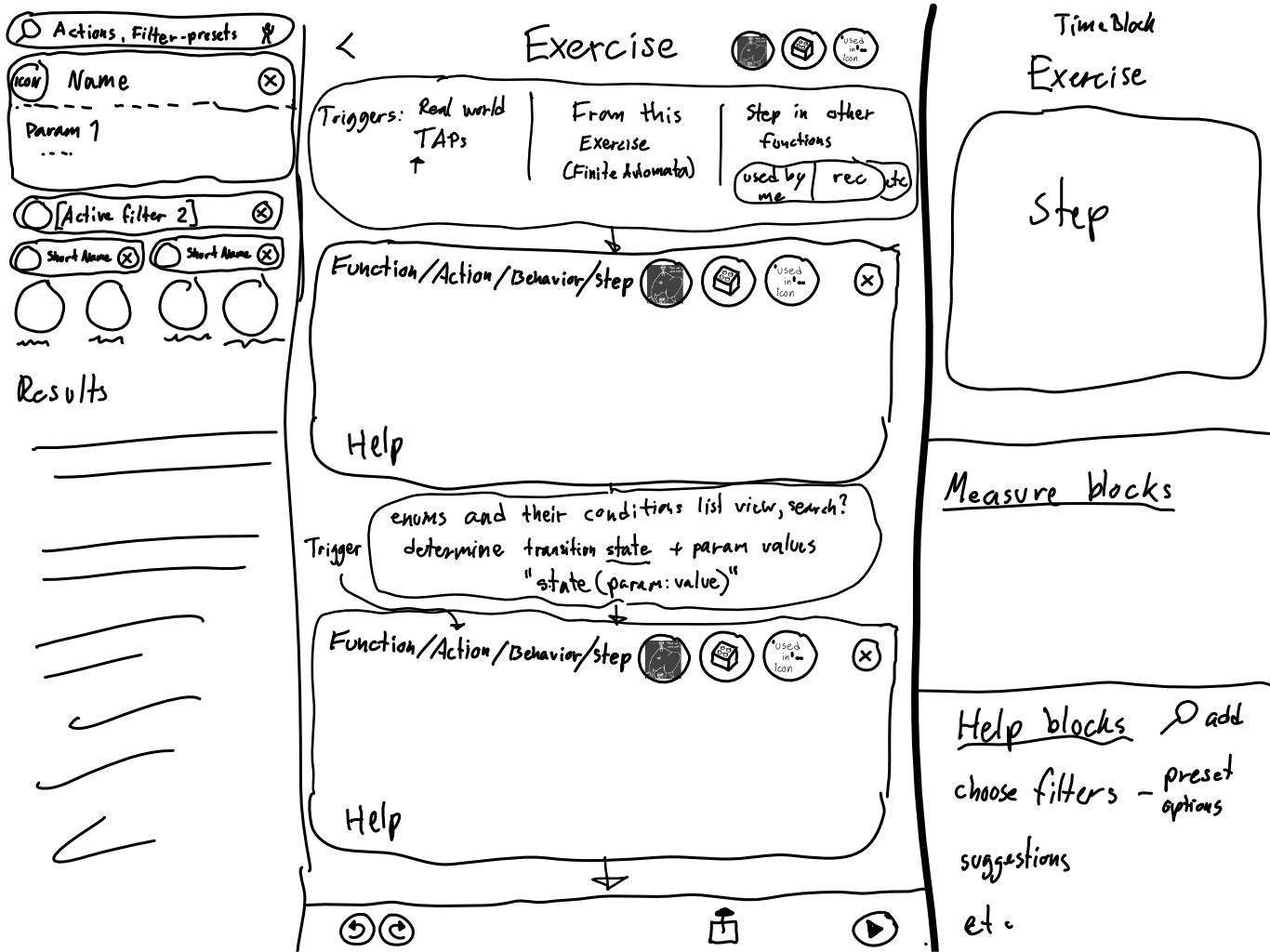
(Early access placeholder image).
Instead of reading books and hoping you'll use what you read in your life, use this tool to model, plan and practice behaviors to increase probability you'll use them in your life.
Use robust theory like
10 conditions for change
like programming packages to use in models you make to fit your life.
Some behaviors you can't do with a computer with you of course, but a tool can help you organize and structure and motivate your practice of the behavior until it becomes habitual.
Other behaviors can be done together with tools, then it is good to be able to modify tools/systems to fit the behavior you want to do to perform effectively.
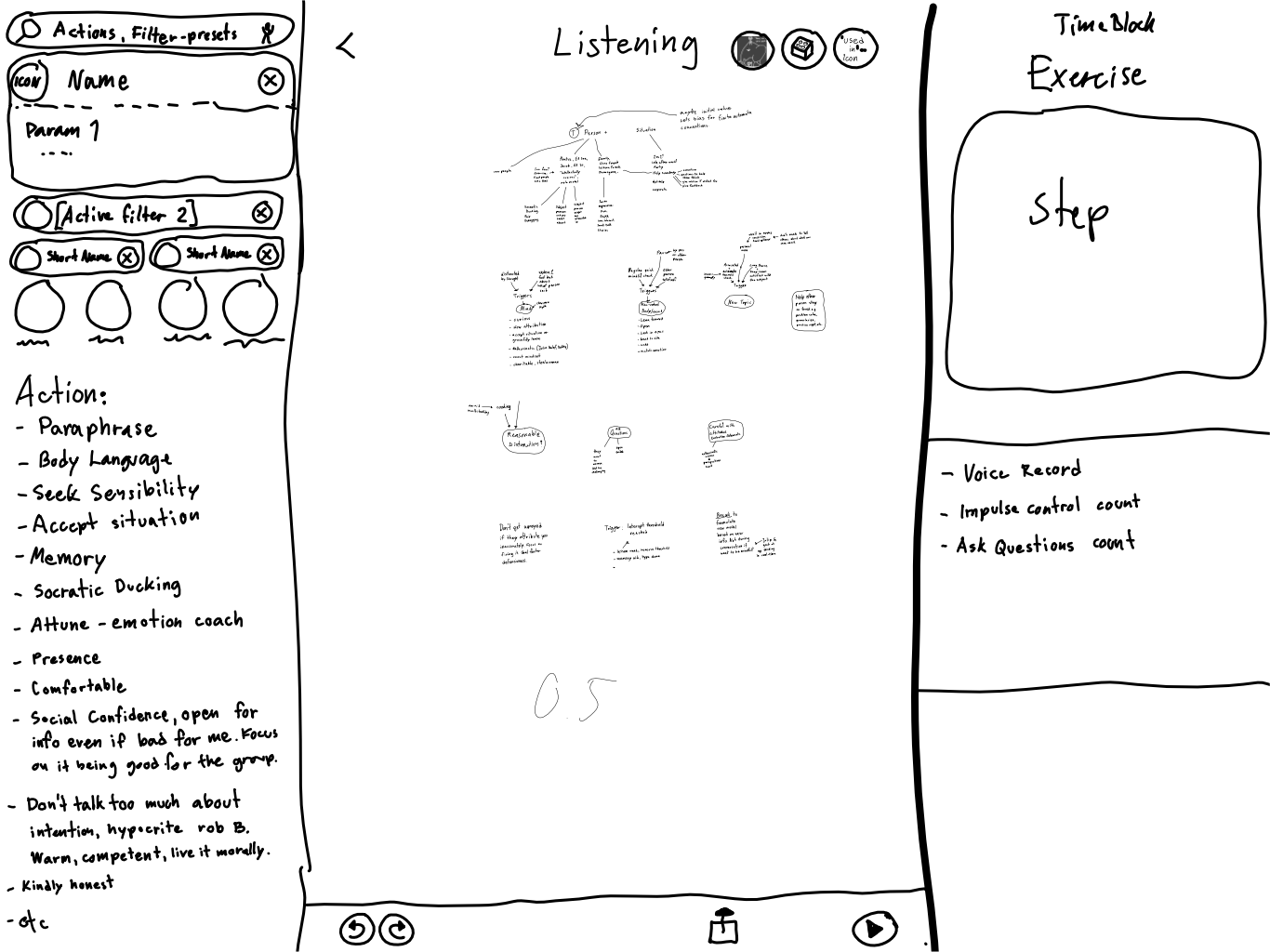
(Early access placeholder image).
A more powerful system on top of the
mental needs system
in Instrumentally.
An interactive modular tool for modeling your motivation. Software tools which design is based in cognitive science to help you update your intuition to feel like doing what you think would be better to be motivated to do.
This could make people more effectively understand why they're not motivated to do things that when they think about it should be valuable to do.
Help people sustain reliable motivation to do hard but valuable activities.

(Early access placeholder image).
It doesn't have to be socially awkward to update a groups beliefs to incentivize better behavior that could improve the design for more people in the community.
E.g. rewarding a scout mindset, updating, putting in effort into improving your process and so on.
A user interface that help people think about this more effectively, without trying to steer them toward any values, could help people improve the social design and help more people get their needs met.

(Early access placeholder image).
Instead of getting principles from books or courses, turn this into a modeling tool and practicing/performance tool.
Put powerful tools into the user's hand. Quickly bring up this tool and use it to work through what's bugging you.
Your feedback is welcome, so we can improve:
Design of the Field Guide
Intended Value
To show Instrumentally's capabilities for users to understand how to use the software, and also for marketing; making people understand whether Instrumentally fits their needs.
Building in public: Show hints of possibilities and how they connect to the current capabilities. Share process and show parts of the longer-term vision.
Like Bret Victor sometimes points out, in a research prototype the specific user interface isn't the main point even if it can feel like it since it is made so concrete. The main point is the underlying principles the interface is exploring/communicating. To show which the underlying constraints and problems we're trying to solve for might be, even if the specific solutions will be replaced over time. While finishing prototypes you've already come up with a lot of ideas to improve further (insight-through-making), but time-constraints force you to stop and show the current iteration at some point. It isn't intended as summative research, comparing to other products, but as formative research trying to find better principles for long-term bigger improvements. The design itself should communicate the principles too, but comments in the text below each guidepost image provide an additional perspective to hopefully help readers understand the why behind the design.
Approach
Inspired by the
ADEPT method
(Analogy, Diagram, Example, Plain English, Technical explanation), recommended by Nicky Case.
The metaphor of informational guideposts in nature on hiking tracks fit well with Instrumentally's other analogies. They show Diagrams and Examples (the field), followed by plain english (the guide).
Also heavily inspired by the
The Muse Handbook
You can explore linearly if you want, but you can also jump around links by interest.
Try Prototype
- june 2022
New version available soon
New version available soon
→

New sneak peak
Explore Instrumentally
Try the Prototype
Visit the Discord Community
FAQ
About the name Instrumentally
What Instrumentally is not
Trailer
(Top of page)
Go deeper
Possibilities
Principles
Research Article
Digital Garden
R&D process design
About us
Music

Inspired by
Julia Galef
CFAR
Cognitive Science
Bret Victor
LessWrong
Spencer Greenberg
Muse team
Andy Matuschak
Pontus Granström
Scott Barry Kaufman
and more
Get in touch



